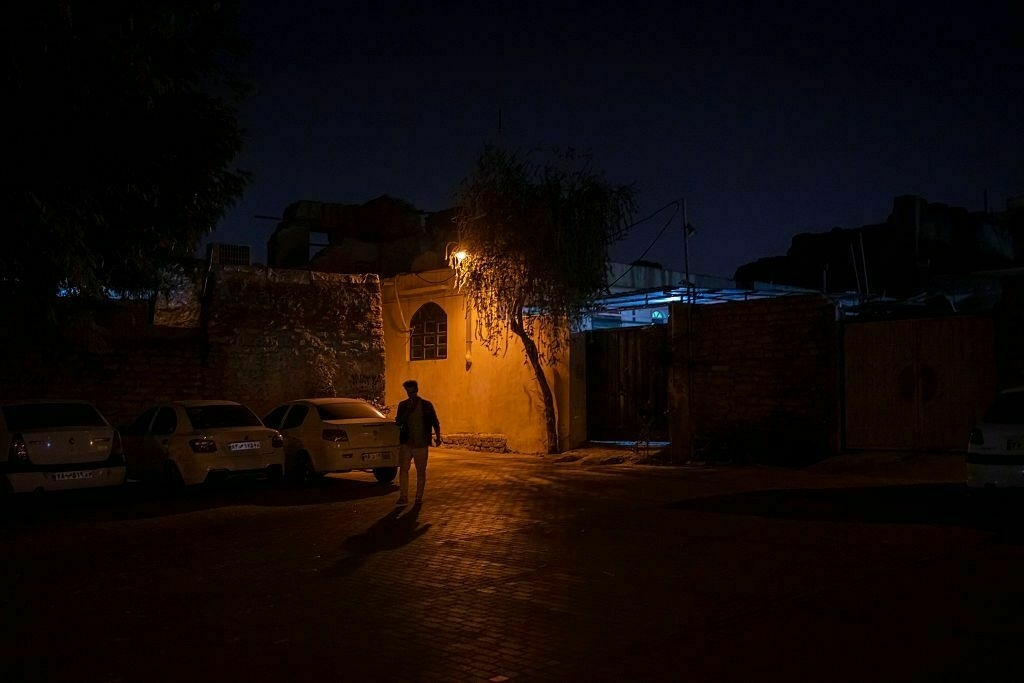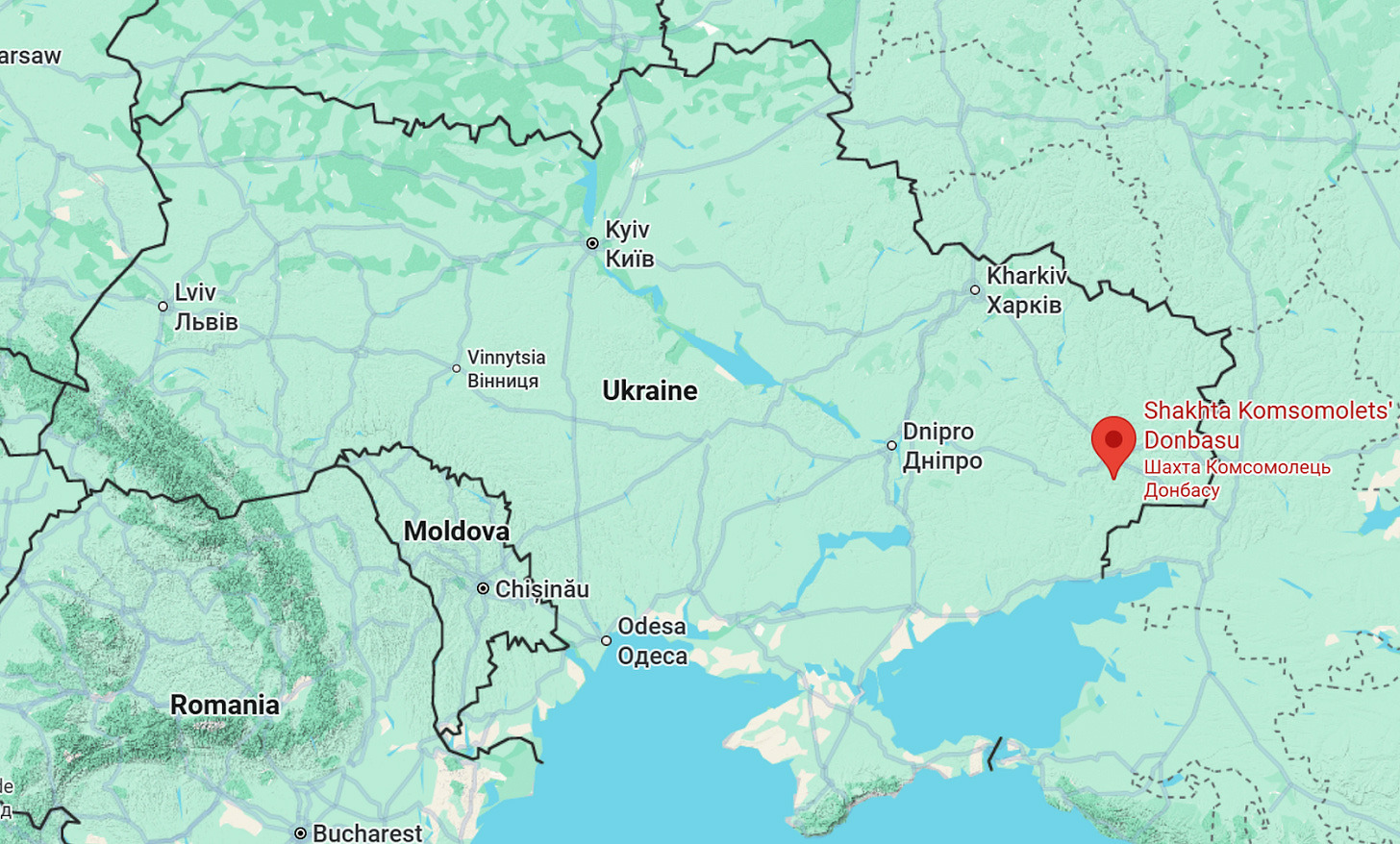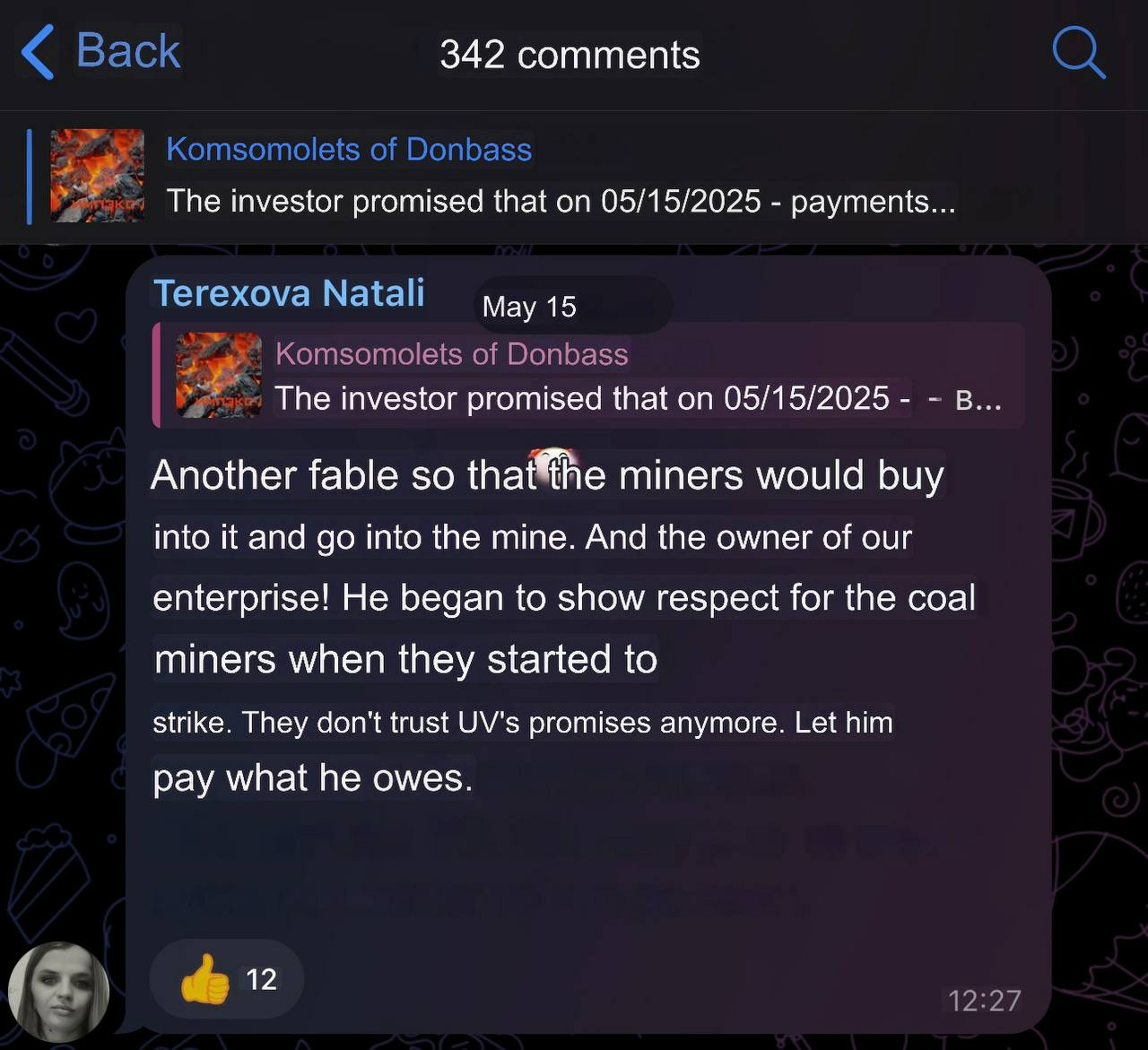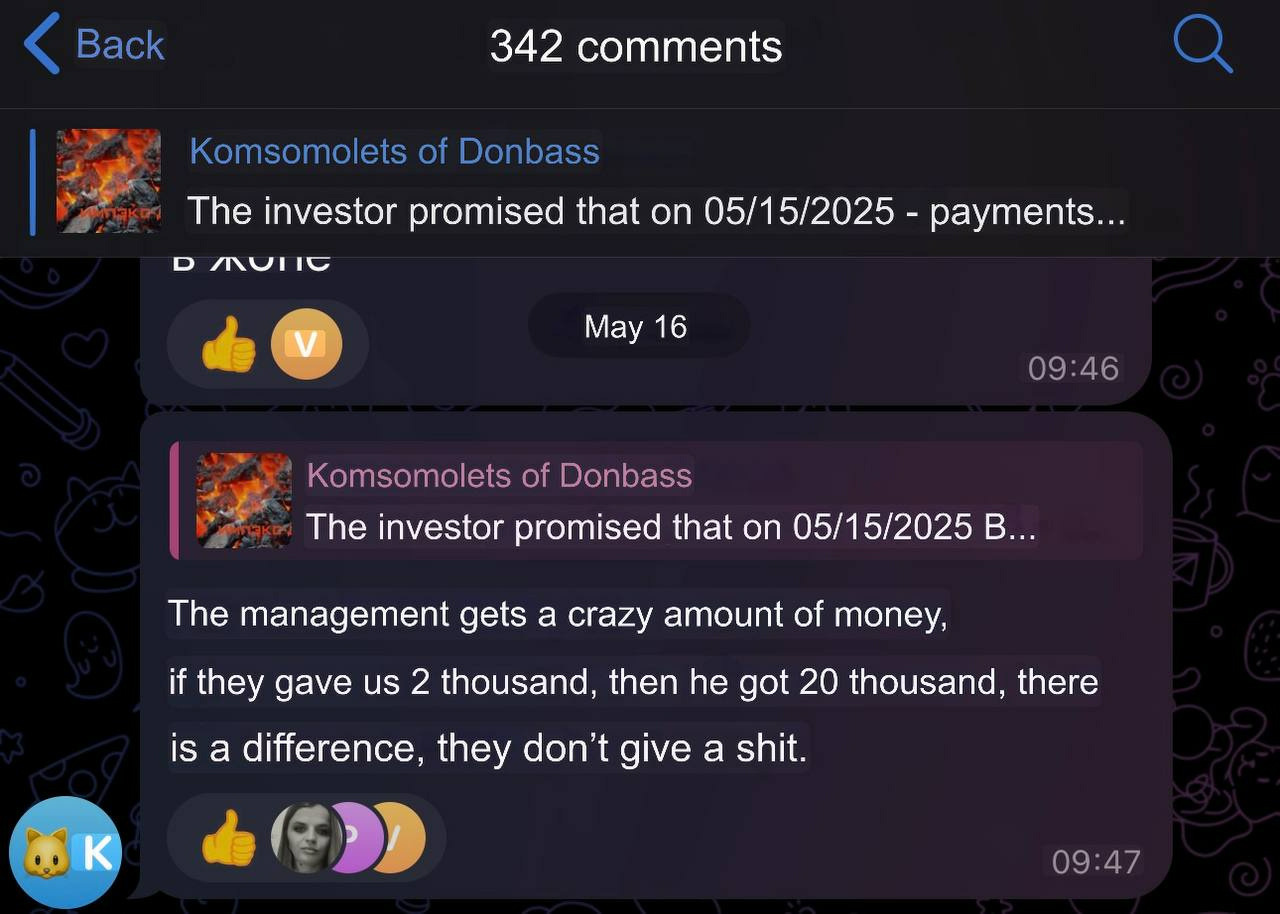-
Zelensky welcomes G7 support as summit delivers no strong breakthrough for Ukraine
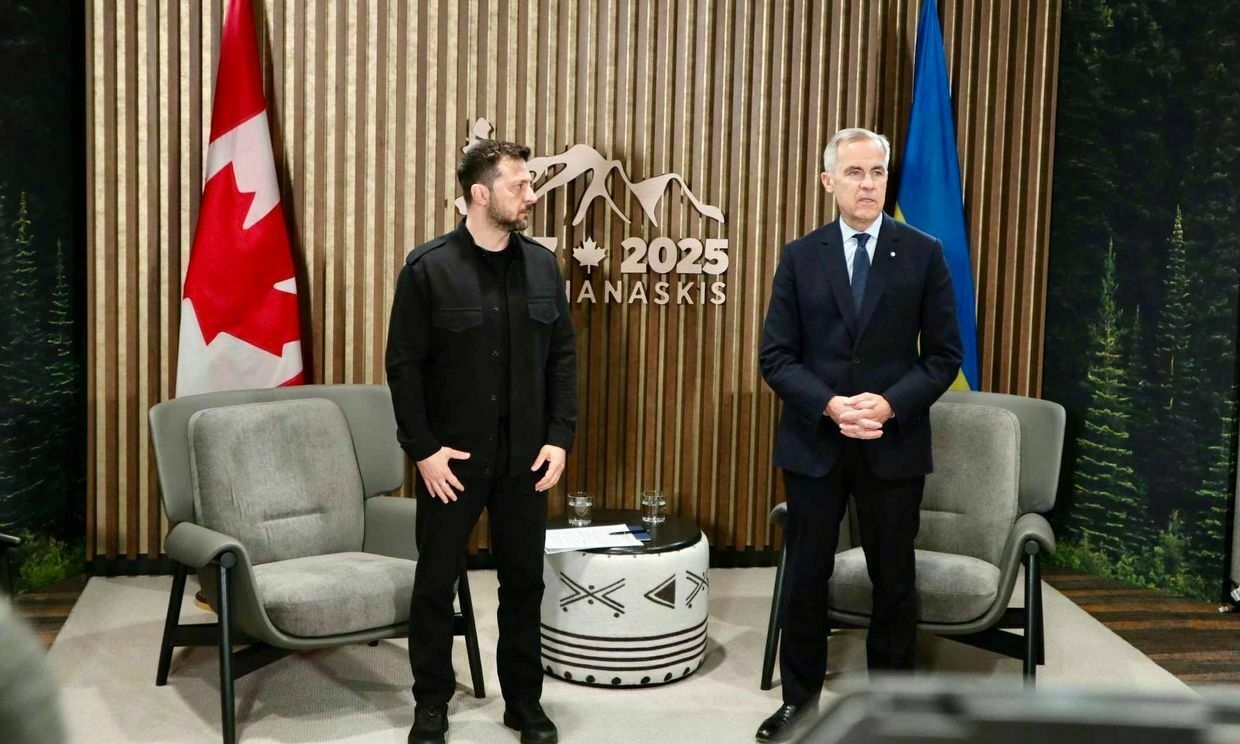
President Volodymyr Zelensky said on June 17 that the G7 summit had produced concrete results for Ukraine, including increased military support, new tranches of aid using frozen Russian assets, and additional sanctions targeting the sources of Russia’s war effort.
“It is important that our partners are ready not only to support our defense now, but also to rebuild Ukraine together after the war ends. I thank everyone who helps us fight Russian aggression and who, together with Ukraine, is building a strong security architecture for the future,” he added in a Telegram post.
Canadian Prime Minister Mark Carney announced a new support package for Ukraine earlier in the day, including two billion Canadian dollars ($1.5 billion USD) in military aid and over two billion Canadian dollars ($1.6 billion USD) loan for reconstruction. The package also includes funding for drones, ammunition, armoured vehicles, and new sanctions targeting Russia’s energy revenues and sanctions evasion.
U.K. Prime Minister Keir Starmer also announced a set of measures aimed at increasing pressure on Russian President Vladimir Putin, who continues to reject calls for an unconditional ceasefire in Ukraine. “The 30 targets strike across Russia’s financial, military and energy sectors in response to Putin’s continued aggression,” reads the U.K. government statement. The new sanctions also “crack down further on Putin’s shadow fleet,” targeting 20 of his oil tankers.
Starmer added that he “strongly” supports tightening the price cap on Russian crude oil to further cut into the Kremlin’s energy revenues.
The G7 nations, however, struggled to present a unified stance on the war in Ukraine after U.S. President Donald Trump voiced support for Russian President Vladimir Putin and called for Russia to be readmitted to the group. Russia was expelled from what was then the G8 after its 2014 invasion of Crimea.
Trump left the summit a day early to address the Israel-Iran conflict from Washington, departing without meeting Zelensky, who had hoped for a one-on-one conversation to press for stronger sanctions against Russia.
Zelensky had already cut his own visit to Canada short on June 17 and was preparing to return to Kyiv while G7 talks were still underway. He had been scheduled to travel to Calgary for events and a press conference with the Ukrainian diaspora, a source told a Kyiv Independent journalist on the ground, but those plans were canceled following a deadly Russian missile strike on Kyiv and changes to the summit agenda.
Zelensky later said he told G7 leaders that “diplomacy is now in a state of crisis” and urged allies to continue pressing Trump “to use his real influence” to help end the war.
With no new US aid packages on the horizon, can Ukraine continue to fight Russia?The U.S. has not announced any military aid packages for Ukraine in almost five months, pushing Kyiv to seek new alternatives. But time is running out quickly as Russian troops slowly advance on the eastern front line and gear up for a new summer offensive. “While Ukraine’s dependence onThe Kyiv IndependentKateryna Hodunova
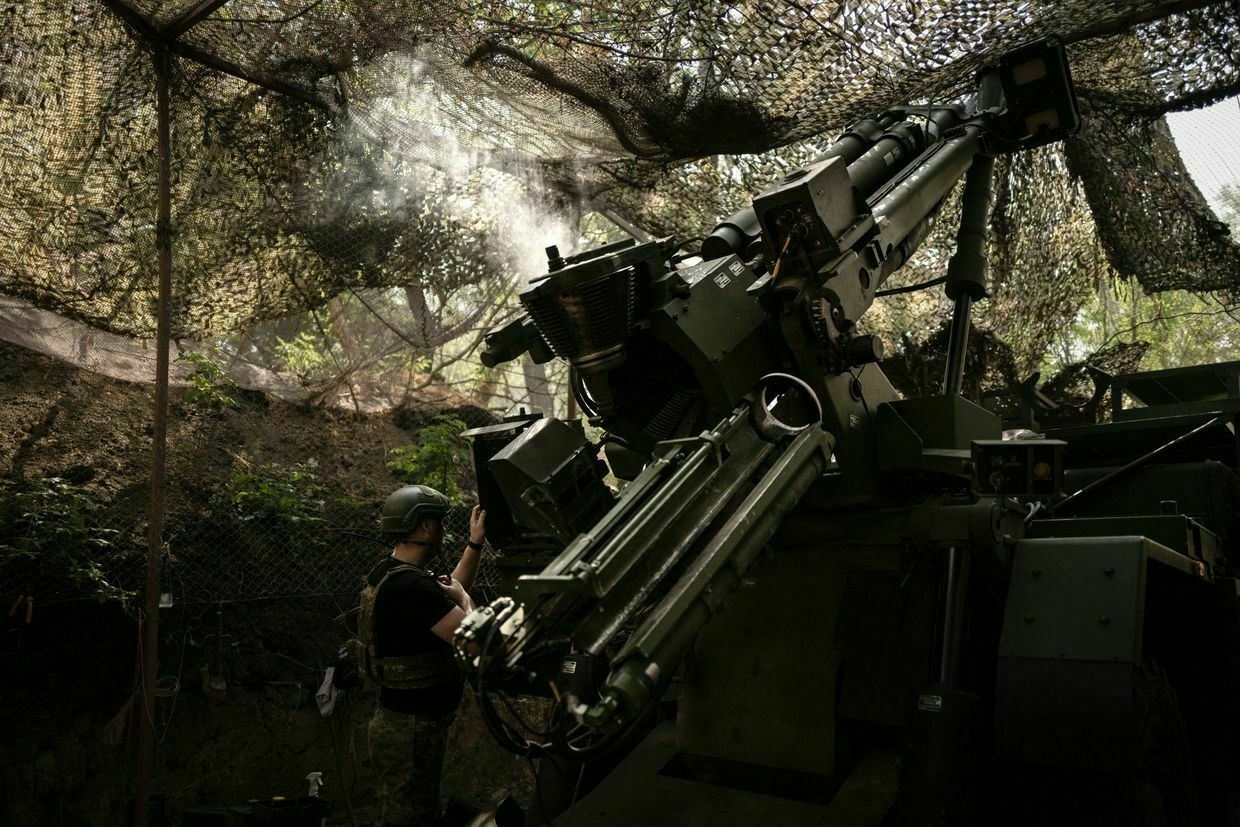
-
'We are determined to increase pressure on Russia' — Macron says as EU ready to toughen Russia sanctions
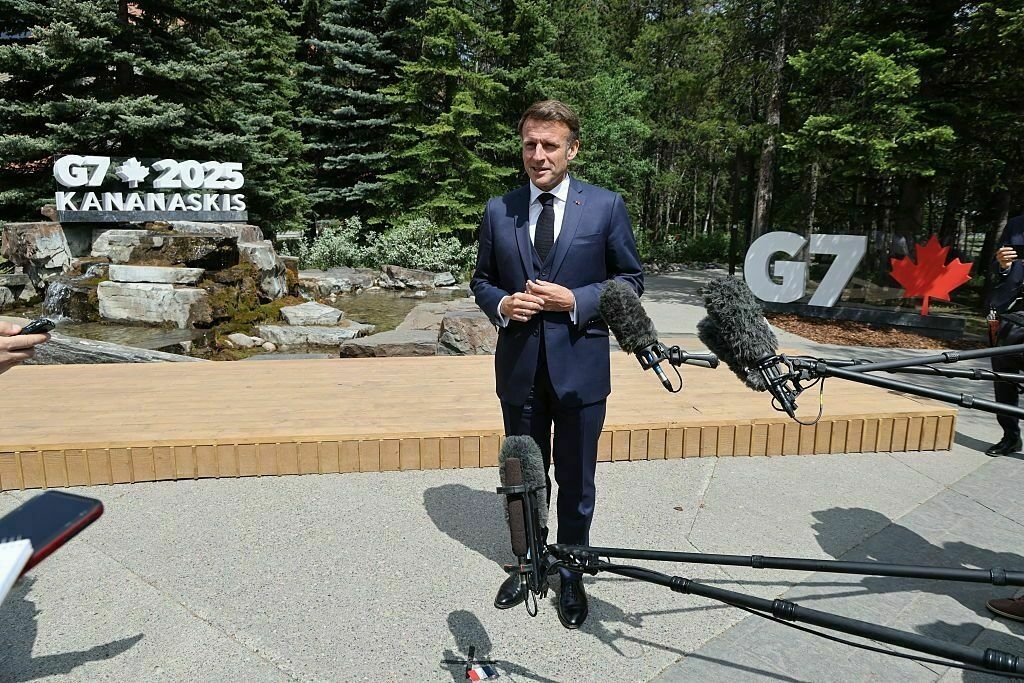
The European Union and its allies are ready to toughen sanctions on Russia, French President Emmanuel Macron said on the sidelines of the Group of Seven (G7) summit on June 17.
“With President (Volodymyr) Zelensky at the G7. We stand in solidarity with the Ukrainian people after last night’s massive Russian strikes,” Macron said in a post to social media.
“We are determined to increase pressure on Russia to accept the immediate and unconditional ceasefire that Ukraine is ready for,” he added.
Macron attended the G7 summit in Kananaskis, Canada, from June 15-17. Global leaders discussed a wide range of topics, including Russia’s war against Ukraine.
As the G7 leaders met in Canada, Russia launched one of its worst drone and missile attacks on Kyiv since it began its full-scale war against Ukraine in February 2022, killing 16 people and injuring at least 134.
“The common position that is emerging is to say, ‘We need to strengthen sanctions,'” CBC News reported, citing Macron.
Europe is proposing much tougher sanctions than the U.S. has imposed on Russia, Macron said, adding that the EU is in “very close co-ordination” with Canada, Japan, and the U.K.
Several countries, including Canada and the U.K., introduced additional sanctions on Russia as the G7 summit was ongoing.
Canada introduced a new military aid package for Ukraine in addition to its sanctions against Russia.
“In our view, this has changed the situation because it will allow us to bring Russia back to the negotiating table, as (U.S.) President (Donald) Trump has been demanding,” Macron said, according to CBC News.
Zelensky attended the summit and met with various leaders, including Macron and Canadian Prime Minister Mark Carney.
Zelensky left the summit early, citing Russia’s attack on Kyiv. The nearly nine-hour-long attack saw Moscow’s forces launch large numbers of drones and missiles at Ukraine’s capital.
Foreign Minister Andrii Sybiha condemned the attack, calling it a “massive and brutal strike” timed deliberately to coincide with the G7 summit.
Zelensky described the drone and missile assault as “one of the most horrifying attacks on Kyiv."
‘He said he wasn’t going anywhere’ — Survivors search for missing following Russia’s deadliest attack on Kyiv this yearSitting a few meters from the rubble of what used to be a nondescript nine-story residential building in Kyiv, Lilia rises to her feet every time another pile of debris is cleared from the site targeted by Russia during a mass overnight attack on June 17. “We are waiting (asThe Kyiv IndependentKateryna Denisova
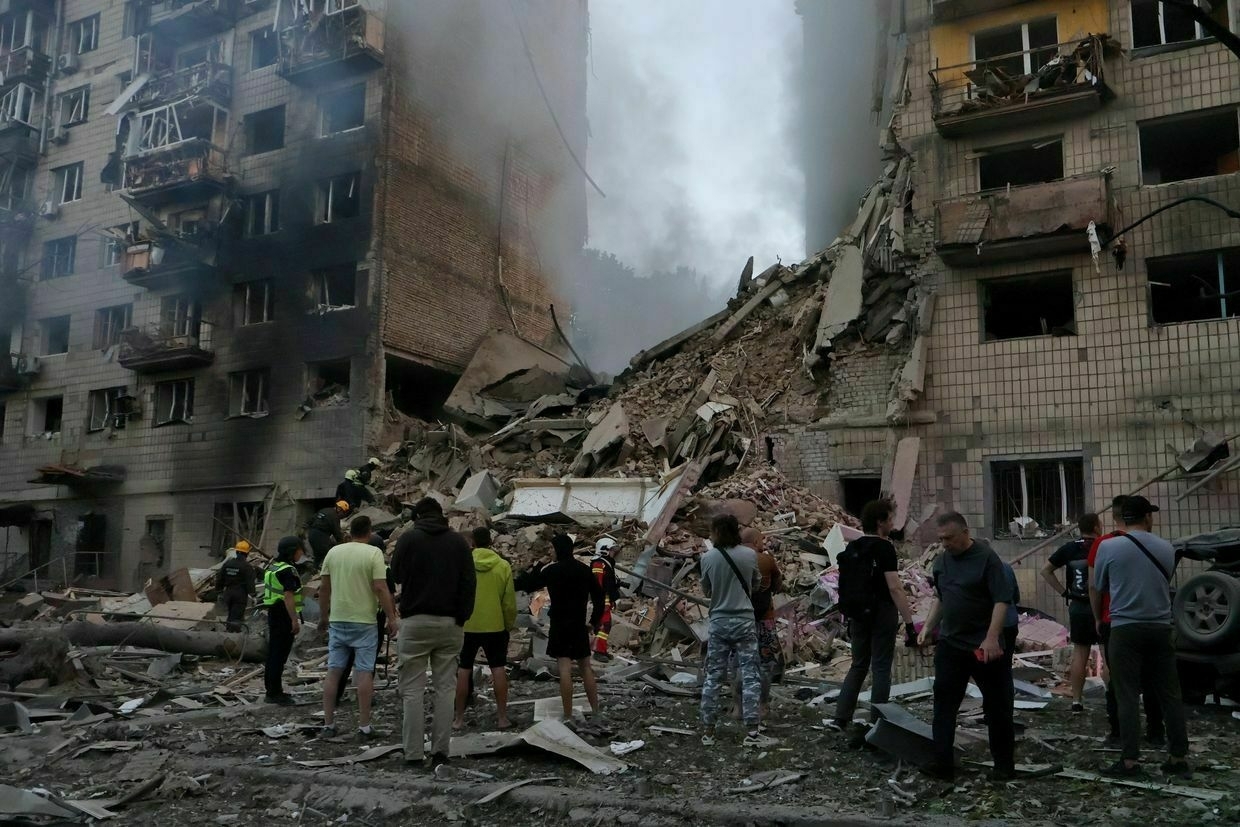
-
Zelensky leaves G7 early without meeting Trump as Canada drops Ukraine statement amid US pushback
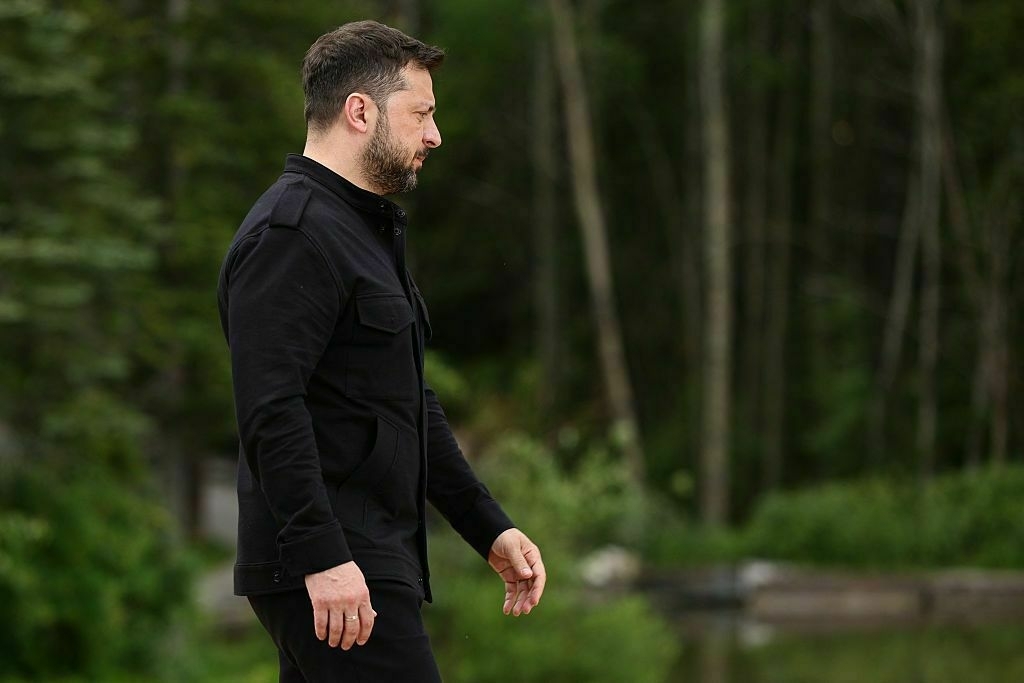
President Volodymyr Zelenskyy is cutting his visit to Canada short and will return to Kyiv following the conclusion of G7 talks on June 17, a source told a Kyiv Independent journalist on the ground.
He had been scheduled to travel to Calgary for additional events and a press conference, but those plans have been cancelled.
The change comes in the wake of a deadly Russian missile strike on Kyiv overnight, as well as changes to the G7 agenda.
Canada dropped plans for the Group of Seven to issue a joint statement on the war in Ukraine after the United States pushed to weaken the language, according to a Canadian official speaking on the sidelines of the summit. The official said Canada felt a watered-down version would not be fair to Ukraine.
Instead, the positions of the remaining six G7 members will be reflected in a separate statement expected from Prime Minister Mark Carney later in the day.
Zelensky had travelled to the summit hoping to meet one-on-one with U.S. President Donald Trump and to push for stronger sanctions against Russia. However, Trump left the summit early, citing the crisis in the Middle East, and no bilateral meeting or unified G7 statement took place.
-
G7 allies push for stronger Russia sanctions as Trump resists, Bloomberg reports
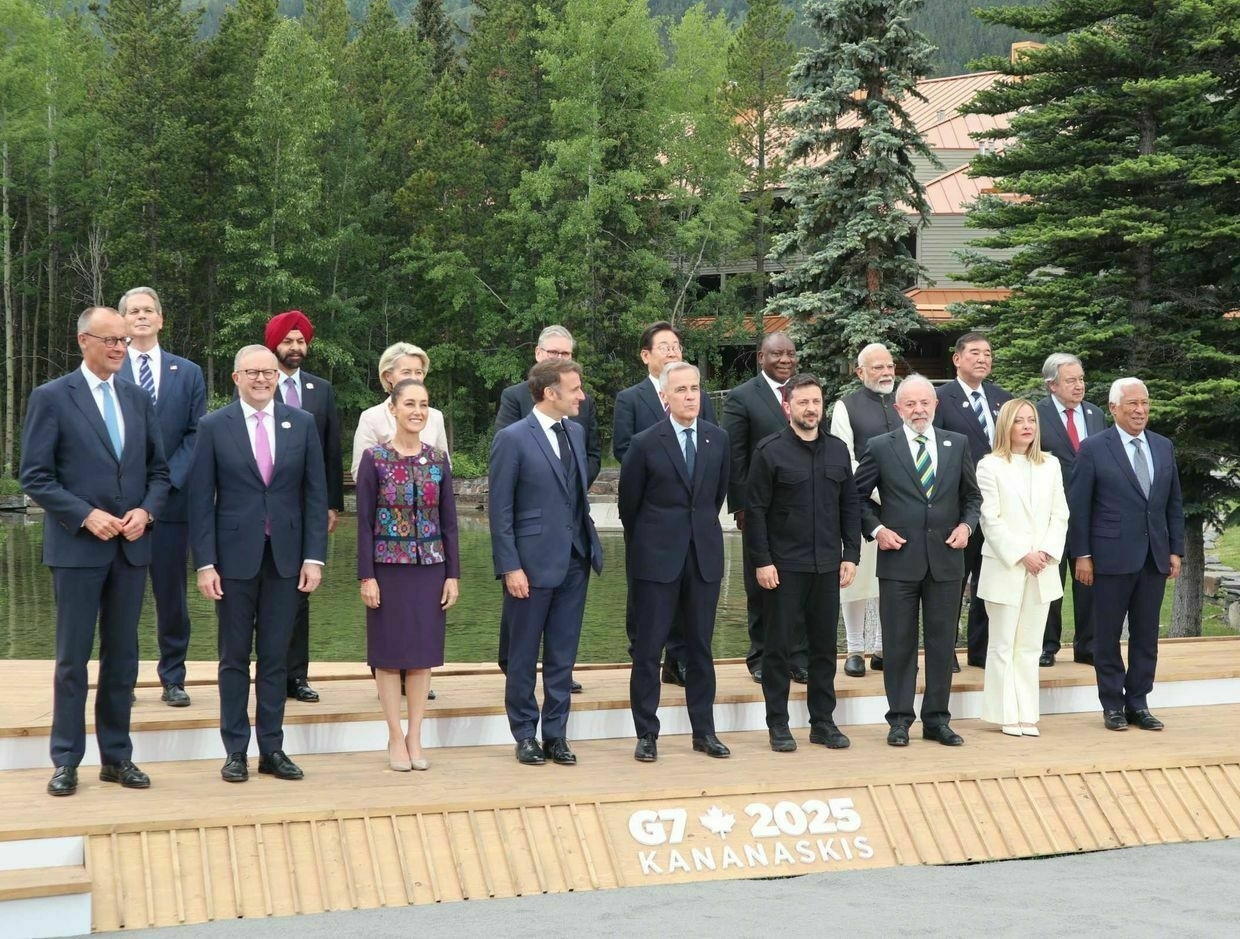
A dinner discussion among Group of Seven leaders on June 16 failed to shift U.S. President Donald Trump’s position on tougher sanctions against Russia, Bloomberg reported, citing sources familiar with the talks.
Trump has continued urging Russian President Vladimir Putin to agree to a ceasefire in Ukraine but has resisted additional sanctions, despite previously threatening to introduce more. At the G7 dinner, he reportedly repeated concerns that sanctions were too costly for the United States.
A chair’s statement expected from Canadian Prime Minister Mark Carney will affirm G7 support for U.S.-led peace efforts, according to Bloomberg. The statement is also set to highlight that Ukraine has demonstrated readiness for a ceasefire, while Russia has not, and emphasize the need for continued pressure on Moscow through sanctions. Carney’s office did not comment on the expected statement.
The European Union introduced its 18th package of sanctions ahead of the summit, while the United Kingdom followed with new restrictions targeting Russia’s energy and financial sectors. Both the EU and the U.K. have pushed to lower the G7 price cap on Russian oil, a move the U.S. has so far opposed.
The debate over sanctions comes amid intensified Russian strikes on Ukraine. Overnight, at least 14 people were killed in Kyiv in what President Volodymyr Zelensky described as “one of the most horrific attacks” since the start of the full-scale war. Multiple areas of the capital were hit by drones, missiles, or falling debris, including a direct strike on a nine-story residential building, which caused part of the structure to collapse. Search and rescue operations were ongoing.
“Such attacks are pure terrorism,” Zelensky said in a post on X after arriving in Canada for the G7 meeting. “And the whole world, the United States, and Europe must finally respond as a civilized society responds to terrorists.”
Zelensky had been scheduled to meet with Trump on June 17, but the meeting was canceled after the U.S. president left the summit early, citing the crisis in the Middle East. European officials, according to Bloomberg, are increasingly uncertain about Trump’s reliability and are working to reinforce security cooperation with other allies as U.S. support for Ukraine appears to be wavering.
Tired of military aid delays, Ukraine has designed its own ballistic missile — and it’s already in mass-productionUkraine announced on June 13 that its short-range Sapsan ballistic missile would go into mass production, a major development in Kyiv’s ongoing efforts to domestically produce the weapons it needs to fight Russia’s full-scale invasion. As Ukraine faces growing challenges in securing weapons from Western partners, and Russia continues launchingThe Kyiv IndependentYuliia Taradiuk
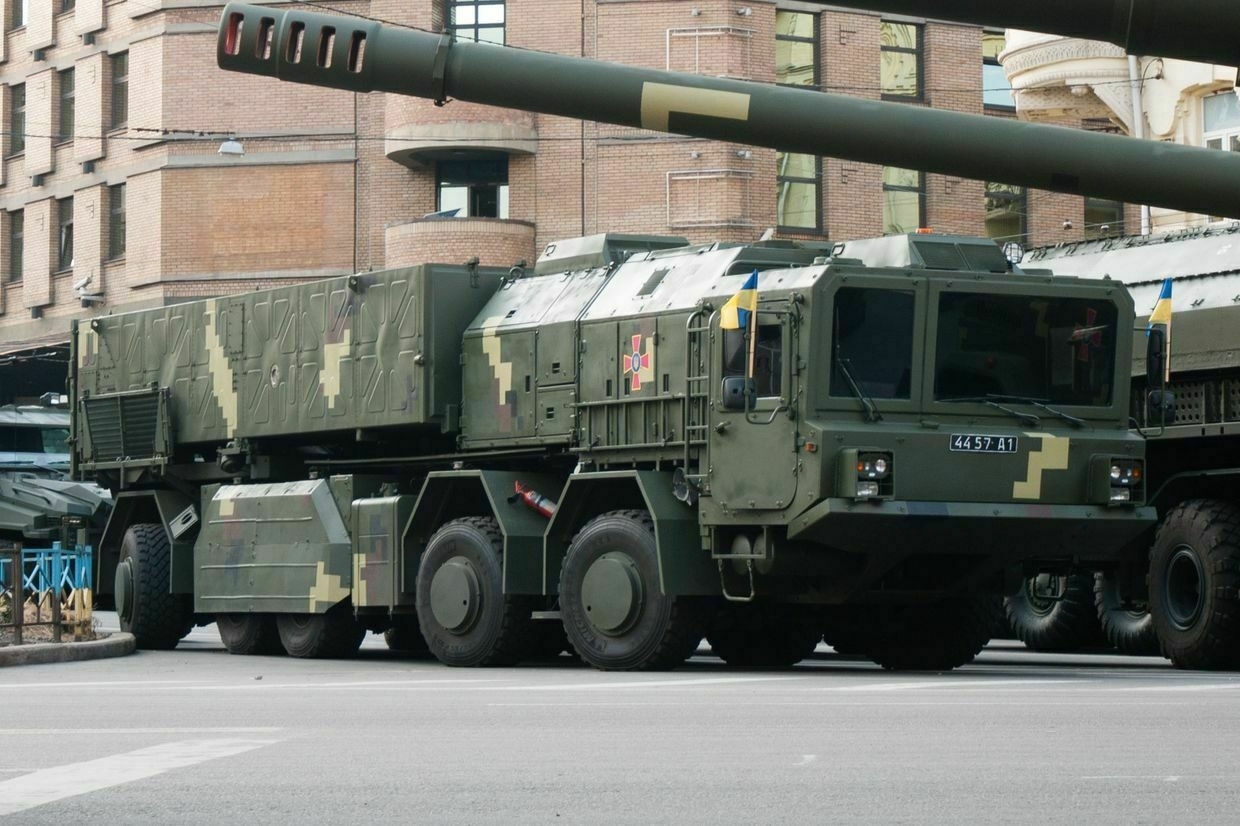
-
Ukraine war latest: Massive Russian attack kills 14, injures 117 in Kyiv
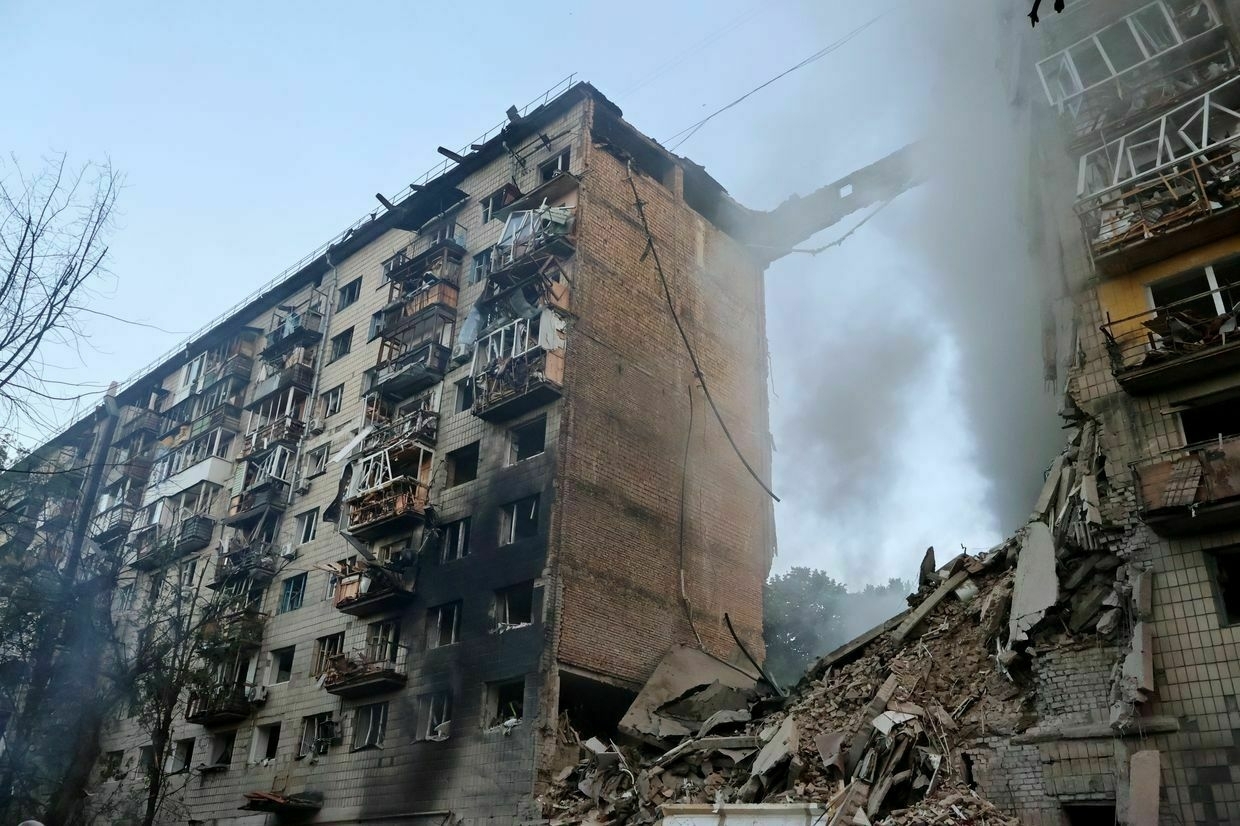
Key developments on June 17:
- ‘A brutal strike’ — Massive Russian missile and drone attack hits Kyiv, killing 14, injuring at least 117
- Zelensky arrives at G7 summit hours after Trump departs
- US group designed to pressure Russia into peace in Ukraine disbanded by Trump administration, Reuters reports
- US reportedly considers strikes on Iran as Trump demands' unconditional surrender'
- Russian military-industrial chemical plant halts operations after Ukrainian drone strike
At least 14 people have been killed and at least 117 others injured after a mass Russian missile and drone attack on Kyiv overnight on June 17.
Ukraine’s National Police initially reported 15 dead and 124 injured in the attack, but Interior Minister Ihor Klymenko later revised the death toll to 10. The State Emergency Service subsequently updated the figure to 14.
Klymenko said operational data may change, as body parts found during rescue efforts can sometimes be mistakenly counted as multiple victims.
According to the State Emergency Service, one body has been recovered from the rubble of the nine-story building, and rescue operations are still ongoing.
The almost nine-hour-long attack saw Moscow’s forces launch large numbers of kamikaze attack drones, as well as cruise and ballistic missiles at Ukraine’s capital.
Kyiv Independent journalists on the ground reported the sounds of drones, missiles, and multiple rounds of explosions throughout the night.
The Ukrainian Air Force confirmed that Russia launched 472 aerial weapons overnight, including nearly 280 Shahed-type attack drones and two Kinzhal ballistic missiles. The strike primarily targeted Kyiv.
Ukraine’s air defense forces reportedly destroyed 428 air targets, including 239 Shahed drones and 15 Kh-101 cruise missiles. Air defenses also intercepted one Kinzhal missile, while another was reportedly lost from radar tracking.
President Volodymyr Zelensky called the assault “one of the most horrifying attacks on Kyiv,” saying more than 440 drones and 32 missiles were launched across Ukraine overnight.
“Such attacks are pure terrorism,” he said in a statement on social media. “And the whole world, the U.S., and Europe must finally respond as civilized societies respond to terrorists."
Zelensky confirmed that damage had been reported in eight districts of Kyiv, with emergency workers still searching for survivors beneath the rubble of a destroyed apartment block.
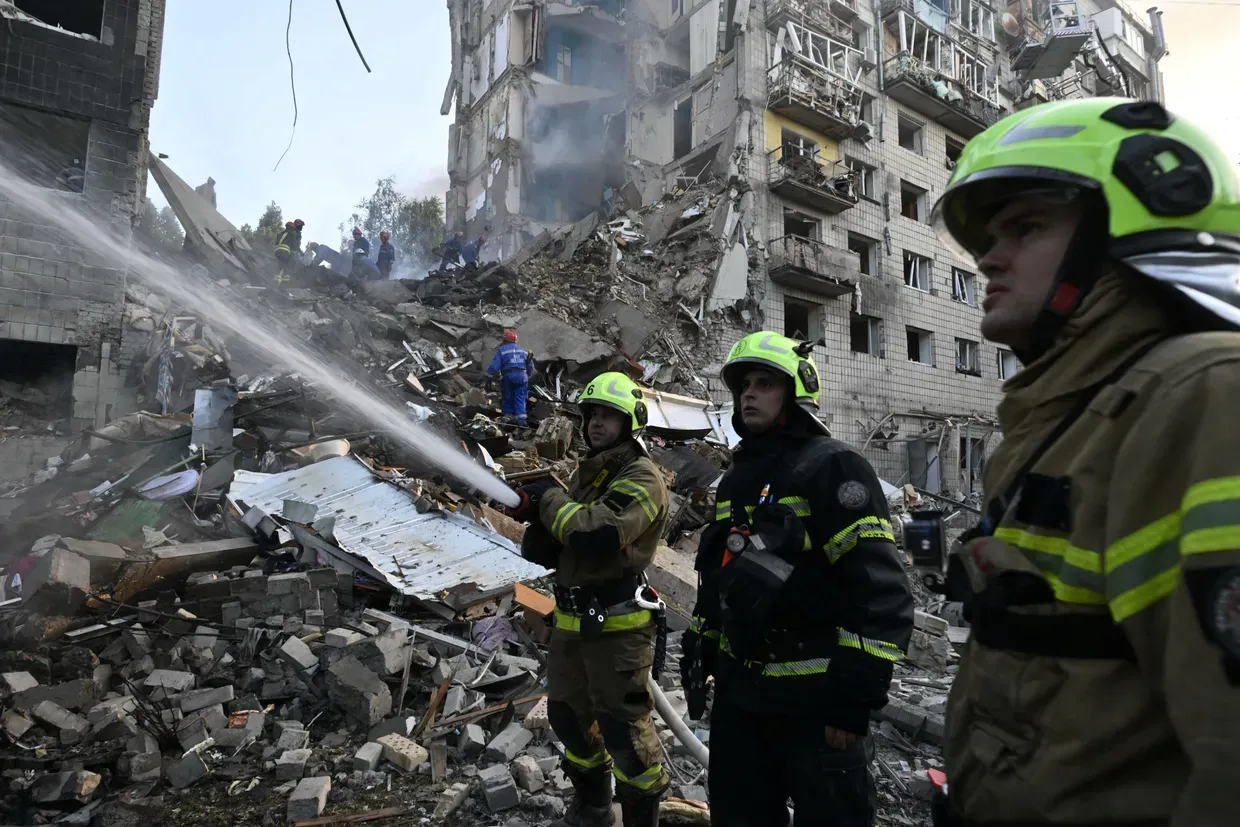
Firefighters extinguish burning parked cars next to a heavily damaged residential building following the Russian missile strike on Ukraine’s capital of Kyiv on June 17, 2025. (Genya Savilov / AFP via Getty Images) In a video posted on Telegram, Kyiv Mayor Vitali Klitschko said cluster munitions had been found in one area of the city. He later added that June 18 would be an official day of mourning in Kyiv.
Many of the deaths and injuries occurred when a Russian missile hit a nine-storey residential building in the Solomianskyi district, “completely destroying” one section, Ukraine’s State Emergency Service said.
“I saw the missile because it was low,” Olena Kushnirova, a 46-year-old nurse who lives in a neighboring building to the one that was hit, told the Kyiv Independent.
During the attack on the capital, a 62-year-old U.S. citizen died in the Solomianskyi district in a building across from where medics were assisting the injured, Klitschko reported. Medical personnel confirmed biological death.
Foreign Minister Andrii Sybiha also condemned the attack, calling it a “massive and brutal strike” timed deliberately to coincide with the G7 summit.
“Putin does this on purpose… He sends a signal of total disrespect to the United States and other partners who have called for an end to the killing,” Sybiha said. “Only strong steps and real pressure on Moscow can prove him wrong."
A Russian drone also hit a multi-storey building Darnytskyi District.
“At first there was shock,” Tatiana Bratus, a 50-year-old resident of the building, told the Kyiv Independent.
“People started running outside, shouting, some in panic, because the attack wasn’t over yet. They said there were still rockets flying. People ran to the bomb shelter.
A kindergarten in the Darnytskyi district was also damaged, Tymur Tkachenko, the head of the Kyiv City Military Administration, said. No casualties were reported at the site.
The upper floors of residential buildings in the Solomianskyi and Shevchenkivskyi districts were also damaged.
A dormitory at the Kyiv Aviation Institute was hit by drones during the attack, the news outlet Suspilne reported. Drones struck the institute’s 10th floor and broke windows on three other floors.
Outside the capital, the attacks also caused damage and injured civilians in Kyiv Oblast towns. At least one woman was injured and multiple homes were damaged, according to the regional administration.
The Russian strike damaged the production facility of Fahrenheit, a Ukrainian clothing manufacturer that supplies apparel and undergarments for both civilians and the military. The company announced it was forced to cancel all current orders and suspend new ones indefinitely following the destruction of its Kyiv site.
Russian forces also hit a Ukrainian Railways (Ukrzaliznytsia) freight train carrying grain. Several railcars overturned, temporarily halting operations and spilling grain from the damaged wagons. Ukrzaliznytsia said the damage would be "promptly repaired" and train traffic would not be affected.
Ukrposhta, Ukraine's national postal service, reported the destruction of two of its branches in Kyiv during the attack, according to CEO Ihor Smiliansky. The company's team is working to "quickly restore services," he said.
The attack followed a series of drone strikes overnight on June 16 targeting Kyiv Oblast, including both the capital and surrounding settlements. In the Obukhiv district, a 60-year-old man was injured, according to regional authorities.
Russian attacks against Ukraine have intensified in May and June, with Moscow launching several record-breaking mass strikes against Kyiv and other cities.
‘He said he wasn’t going anywhere’ — Russian strikes kill 14 in Kyiv as survivors search for missingSitting a few meters from the rubble of what used to be a nondescript nine-story residential building in Kyiv, Lilia rises to her feet every time another pile of debris is cleared from the site targeted by Russia during a mass overnight attack on June 17. “We are waiting (asThe Kyiv IndependentKateryna Denisova
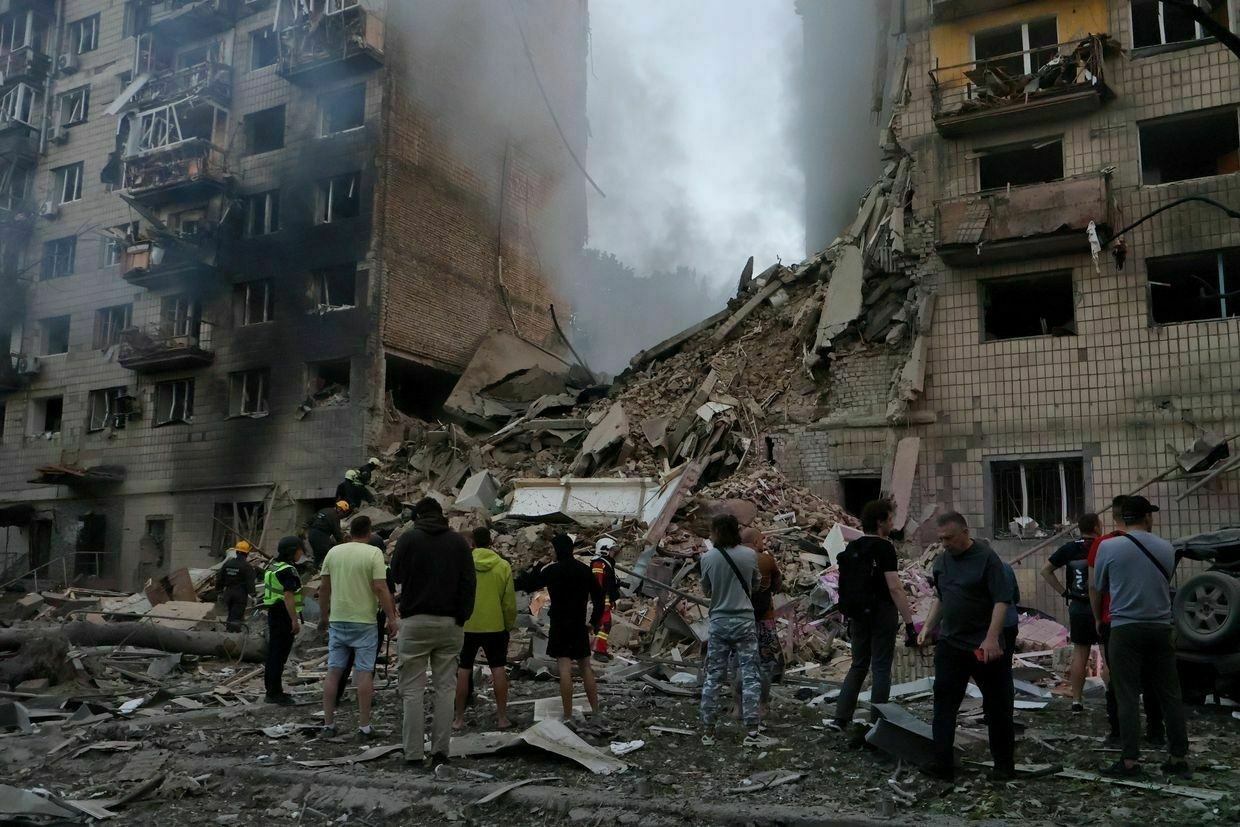
Zelensky arrives at G7 summit hours after Trump departsPresident Volodymyr Zelensky arrived at the G7 Leaders' Summit in Canada on June 17 ahead of the final day of the G7 Leaders' summit, according to a Kyiv Independent journalist on the ground.
Zelensky was greeted by Canadian Prime Minister Mark Carney in Kananaskis, Alberta, where the summit is being held.
"We need more from our allies... We are ready for peace negotiations... But for this, we need pressure," the Ukrainian president said.
The Ukrainian president was expected to meet U.S. President Donald Trump at the summit. However, it is not clear if the meeting will take place because Trump left the summit early due to escalating tensions in the Middle East.
White House spokesperson Caroline Leavitt confirmed Trump's early departure from the summit, citing the ongoing escalation between Israel and Iran.
Zelensky was to hold his third in-person meeting with Trump, which may signal the future of Trump and Zelensky's relationship, as well as offer insight into the United States' commitment to supporting Ukraine.
In February, Zelensky and Trump held their first meeting, which escalated into a heated argument, with Trump and Vice President JD Vance lambasting the Ukrainian leader over what they described as "a lack of gratitude for U.S. support."
The second meeting between Trump and Zelensky in the Vatican in April led to the U.S. president reiterating calls for a ceasefire in Ukraine and even threatening to impose sanctions on Russia.
In the month since their last in-person meeting, tensions between Trump and Zelensky have risen again. Despite issuing several threats, Trump has not followed through on implementing additional economic pressure on Moscow.
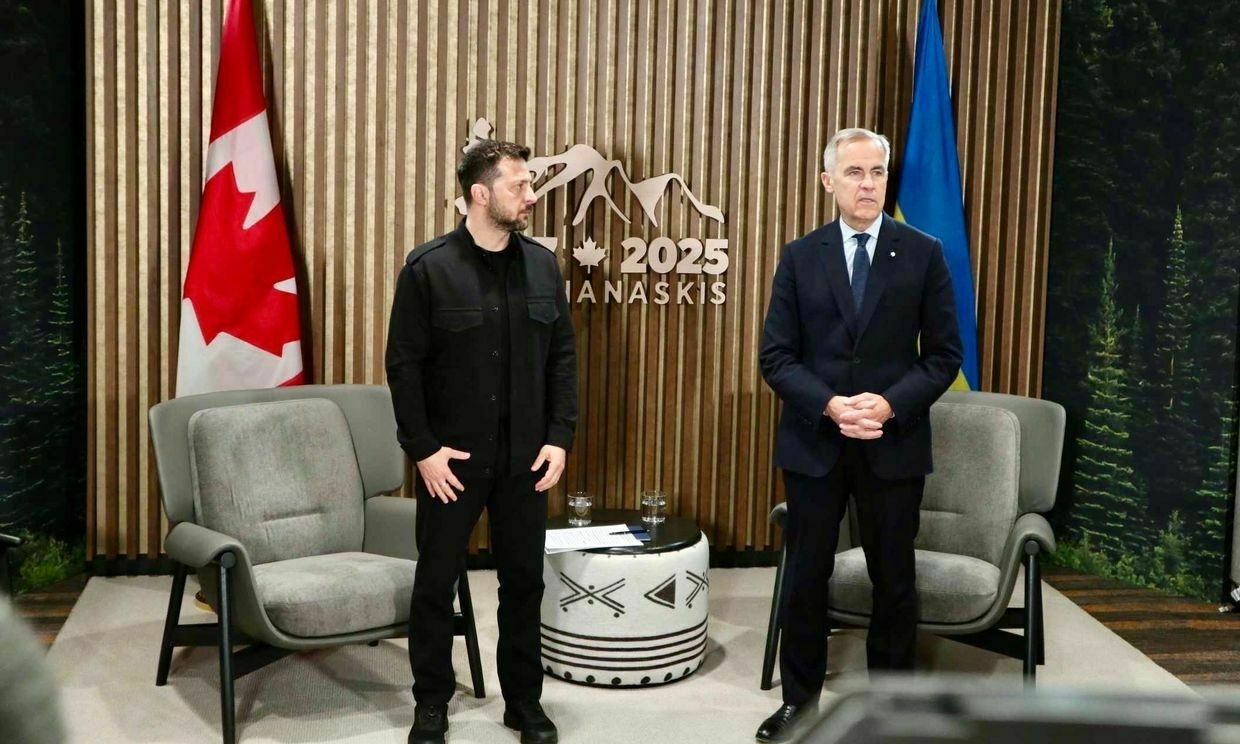
Canadian Prime Minister Mark Carney welcomes President Volodymyr Zelensky during the Group of Seven (G7) Summit in Kananaskis, Alberta, Canada on June 17, 2025. (Dmytro Basmat / The Kyiv Independent) Ahead of the summit, European leaders urged G7 nations to impose harsher sanctions on Moscow in order to secure a ceasefire in the war against Ukraine.
"To achieve peace through strength, we must put more pressure on Russia to secure a real ceasefire, to bring Russia to the negotiating table, and to end this war. Sanctions are critical to that end," European Commission President Ursula von der Leyen said on June 15 at a press briefing attended by a Kyiv Independent journalist.
Zelensky is still expected to attend the scheduled meetings with other G7 leaders.
Zelensky said in a closed-door meeting attended by the Kyiv Independent on June 13 that his priority is to speak with Trump about sanctions against Russia, peace talks, weapons purchases, and U.S.-Ukraine economic cooperation.
"There are steps forward we can take — but we need the political will of the U.S. president, if he wants," Zelensky said on June 13.
Amid increased anxiety around Trump's commitment to ending the war, U.S. Defense Secretary Pete Hegseth recently announced that the Pentagon would reduce funding allocated for military assistance to Ukraine in its 2026 defense budget.
Canada, which holds the G7 presidency in 2025, invited Zelensky to participate in summit, marking the Ukrainian president's fourth G7 meeting since the outbreak of the full-scale invasion in 2022.
Tired of military aid delays, Ukraine has designed its own ballistic missile — and it’s already in mass-productionUkraine announced on June 13 that its short-range Sapsan ballistic missile would go into mass production, a major development in Kyiv’s ongoing efforts to domestically produce the weapons it needs to fight Russia’s full-scale invasion. As Ukraine faces growing challenges in securing weapons from Western partners, and Russia continues launchingThe Kyiv IndependentYuliia Taradiuk
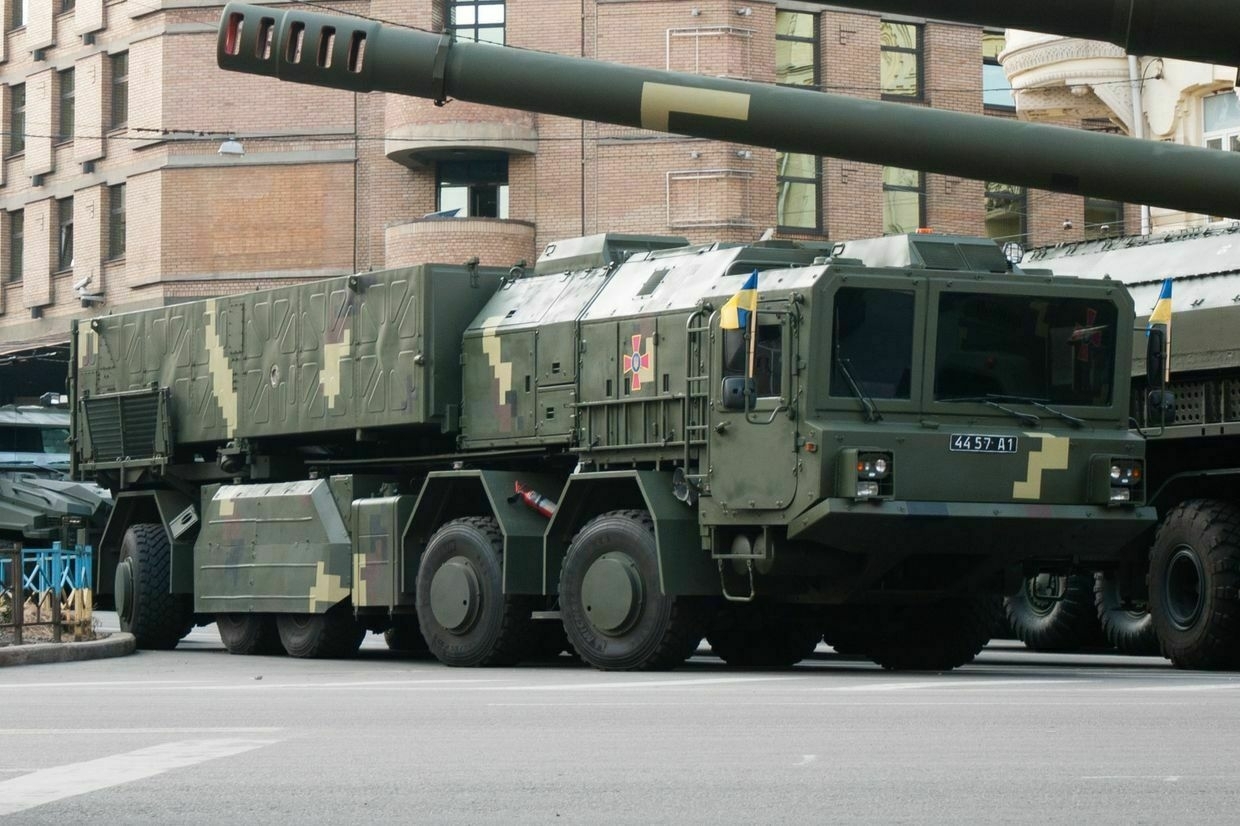
US group designed to pressure Russia disbanded by Trump administration, Reuters reportsA U.S. government working group that formulated strategies for pressuring Russia into peace talks and ending the war in Ukraine has been disbanded by the White House, Reuters reported on June 17.
Officials cited by the news outlet said it was established this spring but became increasingly irrelevant as it became clear U.S. President Donald Trump wasn't willing to apply any concrete pressure on Moscow during peace talks.
"It lost steam toward the end because the president wasn't there. Instead of doing more, maybe he wanted to do less," an anonymous official said.
As Ukraine and the U.S. continue to push for an unconditional ceasefire, Russia has maintained maximalist demands and rejected all such proposals.
At the same time, it has escalated attacks on Ukrainian civilians, killing at least 15 people and injuring scores of others in the latest attack on Kyiv overnight on June 17.
Trump has expressed frustration with Moscow's intransigence and growing violence but has yet to impose any new sanctions on Russia.
On June 1,6 while speaking in Canada ahead of a G7 summit, Trump said barring Russia from the G8 for its invasion of Ukraine in 2017 had been a "mistake."
According to Reuters, the working group, staffed by officials from the National Security Council, State Department, Treasury Department, the Pentagon and intelligence community, was decimated in a purge of personnel around three weeks ago.
Trump pledged to "stop the wars" when he was elected U.S. president for the second time, but after just five months in office, the world is a far more violent place.
As well as Russia escalating attacks on Ukraine, Israel and Iran are now locked in a conflict that further threatens stability in the Middle East.
‘Beyond cynical’ – Russian doctor carved ‘Glory to Russia’ scar on POW during operation, Ukraine saysAfter more than three years of Russia’s full-scale invasion, each new revelation of cruel treatment of Ukrainians in Russian captivity hardly surprises anyone. But when a photo recently emerged online, showing a “Glory to Russia” scar on the body of a Ukrainian prisoner of war (POW), it sent shockwavesThe Kyiv IndependentDaria Shulzhenko

US reportedly considers strikes on Iran as Trump demands 'unconditional surrender'U.S. President Donald Trump is weighing direct military action against Iran, including potential strikes on its nuclear facilities, Axios reported on June 17, citing unnamed U.S. officials.
Trump demanded Iran's "unconditional surrender" on Truth Social on June 17 and threatened Supreme Leader Ayatollah Ali Khamenei, boasting about U.S. air superiority.
The U.S. president is expected to meet with his national security team later in the day to determine the scope of involvement in the escalating conflict between Israel and Iran, according to Axios.
The meeting comes after his early departure from the G7 Leaders' Summit on June 16, where he had been scheduled to meet with President Volodymyr Zelensky the following day.
"We now have complete and total control of the skies over Iran," Trump wrote on Truth Social.
He added that "we know exactly where the so-called 'Supreme Leader' is hiding."
"He is an easy target, but is safe there - We are not going to take him out (kill!), at least not for now," Trump continued. "But we don't want missiles shot at civilians, or American soldiers. Our patience is wearing thin."
The U.S. president is increasingly leaning toward using military force to target Iran's nuclear facilities, moving away from a diplomatic resolution, CNN reported, citing two unnamed U.S. officials.
Although Trump continues to be receptive to negotiations, CNN sources indicated that any agreement would require significant concessions from Tehran.
German Chancellor Friedrich Merz said on June 17 that U.S. involvement in Israel's military campaign is under serious consideration, and a decision could be "made in the near future," Politico reported.
Merz said the decision depends on whether the Iranian regime "is prepared to return" to the negotiating table.
Israel-Iran war could provide economic boost Russia needs to continue fight against UkraineIsrael’s “preemptive” strikes against Iran targeting the country’s nuclear program and killing top military officials could have far-reaching implications for Ukraine and could boost Russia’s ability to continue its full-scale invasion, experts have told the Kyiv Independent. Iran has been one of Russia’s staunchest allies throughout the war, providing thousandsThe Kyiv IndependentChris York
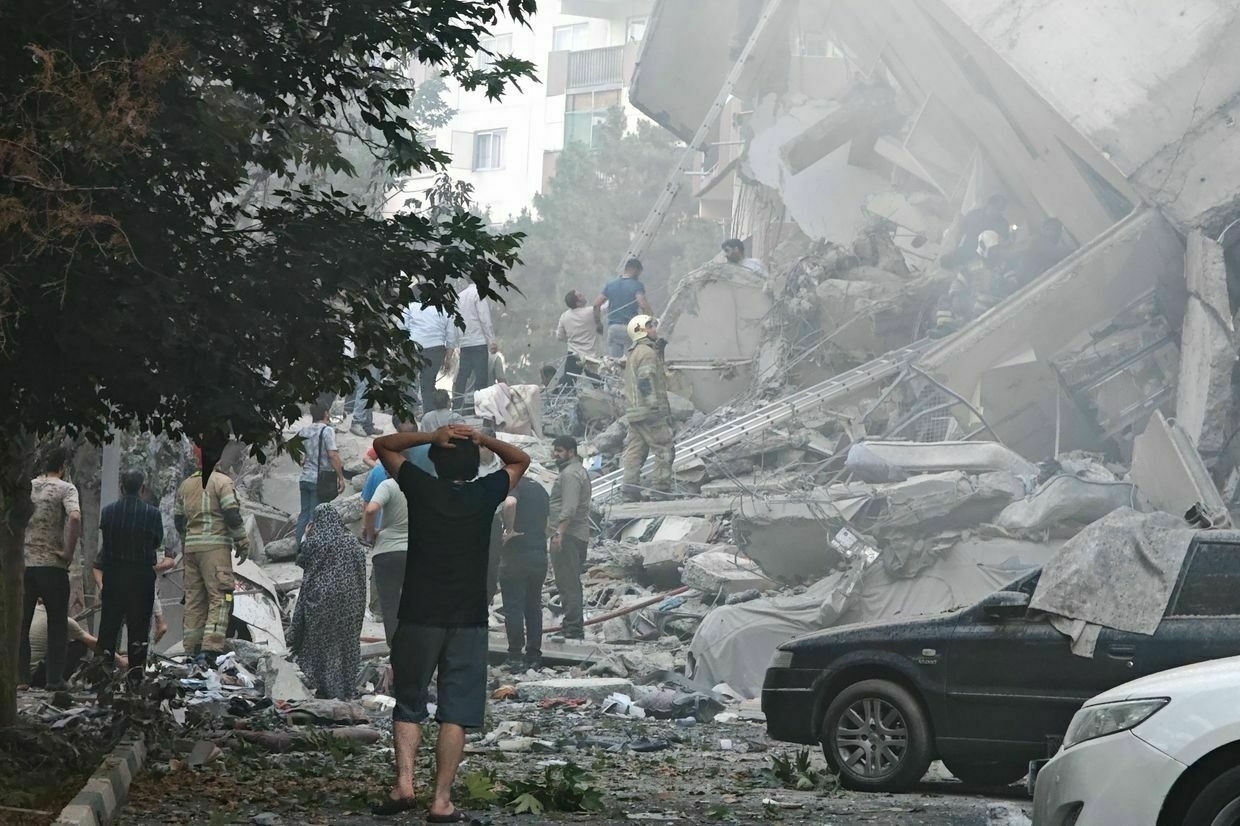
Israel launched a series of massive air strikes on Iran starting June 13, targeting nuclear facilities and senior military figures. The Israeli government claimed Tehran was nearing nuclear weapons capability.
Iran responded with missile strikes on Tel Aviv and other Israeli cities, which resulted in civilian casualties, including five Ukrainian citizens, on June 14.
Iranian officials claimed 224 people have been killed in Israeli attacks so far, most of them civilians. The figures have not been independently verified.
As tensions grow, Trump has floated the idea of Russian President Vladimir Putin serving as a mediator between Israel and Iran. Putin spoke with both Iranian President Masoud Pezeshkian and Israeli Prime Minister Benjamin Netanyahu on June 13, offering mediation and condemning Israeli strikes.
Israel has not publicly responded to Russia's proposal, but Kremlin spokesperson Dmitry Peskov said on June 17 that Tel Aviv appeared unwilling to accept Russian mediation.
French President Emmanuel Macron dismissed the suggestion entirely, saying on June 15 that Moscow, given its war in Ukraine and disregard for the UN Charter, "cannot be a mediator."
Tehran has become one of Russia's closest military partners during its war against Ukraine, supplying thousands of Shahed drones and ballistic missiles used in daily strikes on Ukrainian cities.
Israel, which has historically maintained careful relations with Russia and is home to a substantial Russian-speaking population, has not joined in Western sanctions against Moscow.
On June 13, Kyiv expressed its support for Israel, describing Iran as a "source of instability in the region and beyond," citing Tehran's extensive military cooperation with Russia.
Israel reluctant to accept Russia’s mediation in war with Iran, Kremlin says“At the moment, we see reluctance — at least on Israel’s part — to resort to mediation or pursue a peaceful resolution,” Kremlin spokesman Dmitry Peskov claimed.The Kyiv IndependentTim Zadorozhnyy
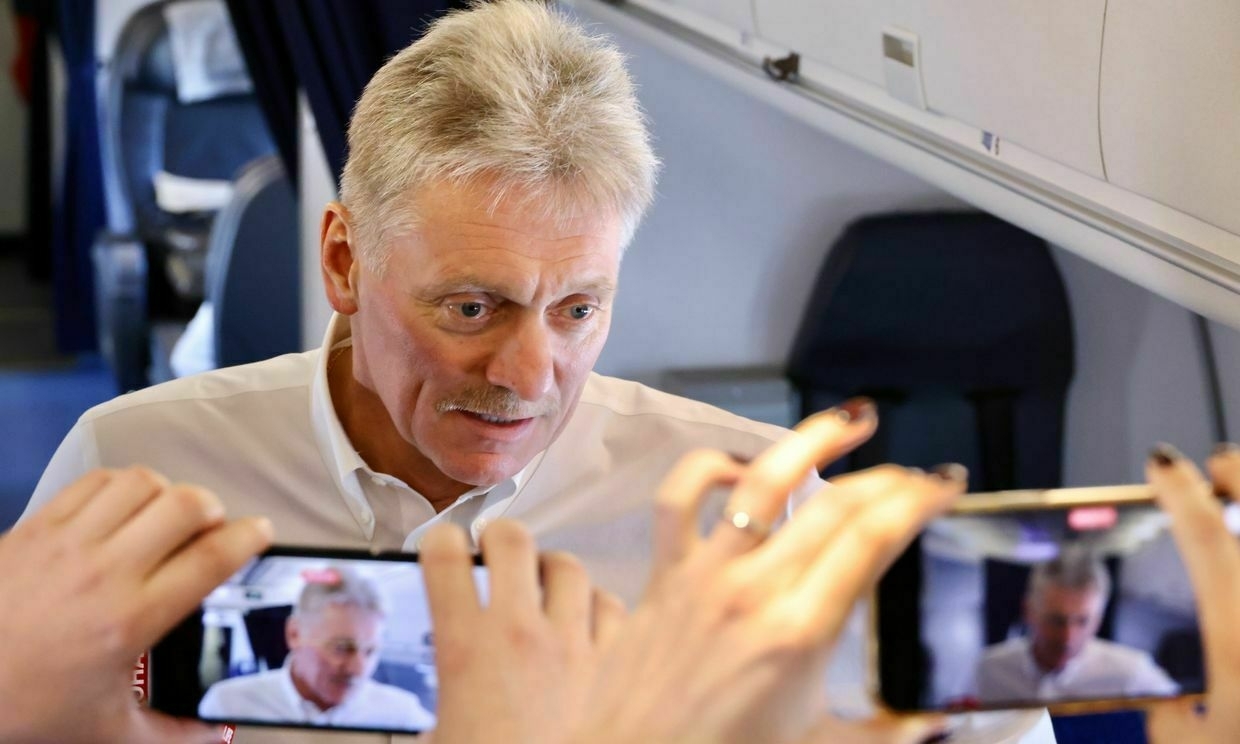
Russian chemical plant halts operations after Ukrainian drone strikeThe Nevinnomyssk Azot chemical plant — one of Russia's largest producers of nitrogen fertilizer and ammonia and a key supplier to the Kremlin's military-industrial complex — has suspended production, Russian independent media outlet Astra reported on June 16.
According to Astra, the chemical plant suspended production as a direct result of Ukrainian drone strikes. The strike — which was confirmed by Ukraine's General Staff on June 14 — targeted two major military-industrial facilities in Russia, including the Nevinnomyssk Azot plant in Stavropol Krai. The facility reportedly supplied raw materials and components for Russia's weapons and fuel production.
Nevinnomyssk Azot is among Russia's top producers of ammonia and nitrogen fertilizers and hosts the country's only production lines for methyl acetate and high-purity acetic acid. It also operates Russia's first melamine production facility, according to open-source data.
According to Andrii Kovalenko, head of Ukraine's Center for Countering Disinformation at the National Security and Defense Council, the plant produces up to one million tons of ammonia and over one million tons of ammonium nitrate annually, and is "a critical element of Russia's military-industrial complex."
Kovalenko noted that ammonium nitrate is a key component for explosives and artillery shells. He added that the plant also synthesizes dual-use chemicals such as melamine, acetic acid, methanol, and potassium nitrate — all frequently used in the production of grenade launchers, mines, and rocket charges.
Since 2024, the plant has also been producing water-soluble fertilizers, which he said have been adapted to serve military chemical needs as part of Russia's war in Ukraine.
The chemical plant is part of the EuroChem Group, owned by Russian billionaire Andrey Melnichenko, who is currently sanctioned by Canada, the European Union, Japan, and the United Kingdom.
Note from the author:
Ukraine War Latest is put together by the Kyiv Independent news desk team, who keep you informed 24 hours a day, seven days a week. If you value our work and want to ensure we have the resources to continue, join the Kyiv Independent community.
-
US reportedly considers strikes on Iran as Trump demands 'unconditional surrender'
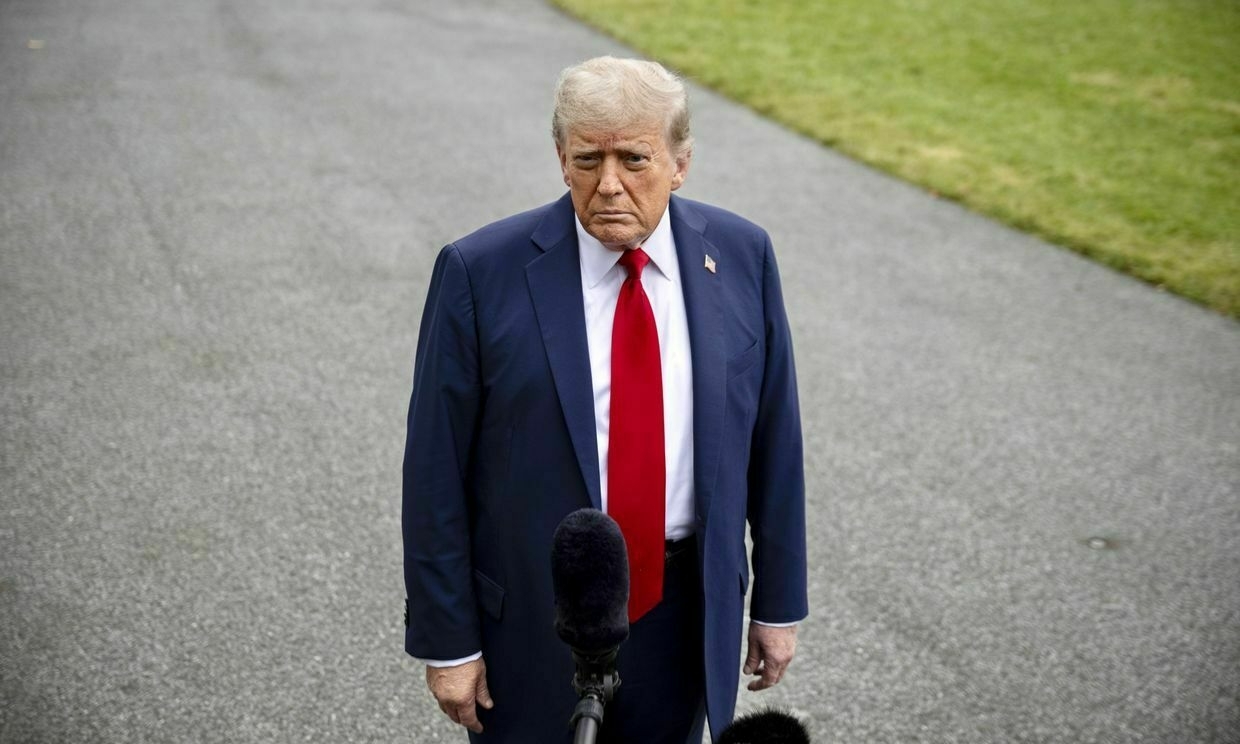
U.S. President Donald Trump is weighing direct military action against Iran, including potential strikes on its nuclear facilities, Axios reported on June 17, citing unnamed U.S. officials.
Trump demanded Iran’s “unconditional surrender” on Truth Social on June 17 and threatened Supreme Leader Ayatollah Ali Khamenei, boasting about U.S. air superiority.
Trump is expected to meet with his national security team later in the day to determine the scope of U.S. involvement in the escalating conflict between Israel and Iran, according to Axios.
The meeting comes after his early departure from the G7 Leaders' Summit on June 16, where he had been scheduled to meet with President Volodymyr Zelensky the following day.
“We now have complete and total control of the skies over Iran,” Trump wrote on Truth Social.
He added that “we know exactly where the so-called ‘Supreme Leader’ is hiding."
“He is an easy target, but is safe there - We are not going to take him out (kill!), at least not for now,” Trump continued. “But we don’t want missiles shot at civilians, or American soldiers. Our patience is wearing thin."
German Chancellor Friedrich Merz said on June 17 that U.S. involvement in Israel’s military campaign is under serious consideration, and a decision could be “made in the near future,” Politico reported.
Merz said the decision depends on whether the Iranian regime “is prepared to return” to the negotiating table.
Israel launched a series of massive air strikes on Iran starting June 13, targeting nuclear facilities and senior military figures. The Israeli government claimed Tehran was nearing nuclear weapons capability.
Iran responded with missile strikes on Tel Aviv and other Israeli cities, which resulted in civilian casualties, including five Ukrainian citizens on June 14.
Iranian officials claimed 224 people have been killed in Israeli attacks so far, most of them civilians. The figures have not been independently verified.
As tensions grow, Trump has floated the idea of Russian President Vladimir Putin serving as a mediator between Israel and Iran. Putin spoke with both Iranian President Masoud Pezeshkian and Israeli Prime Minister Benjamin Netanyahu on June 13, offering mediation and condemning Israeli strikes.
Israel has not publicly responded to Russia's proposal, but Kremlin spokesperson Dmitry Peskov said on June 17 that Tel Aviv appeared unwilling to accept Russian mediation.
French President Emmanuel Macron dismissed the suggestion entirely, saying on June 15 that Moscow, given its war in Ukraine and disregard for the UN Charter, "cannot be a mediator."
Tehran has become one of Russia's closest military partners during its war against Ukraine, supplying thousands of Shahed drones and ballistic missiles used in daily strikes on Ukrainian cities.
Israel, which has historically maintained careful relations with Russia and is home to a substantial Russian-speaking population, has not joined in Western sanctions against Moscow.
On June 13, Kyiv expressed its support for Israel, describing Iran as a "source of instability in the region and beyond," citing Tehran's extensive military cooperation with Russia.
Zelensky arrives at G7 summit hours after Trump departsZelensky was expected to meet U.S. President Donald Trump at the summit. However, it is not clear if the meeting will take place because Trump left the summit early due to escalating tensions in the Middle East.The Kyiv IndependentDmytro Basmat

-
‘He said he wasn’t going anywhere’ — Russian strikes kill 14 in Kyiv as survivors search for missing
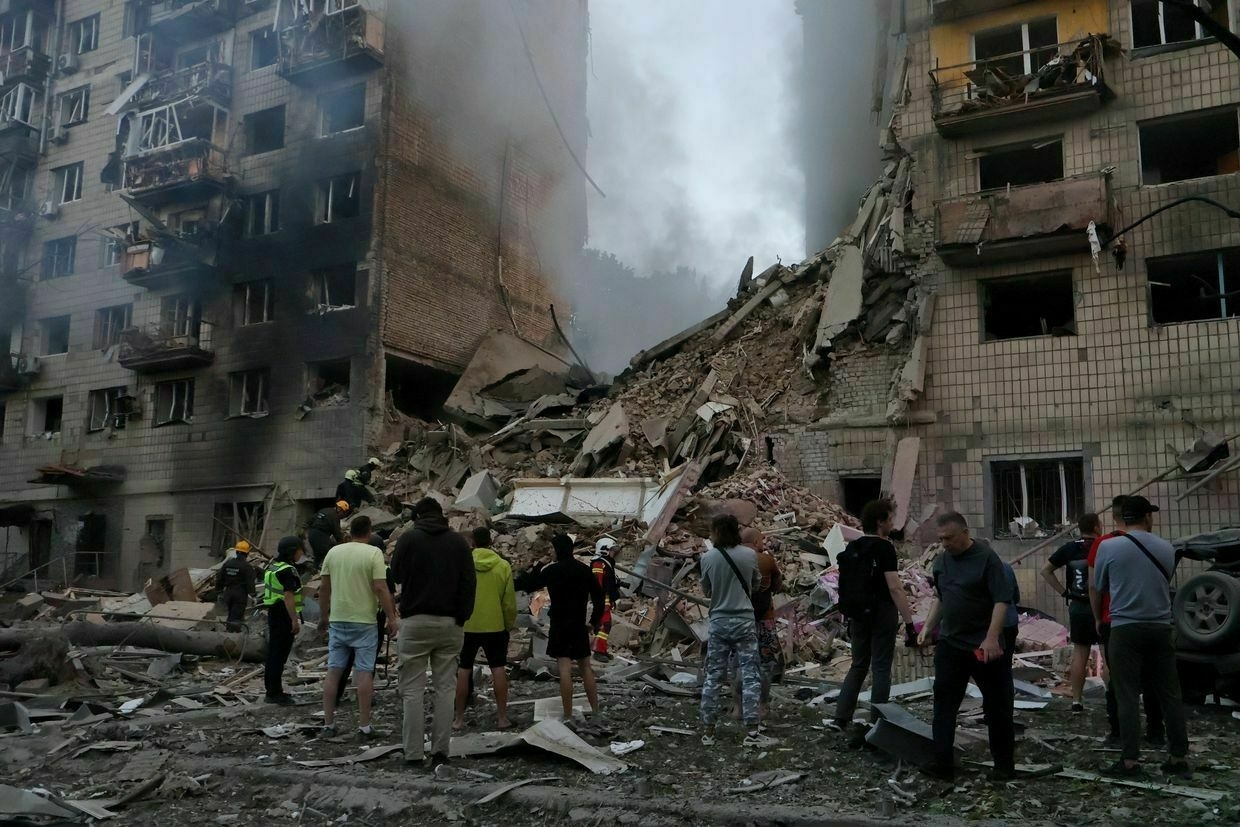
Sitting a few meters from the rubble of what used to be a nondescript nine-story residential building in Kyiv, Lilia rises to her feet every time another pile of debris is cleared from the site targeted by Russia during a mass overnight attack on June 17.
“We are waiting (as everyone) for the same thing,” says Victoria Smirnova, 37, Lilia’s mother-in-law, seated nearby. “The father was there."
The man’s third-floor apartment and the entire section of the building in the capital’s Solomianskyi district had completely collapsed.
“She (Lilia) ran to him after the first wave of drone attacks,” Smirnova told the Kyiv Independent. “He was cleaning up broken glass. The windows in the kitchen and on the balcony were shattered. He told her, ‘I’ll be home, there’s so much to do. I’ll stay in the corridor. I’m not going anywhere.'"
Minutes after Lilia left, a Russian cruise missile struck the building.The two women are among many waiting near the site, desperate for news about family members and acquaintances still missing in the aftermath of the overnight strike, the deadliest attack on Kyiv since the start of the year.
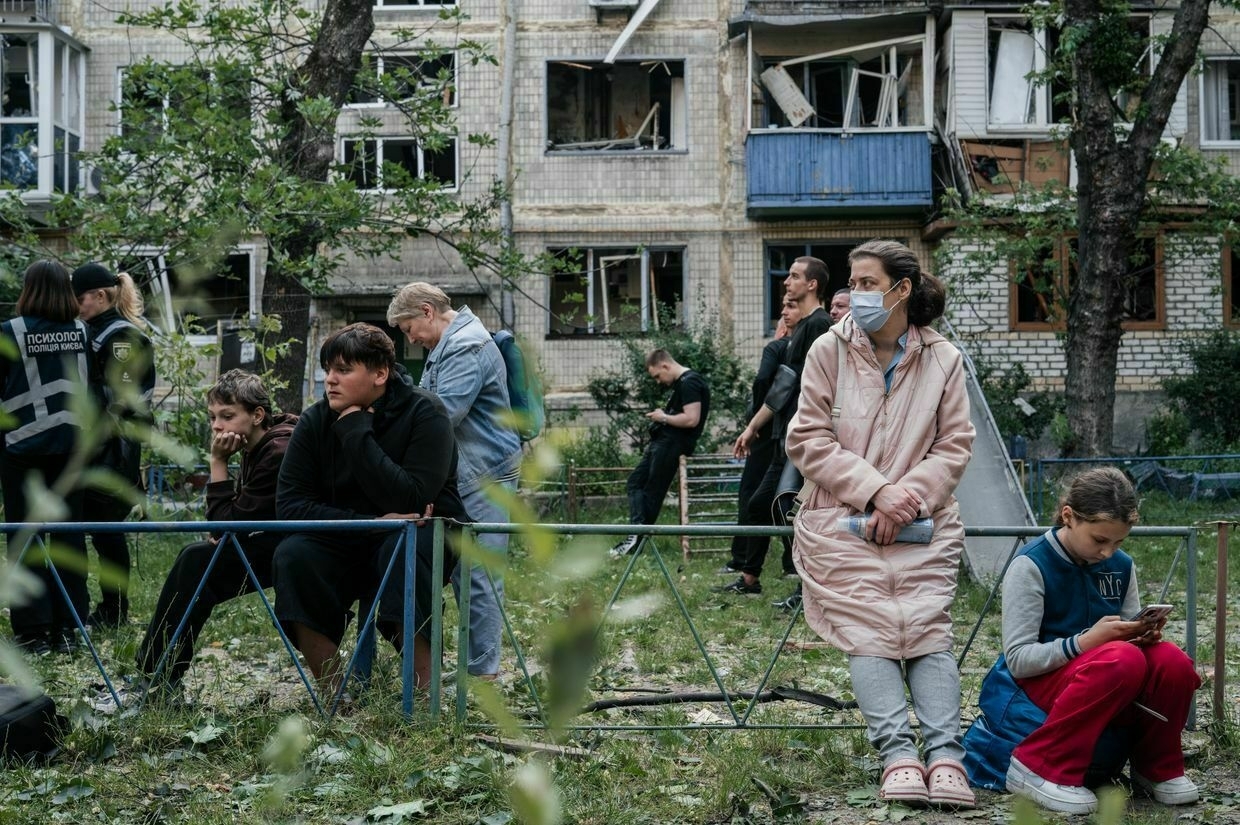
Residents evacuate a damaged apartment building after a Russian drone and missile attack in Kyiv, Ukraine, on June 17, 2025. (Vlada Liberova / Libkos / Getty Images) 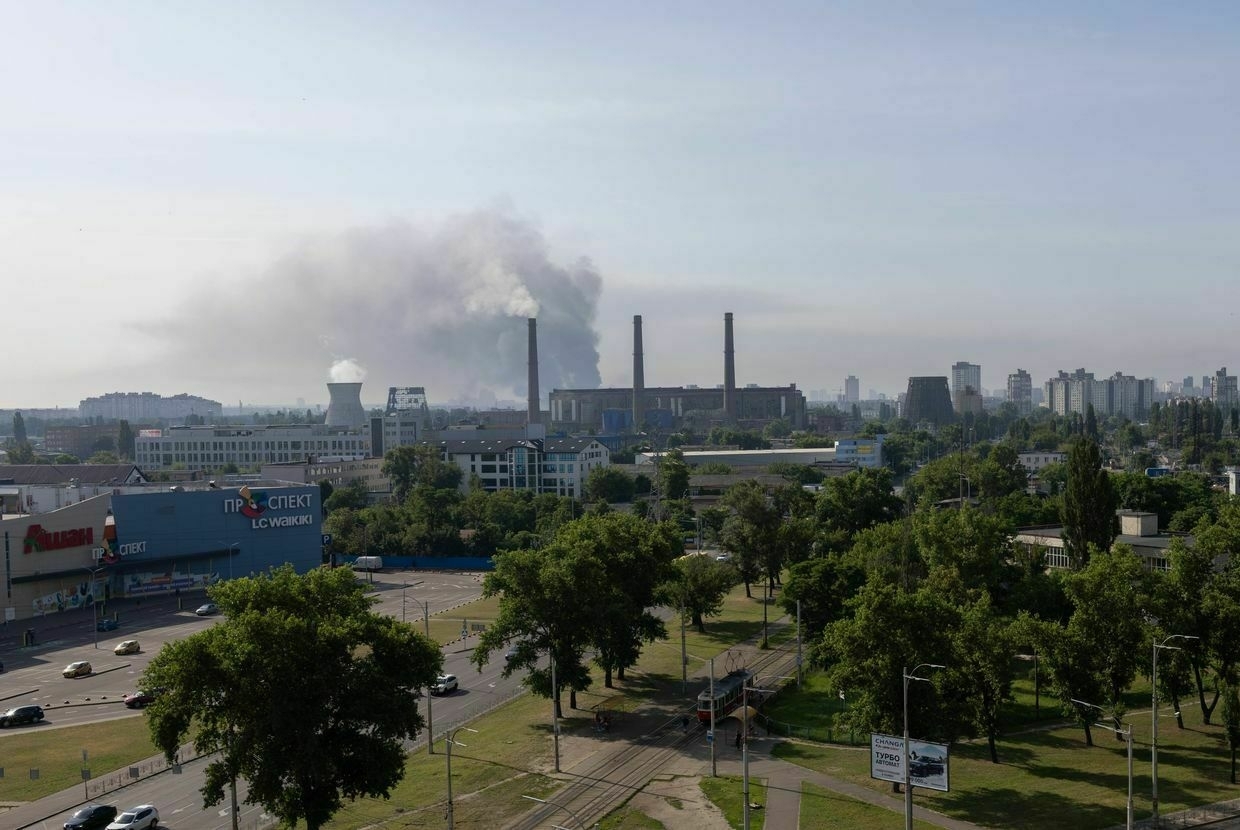
Smoke rises over Kyiv, Ukraine, after a combined Russian drone and missile attack on June 17, 2025. (Anna Donets / The Kyiv Independent) At least 14 people were killed in the capital, and 117 others were injured, according to officials. Two more people were killed in a Russian overnight attack on the southern city of Odesa.
Ukraine’s Air Force said Russia launched 472 aerial weapons overnight, including nearly 280 Shahed-type drones and 32 missiles. The strikes were primarily aimed at Kyiv.
Air defense forces intercepted 428 of those targets, including 239 Shahed drones, one Kinzhal ballistic missile, and 23 cruise missiles.
Mayor Vitali Klitschko also reported that Russian forces used cluster munitions during the attack.
Witnesses said the attack came in several waves — first drones, then missiles, then drones again. After the initial barrage, a lull in the strikes prompted some residents to leave their shelters.
Among them were Halyna Kushnirova, 72, and her son. They had just stepped outside when fresh explosions rocked the district. This time, they took cover in an underground passageway near their home.
"I'm in shock. I still can't fully grasp that this actually happened. I mean, I see it, but I can't process it.”
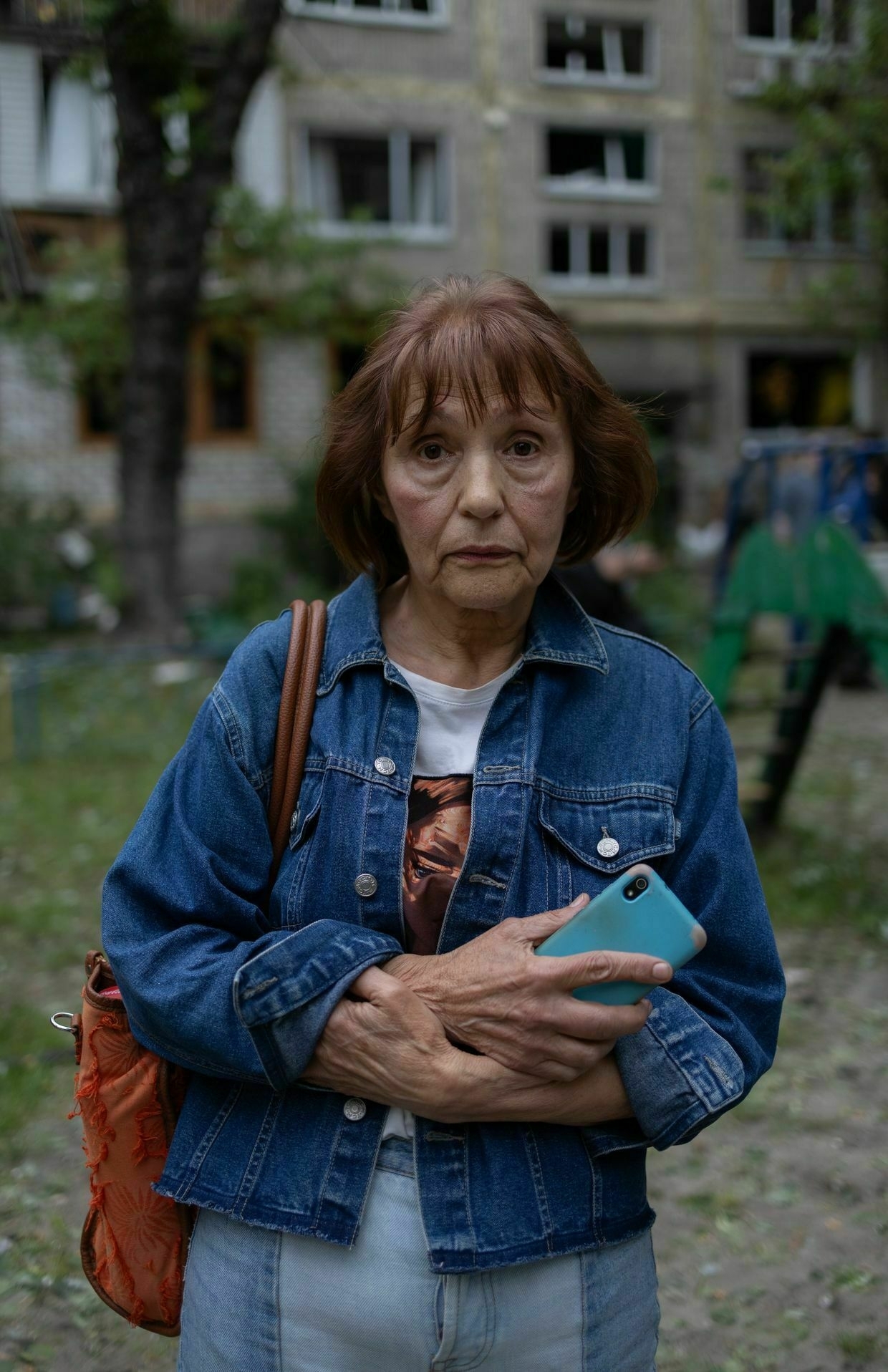
Halyna Kushnirova, 72, a retiree who lives in the house struck by a Russian missile, stands outside the damaged building in Kyiv, Ukraine, on June 17, 2025. (Anna Donets / The Kyiv Independent)
"Then there was this terrible whistling. It was horrible. Three missiles — with such a noise that my ears were ringing," Kushnirova said. "The explosion was so strong that dust, smoke, and sparks filled the passageway."
"I said immediately: it's our building (that was hit)."
She said her apartment, located in a neighboring section of the building, was heavily damaged.
The attack left a trail of destruction across Kyiv, damaging multiple residential buildings in several districts, along with critical infrastructure, a kindergarten, a student dormitory, and cars.
Russia launched its latest strike as the G7 summit was underway in Canada. On the day of the attack, President Volodymyr Zelensky was expected to meet with his U.S. counterpart, Donald Trump. However, the American president left the summit a day before the meeting.
Trump has declined to comment on the attack and refrained from criticizing the Russian regime.
"I'm in shock. I still can't fully grasp that this actually happened. I mean, I see it, but I can't process it," Kushnirova said. "I wish Trump were here next to me to see what his buddy (Russian President Vladimir) Putin is doing."
‘A brutal strike’ — Massive Russian missile and drone attack hits Kyiv, killing 10, injuring at least 124Russian drones and ballistic missiles targeted the capital overnight, killing 15 people and injuring at least 114, local authorities reported. Damage to civilian infrastructure has also been reported throughout the city.The Kyiv IndependentOlena Goncharova
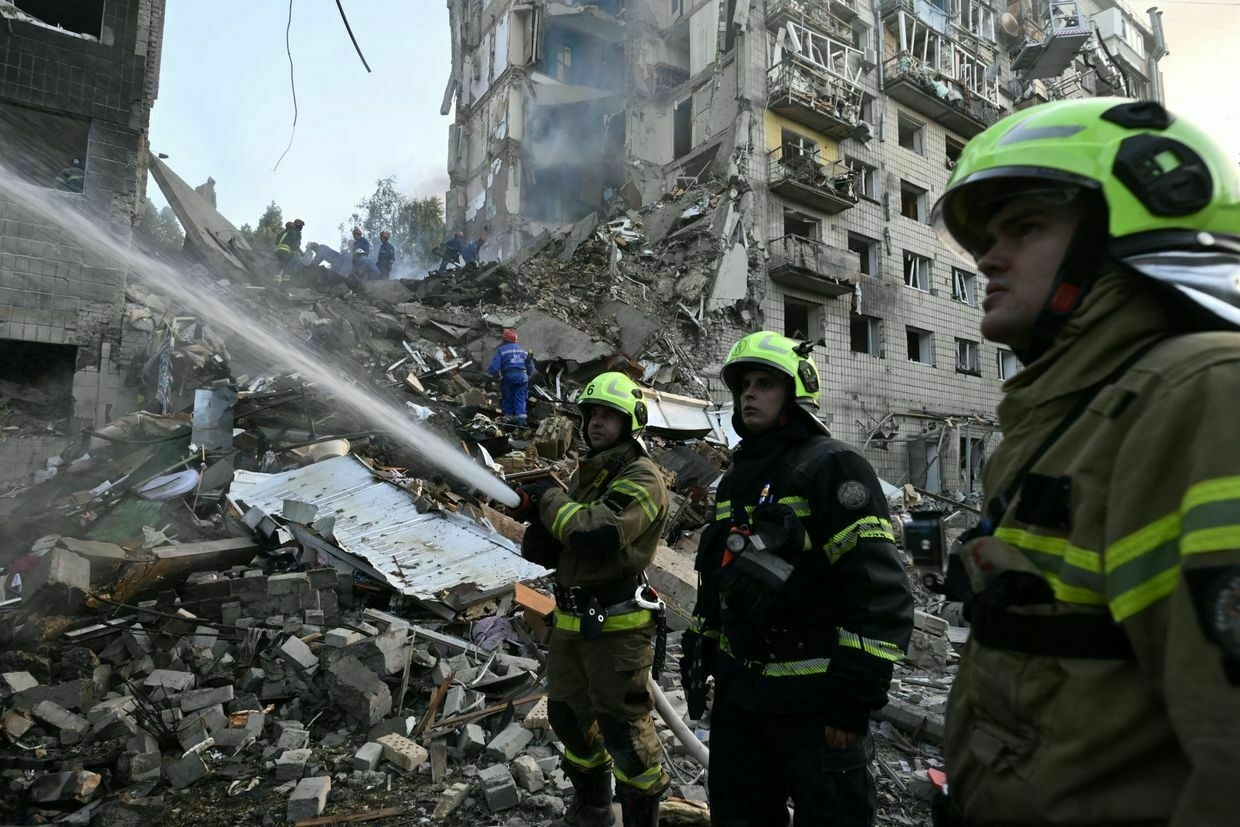
Escaping the worstOn the opposite side of the city, residents of Kyiv's left bank Darnytskyi district were also wrestling with the aftermath of the Russian attack.
Around 5 a.m., a Russian drone slammed into one of the high-rise apartment buildings. The strike left several people wounded, destroying an outer wall and rooms in several apartments and shattering windows throughout the neighborhood.
"My children were already in the bathroom. (My wife and I) were in the corridor. We heard the Shahed's descent, then the hit," said Ivan Serebrianskyi, 42, an entrepreneur who lives in the damaged building.
"The windows were shattered, and smoke covered the place. We went outside and checked that everyone in the family was alive and well. It's the main thing," he told the Kyiv Independent outside his entrance as the residents cleared up the driveway.
Serebrianskyi added that after the overnight attack, he wants his four and 13-year-old daughters to move abroad "within a few days."
"The worst part is that we can't plan at all for when it might end," Serebrianskyi said.
"Perhaps there will be a world leader other than our president who will be able to take a serious stance with this crazy neighbor of ours."
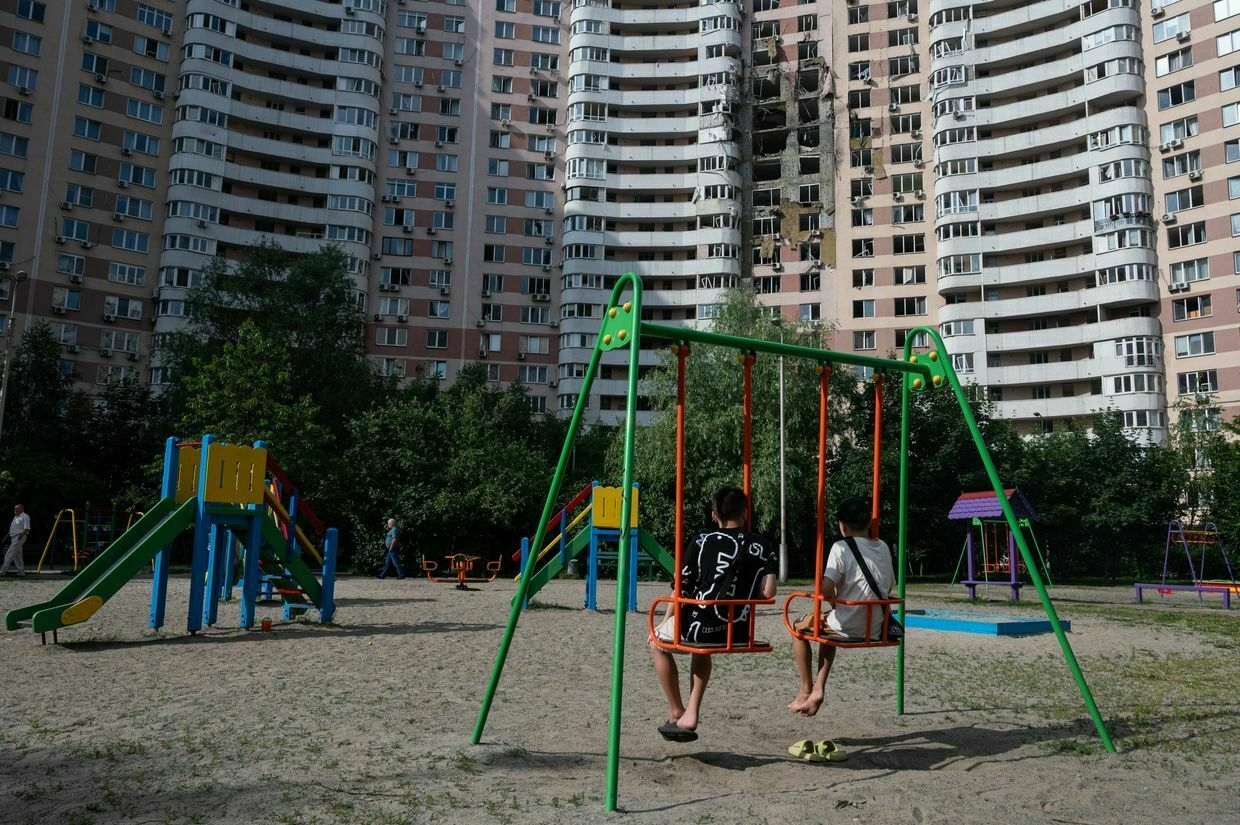
Children play near a residential building damaged by a Russian attack in Kyiv, Ukraine, on June 17, 2025. (Danylo Antoniuk / Anadolu via Getty Images) 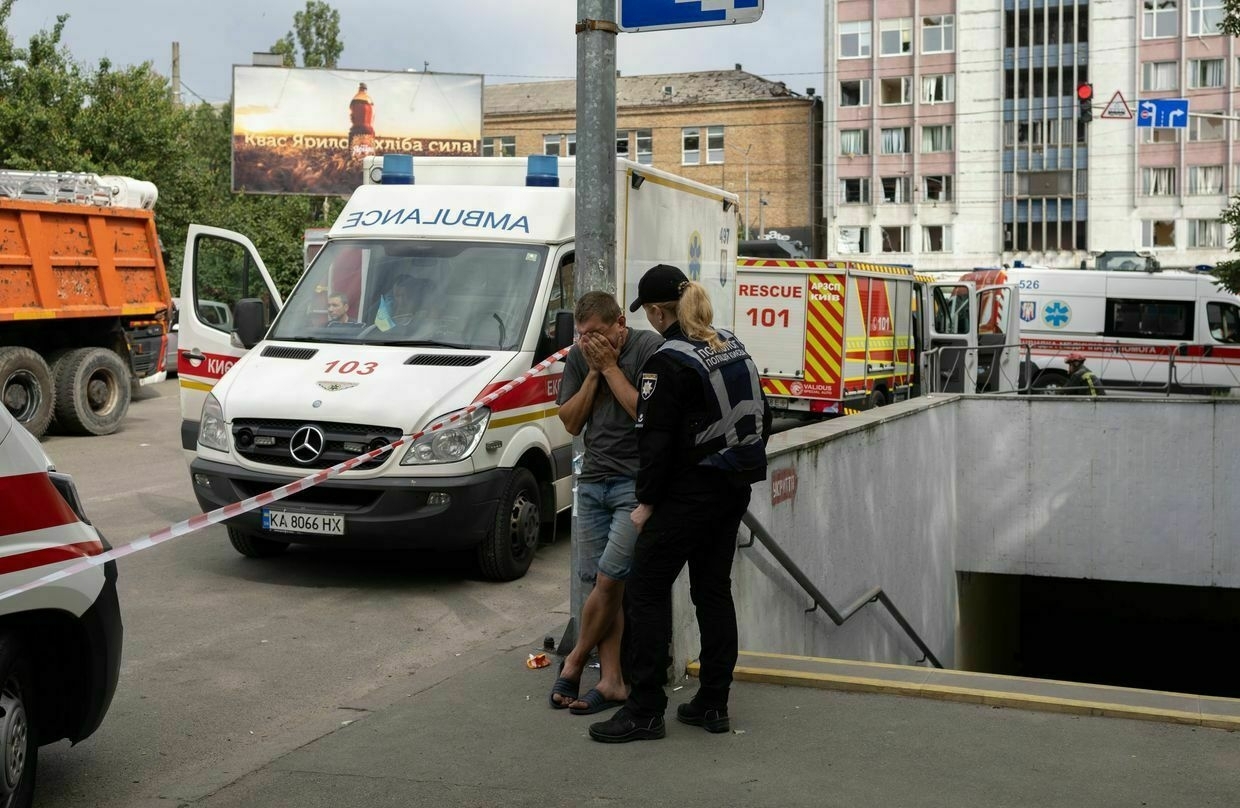
A man cries near the house that was struck by a Russian missile in Kyiv, Ukraine, on June 17, 2025. (Anna Donets / The Kyiv Independent) Serebrianskyi added that he was amazed at Trump's meek position in the peace talks with Russia.
"I run a small business myself, but I can say 100% that not everything in business can be solved by negotiation. Sometimes you need radical changes," he said.
Having escaped the worst, some residents of the Darnytskyi district started clearing up the debris almost immediately after the impact.
"Literally half an hour (after the attack), we started clearing up our entrance. Shattered common doors, window frames, glass," said Tatiana Bratus, 50, a building resident whose car was damaged in the attack.
In the late afternoon, Bratus and other residents who worked to clear the aftermath of the strike were joined by unlikely volunteers.
Around a dozen kids from nearby houses were sweeping up glass and litter off the sidewalk in front of the building, having procured brooms and scoops from the neighbors.
When asked by the Kyiv Independent's reporters why the children were cleaning up, one of the boys in the group responded: "Because it must be done."
Natalia, 28, a resident of a nearby building who declined to share her last name, said that she came to help with her friend's children, aged 10 and 12. The children volunteered to help after they read in the local volunteer group about the need for helpers at the location.
"The rest were just a group of kids playing around," Natalia said. "They approached us and said they wanted to help. We were not banned from it, so it seems safe here."
"No one forced them," Natalia added. "The nation is growing up strong. They are not going to look past the troubles of others."
‘Beyond cynical’ – Russian doctor carved ‘Glory to Russia’ scar on POW during operation, Ukraine saysAfter more than three years of Russia’s full-scale invasion, each new revelation of cruel treatment of Ukrainians in Russian captivity hardly surprises anyone. But when a photo recently emerged online, showing a “Glory to Russia” scar on the body of a Ukrainian prisoner of war (POW), it sent shockwavesThe Kyiv IndependentDaria Shulzhenko

-
Zelensky arrives at G7 summit hours after Trump departs
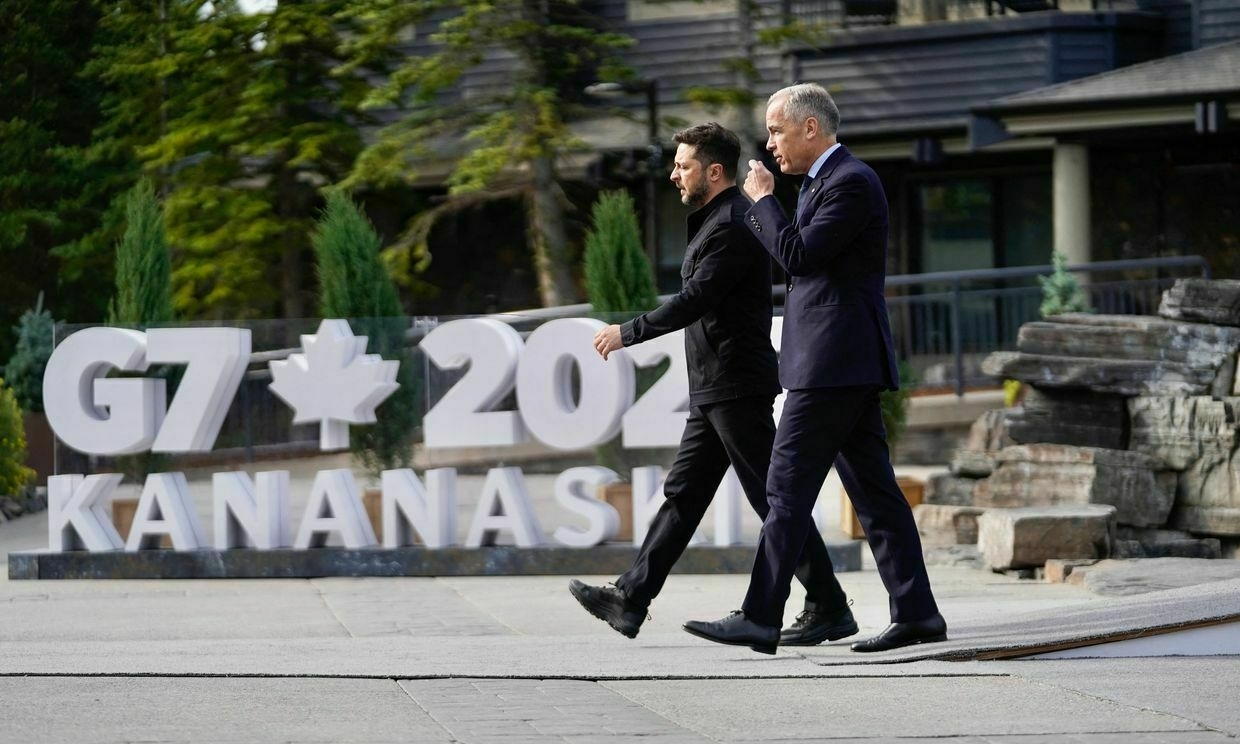
President Volodymyr Zelensky arrived at the G7 Leaders' Summit in Canada on June 17 ahead of the final day of the G7 Leaders' summit, according to a Kyiv Independent journalist on the ground.
Zelensky was greeted by Canadian Prime Minister Mark Carney in Kananaskis, Alberta, where the summit is being held.
The Ukrainian president was expected to meet U.S. President Donald Trump at the summit. However, it is not clear if the meeting will take place because Trump left the summit early due to escalating tensions in the Middle East.
White House spokesperson Caroline Leavitt confirmed Trump’s early departure from the summit, citing the ongoing escalation between Israel and Iran.
The Israeli military launched a large-scale attack on Iran’s nuclear and military infrastructure on June 13, which was followed by retaliatory ballistic missile strikes from Tehran. Israel has since struck key defense targets in Tehran, including the headquarters of Iran’s Defense Ministry.
Zelensky was to hold his third in-person meeting with Trump, which may signal the future of Trump and Zelensky's relationship, as well as offer insight into the United States' commitment to supporting Ukraine.
In February, Zelensky and Trump held their first meeting, which escalated into a heated argument, with Trump and Vice President JD Vance lambasting the Ukrainian leader over what they described as "a lack of gratitude for U.S. support."
The second meeting between Trump and Zelensky in the Vatican in April led to the U.S. president reiterating calls for a ceasefire in Ukraine and even threatening to impose sanctions on Russia.
In the month since their last in-person meeting, tensions between Trump and Zelensky have risen again. Despite issuing several threats, Trump has not followed through on implementing additional economic pressure on Moscow.
Ahead of the summit, European leaders urged G7 nations to impose harsher sanctions on Moscow in order to secure a ceasefire in the war against Ukraine.
"To achieve peace through strength, we must put more pressure on Russia to secure a real ceasefire, to bring Russia to the negotiating table, and to end this war. Sanctions are critical to that end," European Commission President Ursula von der Leyen said on June 15 at a press briefing attended by a Kyiv Independent journalist.
Zelensky is still expected to attend the scheduled meetings with other G7 leaders.
Zelensky said in a closed-door meeting attended by the Kyiv Independent on June 13 that his priority is to speak with Trump about sanctions against Russia, peace talks, weapons purchases, and U.S.-Ukraine economic cooperation.
"There are steps forward we can take — but we need the political will of the U.S. president, if he wants," Zelensky said on June 13.
Amid increased anxiety around Trump's commitment to ending the war, U.S. Defense Secretary Pete Hegseth recently announced that the Pentagon would reduce funding allocated for military assistance to Ukraine in its 2026 defense budget.
Canada, which holds the G7 presidency in 2025, invited Zelensky to participate in summit, marking the Ukrainian president’s fourth G7 meeting since the outbreak of the full-scale invasion in 2022.
EU leaders call for tougher sanctions on Russia at G7 summit“To achieve peaceful strength we must put more pressure on Russia to secure a real ceasefire, to bring Russia to the negotiating table, and to end this war. Sanctions are critical to that end,” European Commission President Ursula von der Leyen said.The Kyiv IndependentAbbey Fenbert
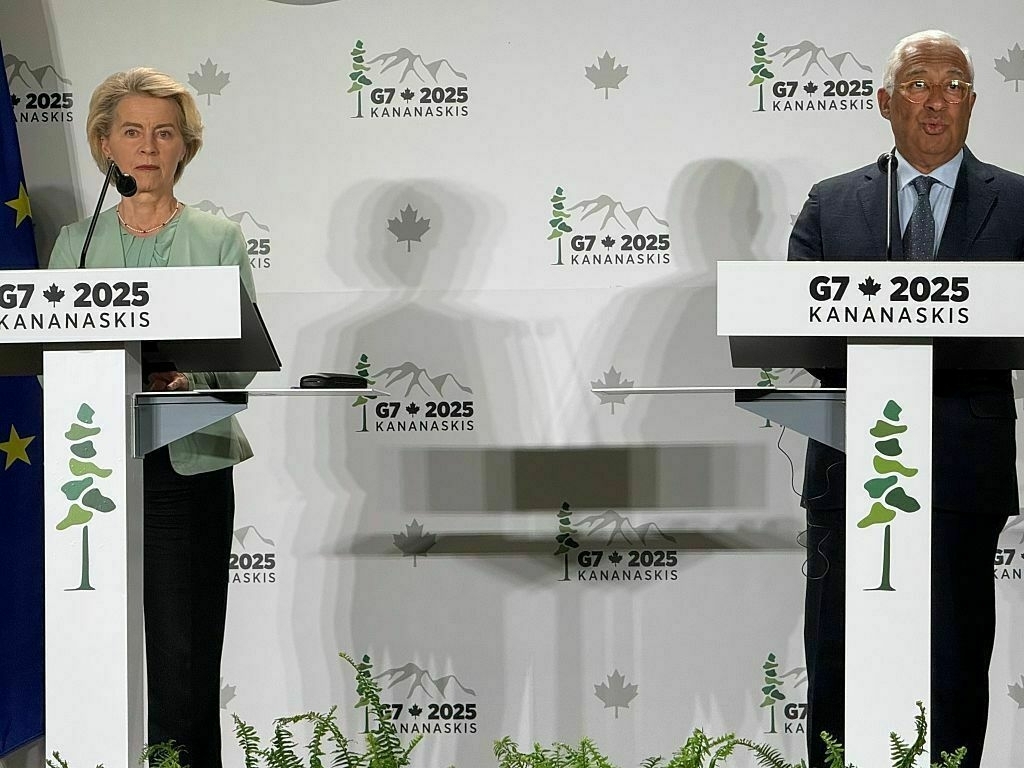
-
Israel reluctant to accept Russia's mediation in war with Iran, Kremlin says
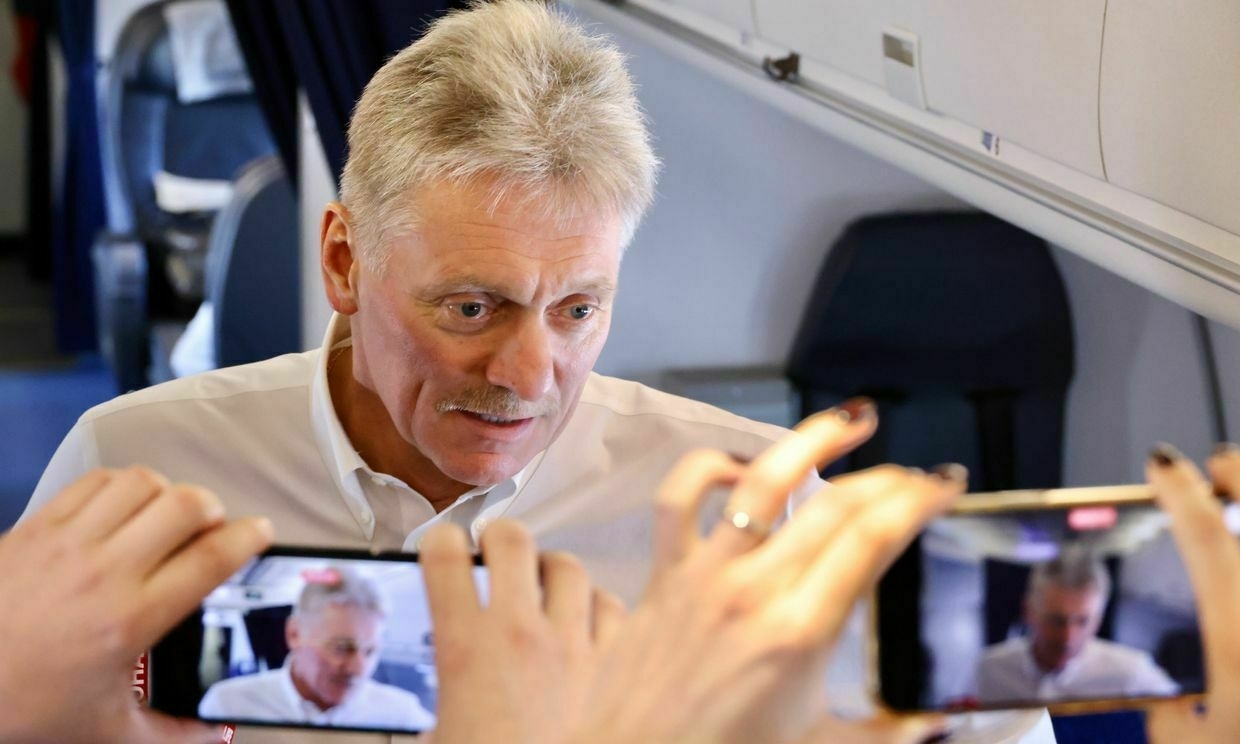
Israel is reluctant to accept Russia’s mediation in its war with Iran, Kremlin spokesperson Dmitry Peskov said on June 17, according to the Russian state news agency TASS.
“At the moment, we see reluctance — at least on Israel’s part — to resort to mediation or pursue a peaceful resolution,” Peskov claimed.
Since June 13, Israel has repeatedly carried out massive air strikes against Iran, particularly the country’s military leadership and nuclear facilities. The Israeli government justified the attacks by saying that Tehran was on the verge of creating a nuclear bomb.
Iran responded by attacking Israeli cities, including Tel Aviv, which resulted in civilian casualties, including five Ukrainian citizens on June 14.
U.S. President Donald Trump on June 15 said he was open to the idea of Russian President Vladimir Putin mediating between Iran and Israel.
“He is ready. He called me about it. We had a long talk about it. We talked about this more than his situation (war against Ukraine),” Trump said, according to ABC reporter Rachel Scott.
The Russian president held separate calls with Iranian President Masoud Pezeshkian and Israeli Prime Minister Benjamin Netanyahu on June 13.
During the call with Iran, Putin offered condolences for what the Kremlin labeled "numerous civilian casualties" and condemned Israel's actions as violations of the UN Charter. He later proposed that Russia could serve as a neutral mediator.
Israel has not commented publicly on the Kremlin's offer, but Peskov's statement implies Tel Aviv's rejection. France has also dismissed the idea, with President Emmanuel Macron saying on June 15 that Moscow "cannot be a mediator."
Russia's ties with Iran have deepened since the start of its full-scale invasion of Ukraine in 2022. Tehran has supplied Moscow with thousands of Shahed attack drones and ballistic missiles used in daily strikes against Ukrainian cities and infrastructure.
Israel, which has historically maintained cautious relations with Russia and is home to a significant Russian-speaking population, has not joined Western sanctions against Moscow.
As of June 16, Iran's Health Ministry claimed 224 people had been killed by Israeli strikes, with Tehran alleging that 90% of the casualties are civilians.
The figures have not been independently verified. Israel has not confirmed casualty numbers but maintains that the strikes were aimed at preventing an existential threat.
On June 13, Kyiv expressed support for Israel, describing Iran as a "source of instability in the region and beyond," citing Tehran's extensive military cooperation with Russia.
Israel-Iran war could provide economic boost Russia needs to continue fight against UkraineIsrael’s “preemptive” strikes against Iran targeting the country’s nuclear program and killing top military officials could have far-reaching implications for Ukraine and could boost Russia’s ability to continue its full-scale invasion, experts have told the Kyiv Independent. Iran has been one of Russia’s staunchest allies throughout the war, providing thousandsThe Kyiv IndependentChris York
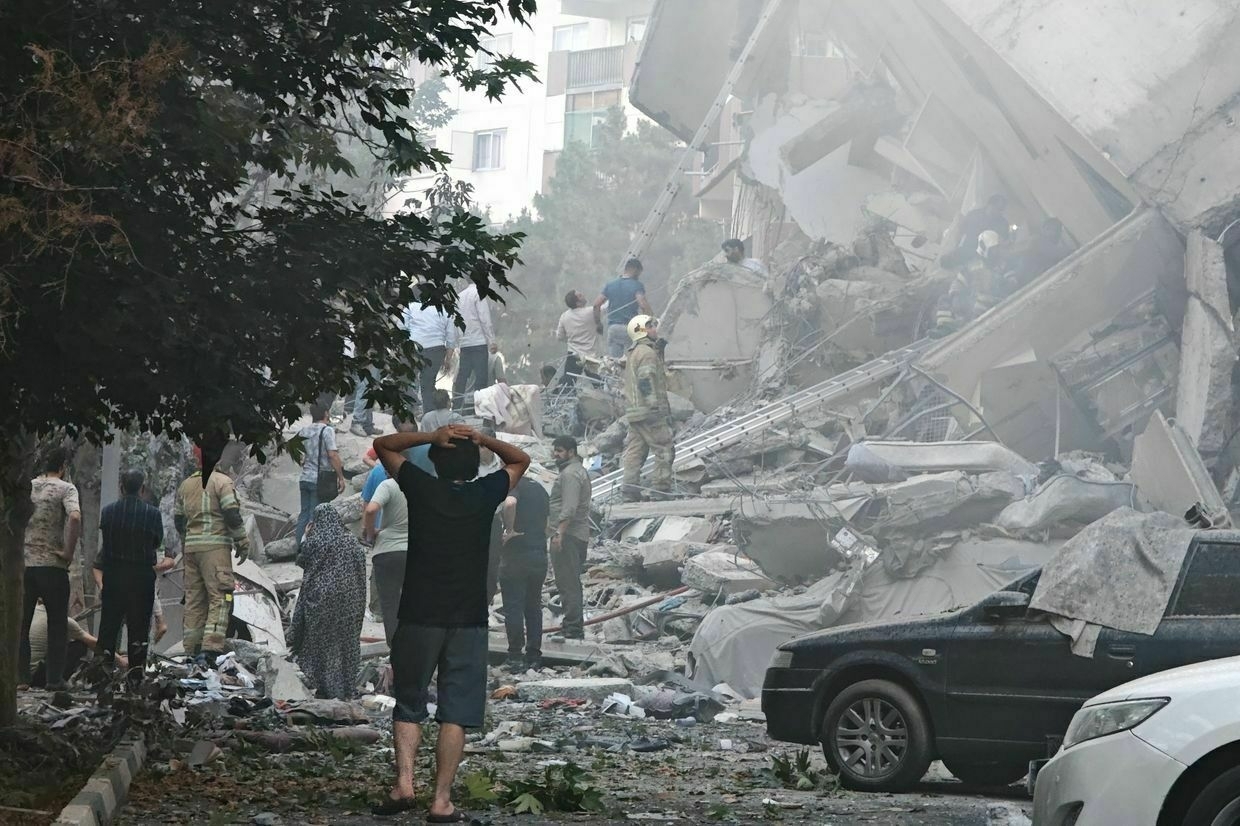
-
Investigation: How Russia steals Ukraine's trillion-dollar mineral wealth
Editor’s note: These investigations take a ton of time, resources and brainpower!
Investigations have always been the costliest part of journalism because we can’t just churn them out like commodity news in other organizations – we have to carefully probe, find connections and develop the story.
Help us to do just that! Upgrade today or help us with the tip jar!
For more than a decade, Russia has been destroying not only the lives of Ukrainians above ground, but also those beneath it.
One of the biggest victims of the war is the miners, who spend most of their time underground extracting the mineral wealth of Ukraine. According to Forbes, Ukraine boasts an estimated $14.8 trillion in mineral resources, 62 percent of which is in coal.
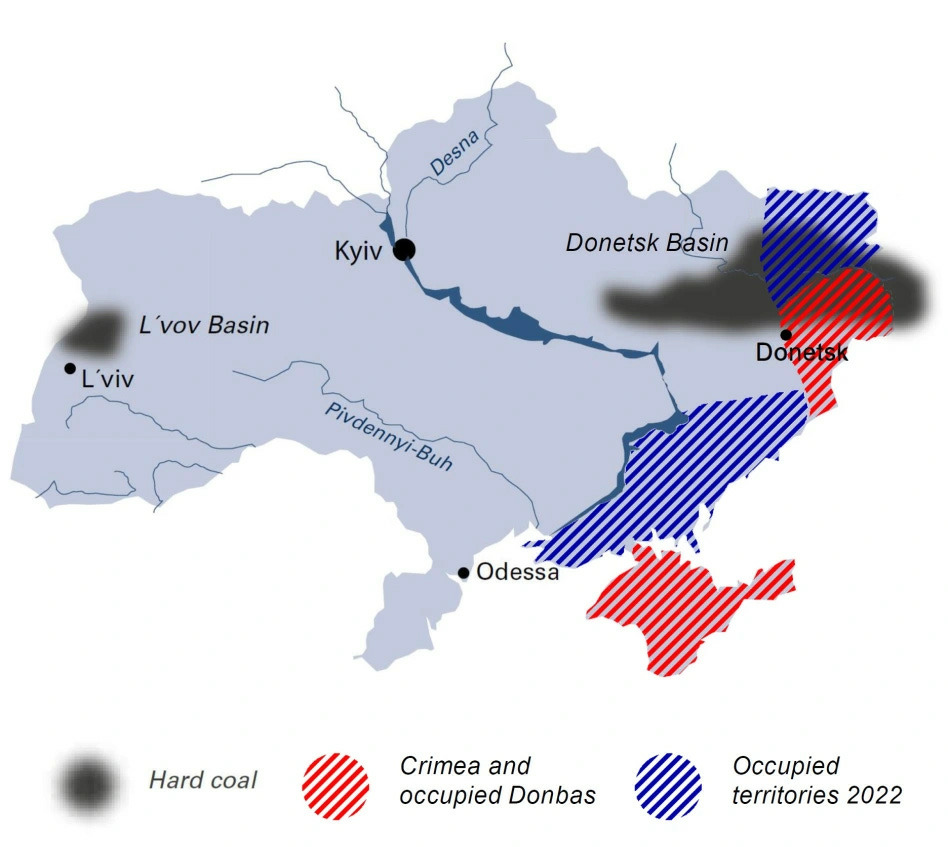
Ukrainian hard coal locations. Source: EURACOAL. Since 2014, Russia has consistently been taking over Ukrainian mines. As of 2022, Russia had seized 63 percent of Ukraine's coal deposits.
Russia has started illegally exporting coal for resale at some mines. This coal is produced, sold (often to foreign buyers), and then physically transported by Russian ships from the occupied port of Mariupol.
The Counteroffensive has established that Russia has used three vessels — ALFA 1, ALPHA HERMES and VIKTORIA V — to operate on the occupied territories and export coal illegally. Although Moscow is deliberately trying to hide the means of its crimes, in 2024-2025 Russia exported more than 60,000 tons of coal via those vessels.
This is not simply alleged looting — these are real, traceable logistics operations with identifiable ships.
The Counteroffensive also found that one of the biggest regional coal exporters – Don Coal Trade House, operating five mines in the occupied Luhansk region – systematically shipped coal from the occupied territories to Turkey in 2024. This occurred even though Turkey has formally condemned the Russian occupation.
This systematic campaign by Russia is a deliberate strategy of economic exploitation of occupied territories, which violates international law enshrined in The Hague Conventions.
Such actions – and ongoing impunity for Russia – incentivizes dictatorships to revive colonial practices, in which occupied territories become a raw material base for enriching far-off metropolitan areas.
Russia's illegal extraction of minerals
The Russian invasion in 2014 marked the beginning of the end for the mines in eastern Ukraine. Due to constant attacks and occupation of the Luhansk and Donetsk regions, only a small number of mines that were seized continued operations.
However, the Russian-aligned occupation administrations still considered it a net positive. After establishing a foothold in the region, they resumed coal production and export.
The Russians began to actively revive this sector in 2024. Officials announced the arrival of investors from Russia, and Putin personally promised to make every effort to boost the industry:
"We remember the great merits of the pioneer miners of Donbas and will do our best to revive coal mining, metallurgy and other industries here," he said.
By 2024, approximately 15 Ukrainian mines in the occupied Donetsk and Luhansk regions were leased to Russian companies. The two largest investors were Impex-Don and Don Coal Trade House.
Impex-Don manages four mines in the Donetsk region, where it is also registered. It is owned by Imperial, a company led by Viktor Gryzlov. He is a member of a family that controls the port in Rostov-on-Don, from where shipments are sent to countries in the Black Sea and Mediterranean basins.
Don Coal Trade House was founded in Rostov-on-Don in 2020 by Oleg Knyazev, who served as deputy governor of a Russian region from 2021 to February 2024.
These companies and other leaseholders promised to invest over $800 million in the seized facilities. Since 2024, the companies have been actively mining coal and selling it to other countries.
The Counteroffensive learned that Don Coal Trade House sold coal from the occupied territories abroad in 2024. In April-May 2024 alone, Don Coal Trade House shipped over 45,000 tons of coal to Turkey, with the total value close to $4 million, according to export-import database records. Turkey purchases this coal because, unlike the U.S. and the EU, it hasn't restricted coal trade with Russia or occupied Ukrainian territories.
The coal was shipped through a company registered in Hong Kong called Green Rabbit Limited. The company does not appear to have a website, registration date or publicly available contact information.
Despite its origin, this company has systematically purchased coal from Russian companies. It was also previously used by Russia to export wheat grown in the Donetsk region, records show.
The coal mined in Donbas was physically exported via the port of Mariupol, which is actively used to export looted minerals from occupied territories.
In April 2025, Russian vessels entered Mariupol to load coal, according to photos published by the head of the Center for the Study of the Occupation, Petro Andriushchenko.
The Counteroffensive compared photos of the vessel and identified it as the ship Alfa 1. In 2024-2025, Alfa 1 exported more than 20 thousand tons of coking coal, equal to more than two fully loaded vessels.

Photo of the Alfa 1 in the port of Mariupol in April 2025. Source: Head of Center for the Study of the Occupation Petro Andriushchenko. 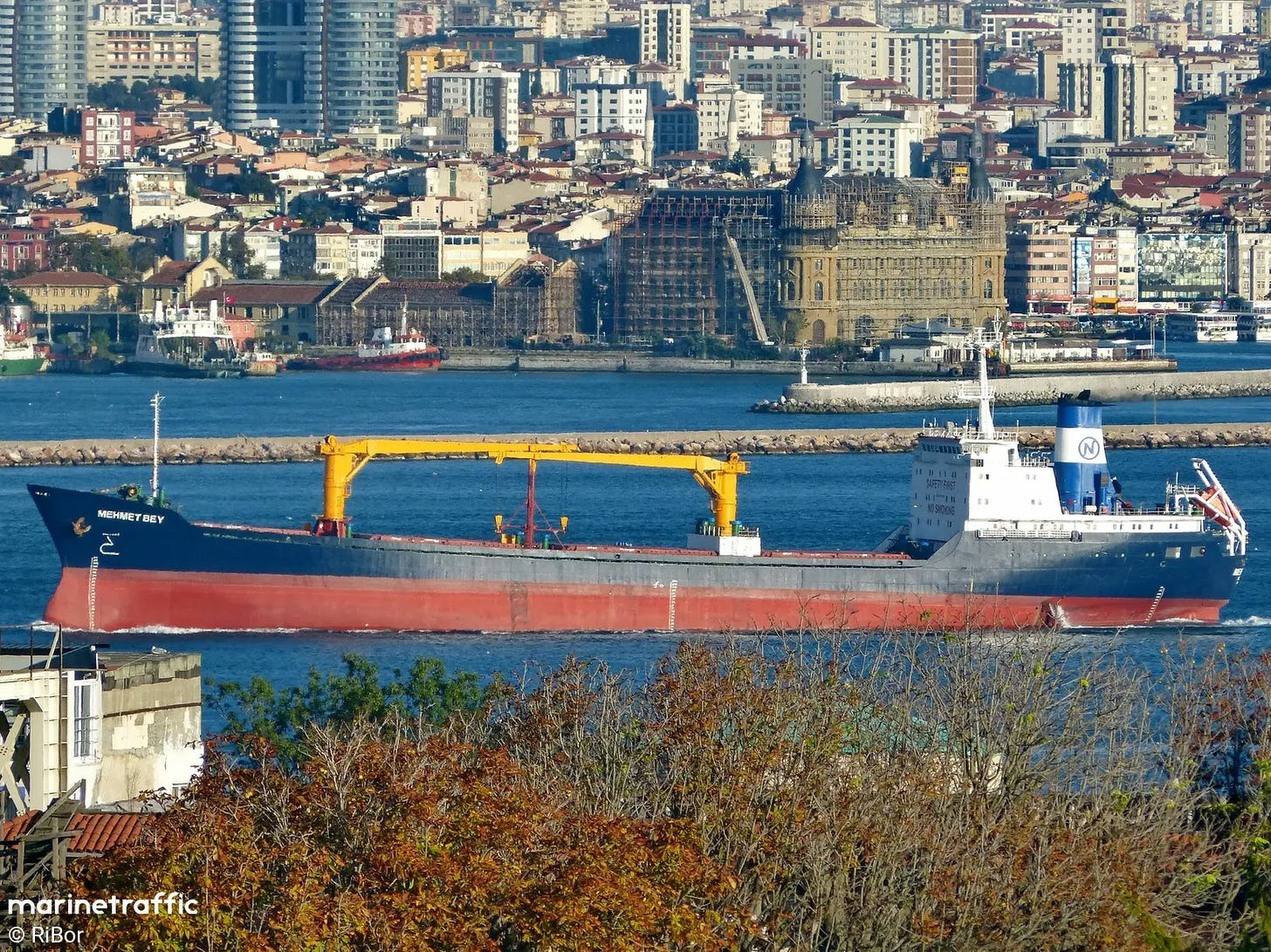
Photo of the Alfa 1 vessel from open sources. Source: MarineTraffic. At the same time, as seen in Andriushchenko's photos, two more Russian ships entered the port of Mariupol. The Counteroffensive identified them as ALPHA HERMES and VICTORIA V.
In 2024-2025 these two vessels exported more than 40,000 tons of coking coal from the port in Mariupol, according to Ukrainian intelligence.
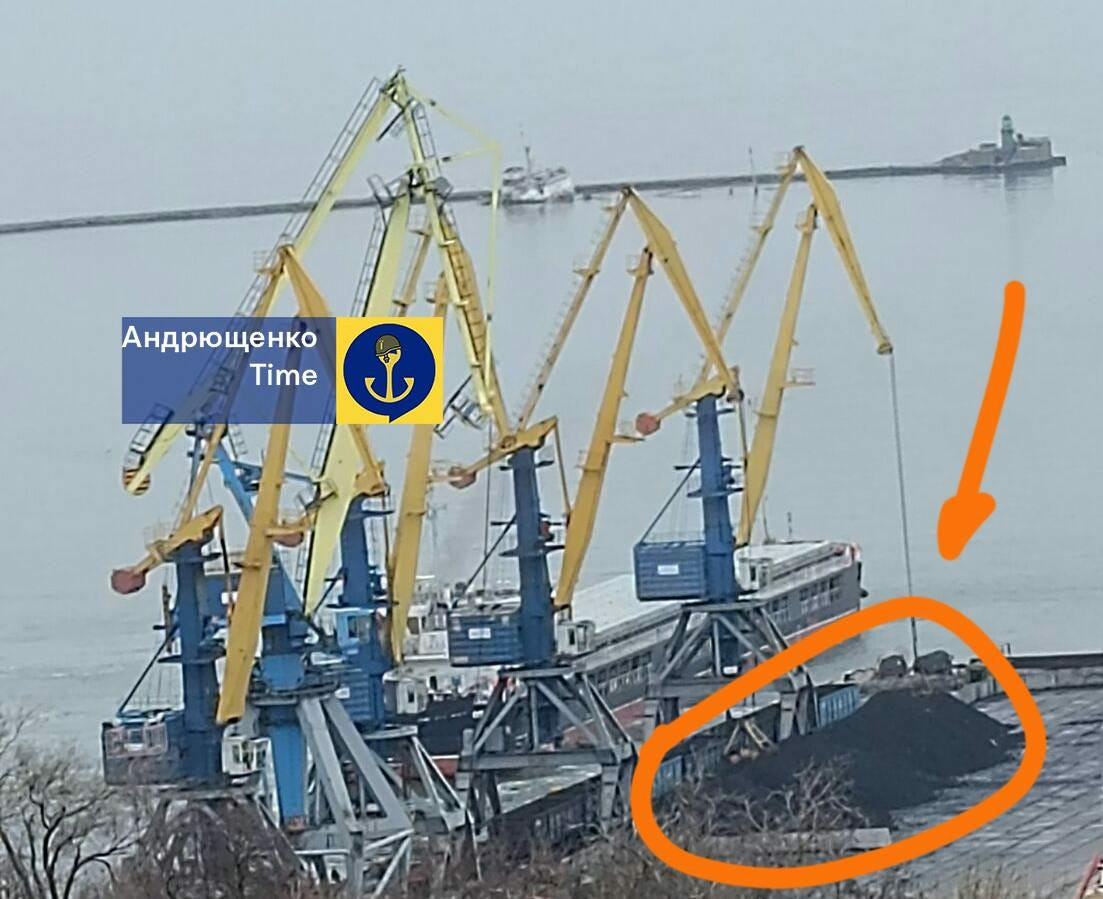
Photo of the ALPHA HERMES in the port of Mariupol in April 2025. Source: Head of Center for the Study of the Occupation Petro Andriushchenko. 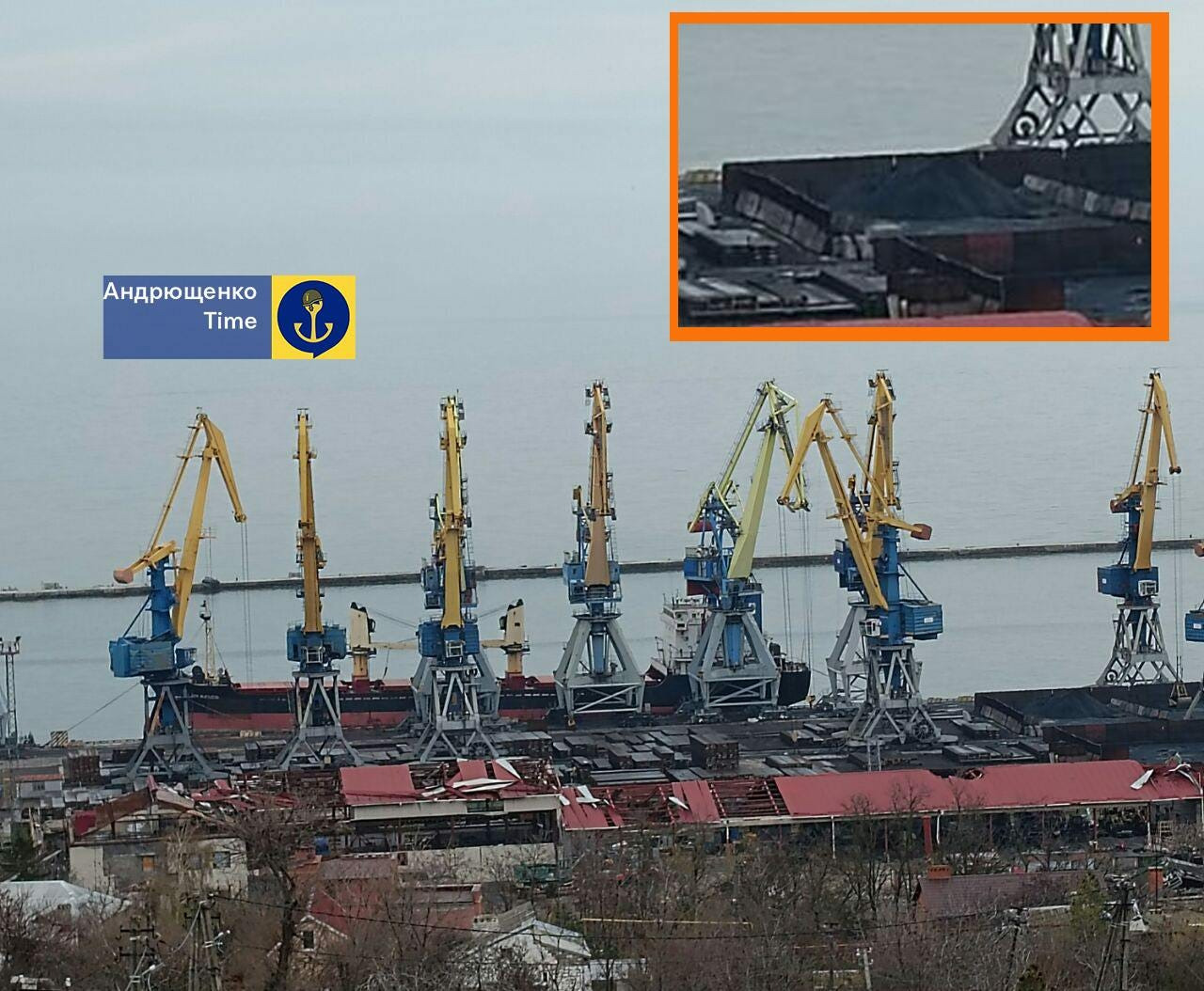
Photo of the VICTORIA V in the port of Mariupol in April 2025. Source: Head of Center for the Study of the Occupation Petro Andriushchenko. Vessel tracking sources don't show them entering Mariupol ports, as Russians deliberately disable ships' AIS (Automatic Identification System), making them invisible to outside trackers in a bid to hide the illegal presence of ships in territorial waters.
Both ALPHA HERMES and VICTORIA V belong to Russian companies, according to maritime records. In 2023, the United States imposed sanctions on ALPHA HERMES.
The export of Ukrainian coal isn't just regular commerce for a few businesses, but a deliberate Kremlin policy to quietly exploit Ukraine's mineral wealth.
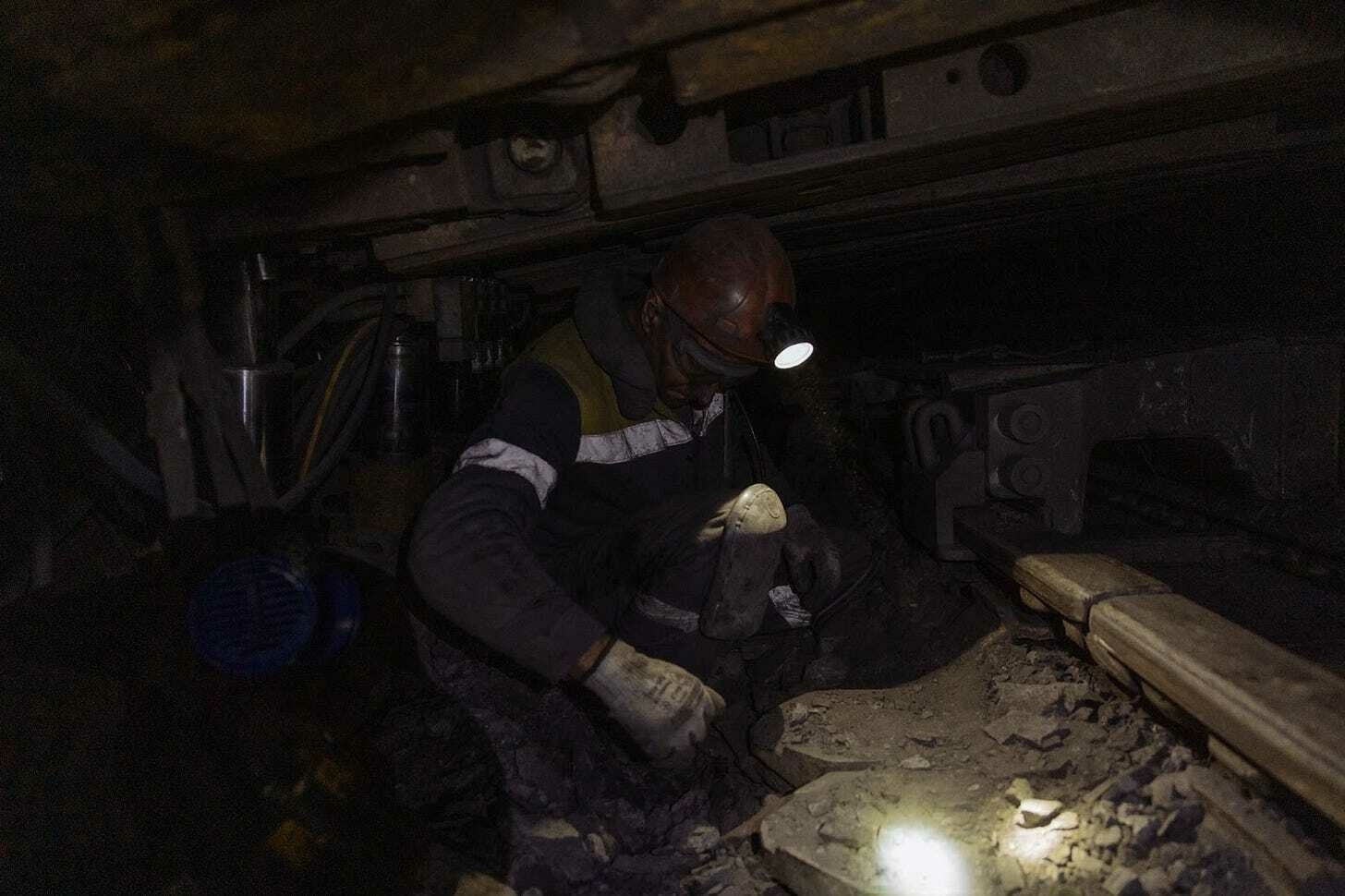
A miner works underground in a coal mine in the western part of Donbas, on October 11, 2024, amid the Russian invasion of Ukraine. Photo by ROMAN PILIPEY/AFP via Getty Images. How Russia abuse mine workers
Russia is attempting to conceal not only the illicit export of coal, but also the poor treatment of the miners who extract it.
When Russia occupied this part of eastern Ukraine more than 10 years ago, it promised prosperity and improved living conditions for Ukrainians. But in reality, dozens of mines in Donbas were closed or flooded, and theft appears to be a common practice.
One of the mines from which Russians produce coal is Komsomolets Donbassa. It was commissioned in the 1980s and named after the Soviet youth organization whose members built it.

Komsomolets Donbassa mine. Source: UNIAN. Impex-Don, which manages four mines in Donetsk, promised to invest in equipment modernization and increase the number of employees as part of an effort to extract more Ukrainian coal and profit from its sale.
Despite these lofty promises, however, the company showed a complete disregard for its own employees. By scouring feedback from miners on Russian-language social media sites, The Counteroffensive was able to piece together a disturbing portrait of how the miners have been treated.
Under Telegram posts published by Komsomolets Donbassa mine, which Impex-Don manages, employees complained about not being paid on time. Some miners even publicly refused to keep working.
The saga apparently went on for months, with the Komsomolets Donbassa mine promising on May 15 to pay out the remainder of the salary still owed to employees for March, and employees still reporting late payments after that on its Telegram page. Partial payments that were insufficient for even basic needs led some employees to threaten to strike over unpaid wages.
Beyond exploiting existing resources, Russia is preparing to mine other minerals in occupied Ukrainian territories, including manganese, which can be used to improve the quality of steel in armored vehicles.
How Russia is destroying Ukraine's coal industry
By the end of October 2024, Ukraine controlled only 24 mines out of 145 that existed in 2014, according to Mykhailo Volynets, a senior miners' union official.
The rest are under Russian occupation.
Numerous miners told The Counteroffensive that Russia was looting Ukrainian mining equipment. Volynko, the head of the Independent Trade Union of Miners of Donbas, said the Russians set up four smelters on the border with the Rostov region, to which they brought stolen equipment and melted it down.
The Russian military itself aided in the transport and looting of equipment, Volynko said.
Russia is thus delivering a two-pronged blow: physically destroying Ukrainian mines and illegally looting the valuable infrastructure, and stealing while simultaneously selling abroad mineral resources that rightfully belong to Ukraine.
With an eye on ever-increasing extraction, Russia is demonstrating its true aim: prolonging the war to expand its control over profitable territories it can plunder.
In this time of great uncertainty — and unstable American support — it means that the situation on the ground is very dangerous. Your contributions help us get the body armor, medical gear, and supplies we need to stay safe.
Show your support by contributing to our tip jar - funds go towards keeping us safe and ensuring our work continues.
NEWS OF THE DAY:
TRUMP’S CALL FOR RUSSIA TO REJOIN AT G7 SUMMIT AS IT STRIKES KYIV:
Despite a fresh Russian attack on Kyiv, Donald Trump repeated his call to readmit Russia to the G7, calling its 2014 expulsion “a big mistake.” The U.S. President also refused to support additional sanctions unless Europe acts first.
Trump appeared to justify Russia’s 2022 full-scale invasion of Ukraine by linking it to Moscow’s removal from the G8. While Trump praises Putin and his ‘efforts’ for peace, Putin “make[s] the G7 leaders look weak,” Ukrainian foreign minister Sybiha said.
UKRAINE OPENS LITHIUM DEPOSITS TO INVESTORS UNDER U.S.-UKRAINE MINERAL DEAL: On Monday, the Ukrainian government approved access for private companies to develop one of its largest state-owned lithium deposits – the Dobra site in the Kirovohrad region.
Kyiv is preparing bidding recommendations for potential bidders, including U.S.-backed TechMet and Trump’s friend Ronald S. Lauder. The revenues from the extraction would go to a joint U.S.-Ukraine investment fund and later be reinvested in Ukraine’s economy, giving a portion to Washington.
This is the first project and a sign of the implementation of the U.S.-Ukraine mineral deal, signed on May 1, 2025.
DENMARK DEPLOYS ROBOTIC SAILBOATS TO SECURE BALTIC, NORTH SEAS: The Danish military is using uncrewed sailboats to monitor the increasingly tense waters of the Baltic and North Seas. The vessels can detect activity up to 20–30 miles above and below the surface, “going to places ... where we previously didn’t have eyes and ears,” Richard Jenkins, Saildrone founder and CEO, said.
The precaution comes amid growing security concerns, including alleged Russian sabotage, the destruction of at least 11 undersea cables since 2023, increased activity by Russia’s oil shadow fleet, and renewed U.S. interest in the Arctic, including Donald Trump’s eyeing of Greenland.
THE CAT OF CONFLICT:
Today’s cat of conflict is very famous among students of Veronika and Zoriana’s university. Seen on the car, he is just a chill guy.
Stay safe out there.
Best,
Veronika -
Hours after deadly Russian attack on Kyiv, Trump was unaware it had even happened
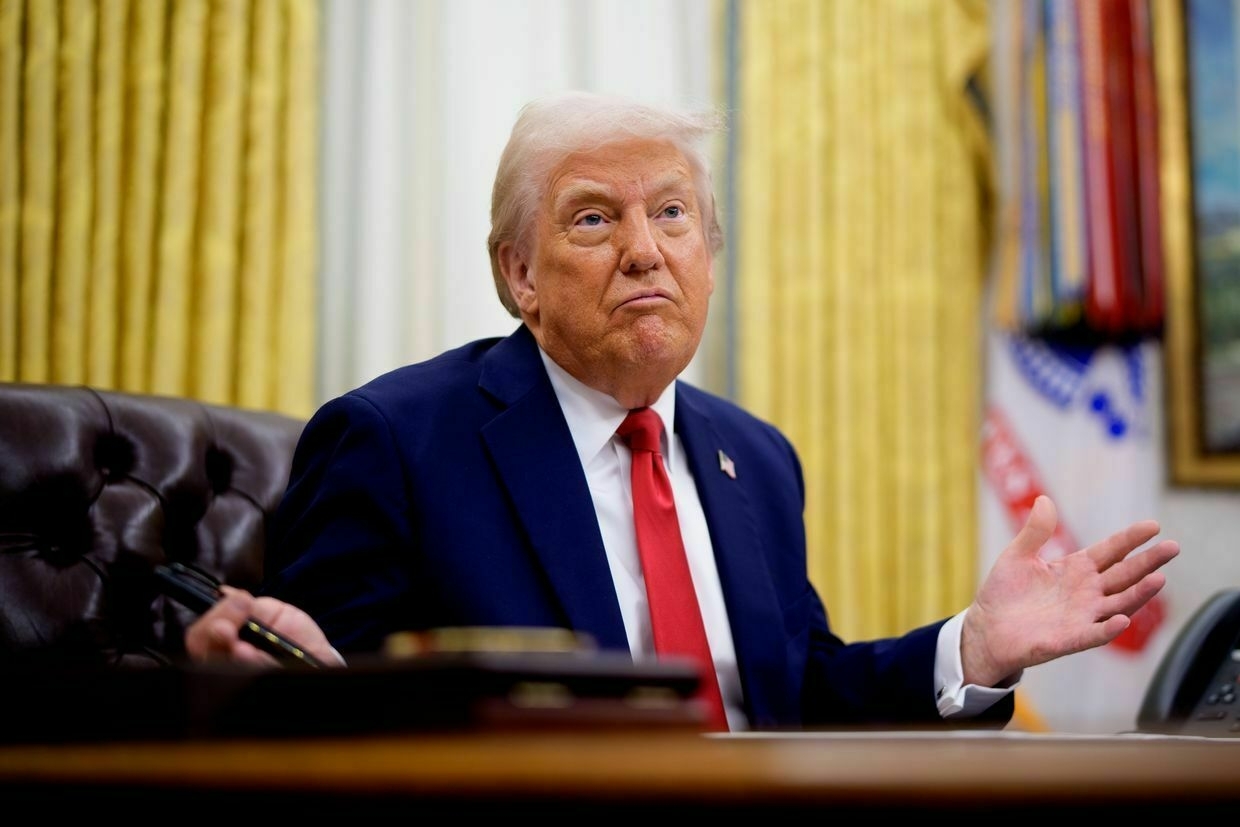
U.S. President Donald Trump was unaware of a deadly Russian drone and missile strike on Kyiv that killed at least 15 people and injured over 120, when asked about the attack by reporters on June 17.
On board Air Force One as he flew back from Canada, Trump was questioned about the attack by a reporter. A clock in the plane shows it was shortly after 1:30 a.m. Washington time, 8:30 a.m. Kyiv time, two-and-a-half hours after the nine-hour-long attack ended, and after reports of casualties had been made public.
When asked for his reaction, he responded: “When was that? When?"
The reporter then says the “Russian drone attack on Kyiv” occurred “very recently."
“Just now? You mean as I’m walking back to see you, that’s when it took place? Sounds like it. I’ll have to look at it,” Trump replies.
At the time of writing some seven hours later, the White House has still yet to comment on the attack.
The comments came a few hours after Ukraine endured the largest aerial attack on Kyiv in 2025. According to Ukraine’s Air Force, Russia launched 472 aerial weapons overnight, including nearly 280 Shahed-type attack drones, 16 Kh-101 cruise missiles, two Kinzhal ballistic missiles, and other guided munitions, primarily targeting the capital.
Air defenses downed 428 of them, including 239 Shaheds and 15 cruise missiles, while at least one Kinzhal was intercepted.
The almost nine-hour assault killed 15 people and injured 124, according to local authorities. A nine-story residential building in the Solomianskyi district was struck and partially collapsed, killing residents.
Kyiv Mayor Vitali Klitschko said cluster munitions were discovered in the city, a type of weapon banned under international conventions due to their indiscriminate nature and long-term threat to civilians. June 18 has been declared an official day of mourning in Kyiv.
President Volodymyr Zelensky called the strike “one of the most horrifying attacks on Kyiv” and urged international partners to respond decisively. Foreign Minister Andrii Sybiha said the timing of the strike, as G7 leaders meet, was a deliberate message from the Kremlin.
Civilian sites hit in the capital include kindergartens, residential areas, a university dormitory, and production facilities. Ukrainian manufacturer Fahrenheit, which produces military and civilian clothing, announced its factory was damaged and all orders suspended indefinitely. Ukrposhta, the national postal service, lost two branches. A Ukrainian Railways train carrying grain was also struck, temporarily halting traffic.
Russia has escalated attacks on Ukrainian cities in recent weeks, including mass strikes on energy infrastructure and residential areas.
US group designed to pressure Russia into peace in Ukraine disbanded by Trump administration, Reuters reports“It lost steam toward the end because the president wasn’t there,” an official told Reuters.The Kyiv IndependentChris York
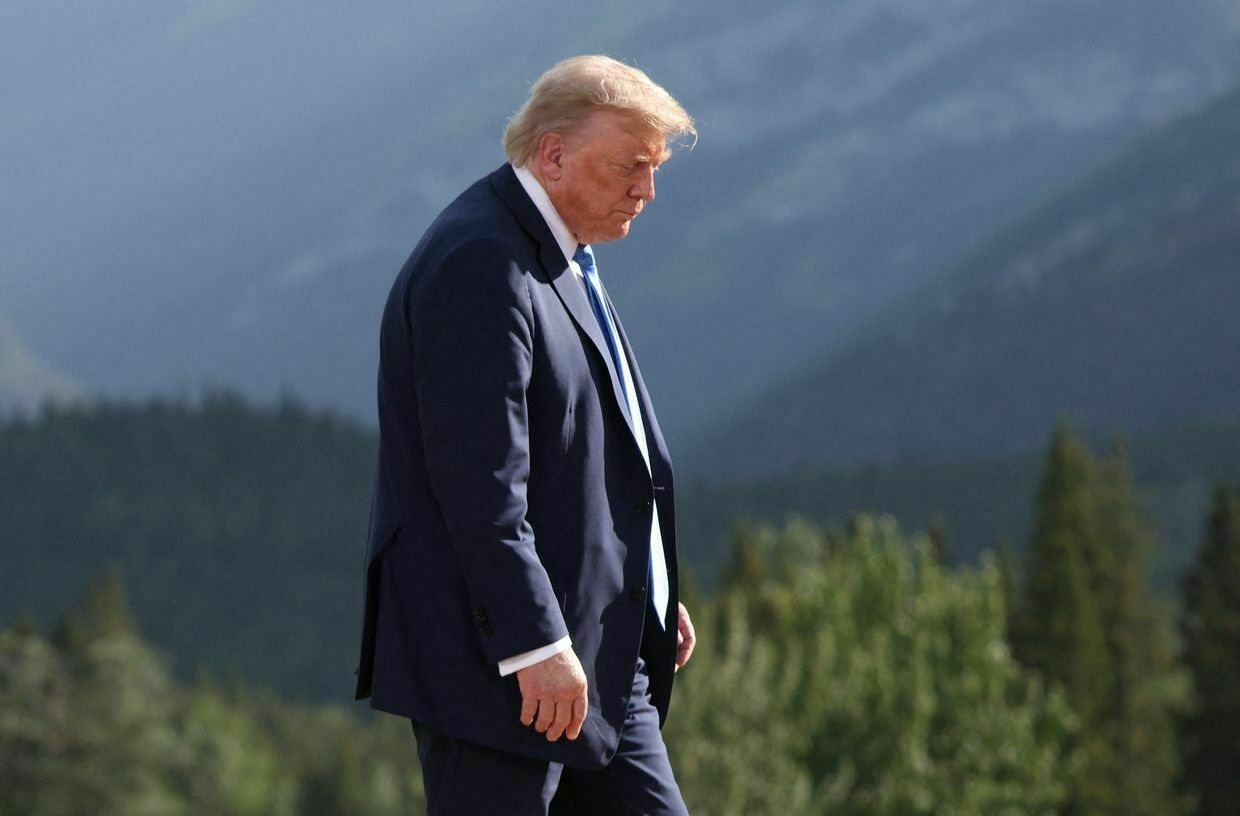
-
US group designed to pressure Russia into peace in Ukraine disbanded by Trump administration, Reuters reports
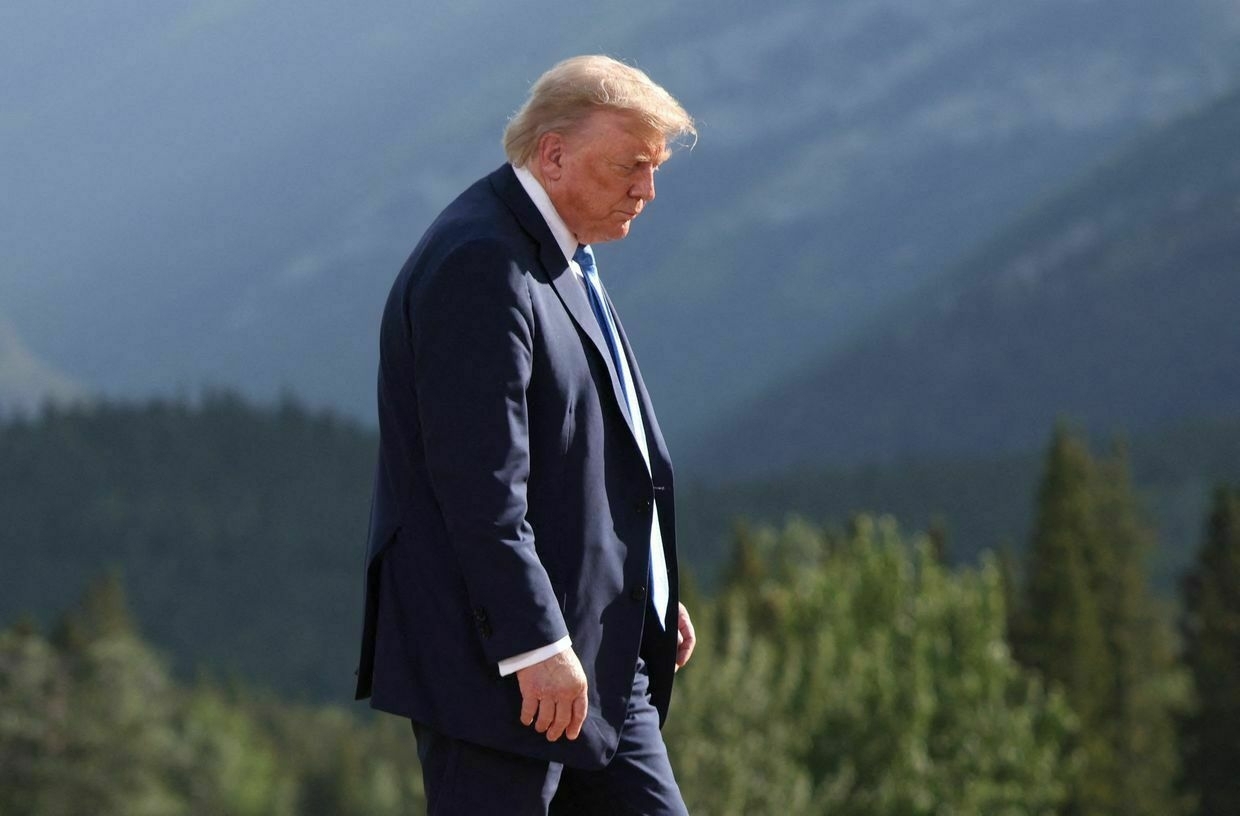
A U.S. government working group that formulated strategies for pressuring Russia into peace talks and ending the war in Ukraine has been disbanded by the White House, Reuters reported on June 17.
Officials cited by the news outlet said it was established this spring but became increasingly irrelevant as it became clear U.S. President Donald Trump wasn’t willing to apply any concrete pressure on Moscow during peace talks.
“It lost steam toward the end because the president wasn’t there. Instead of doing more, maybe he wanted to do less,” an anonymous official said.
As Ukraine and the U.S. continue to push for an unconditional ceasefire, Russia has maintained maximalist demands and rejected all such proposals.
At the same time it has escalated attacks on Ukrainian civilians, killing at least 15 people and injuring scores of others in the latest attack on Kyiv overnight on June 17.
Trump has expressed frustration with Moscow’s intransigence and growing violence but has yet to impose any new sanctions on Russia.
On June 16 while speaking in Canada ahead of a G7 summit, Trump said barring Russia from the G8 for its invasion of Ukraine in 2017 had been a “mistake."
According to Reuters, the working group, staffed by officials from the National Security Council, State Department, Treasury Department, the Pentagon and intelligence community, was decimated in a purge of personnel around three weeks ago.
Trump pledged to “stop the wars” when he was elected U.S. president for the second time but after just five months in office, the world is a far more violent place.
As well as Russia escalating attacks on Ukraine, Israel and Iran are now locked in a conflict that further threatens stability in the Middle East.
‘A brutal strike’ — Massive Russian missile and drone attack hits Kyiv, killing 15, injuring at least 114Russian drones and ballistic missiles targeted the capital overnight, killing 15 people and injuring at least 114, local authorities reported. Damage to civilian infrastructure has also been reported throughout the city.The Kyiv IndependentOlena Goncharova
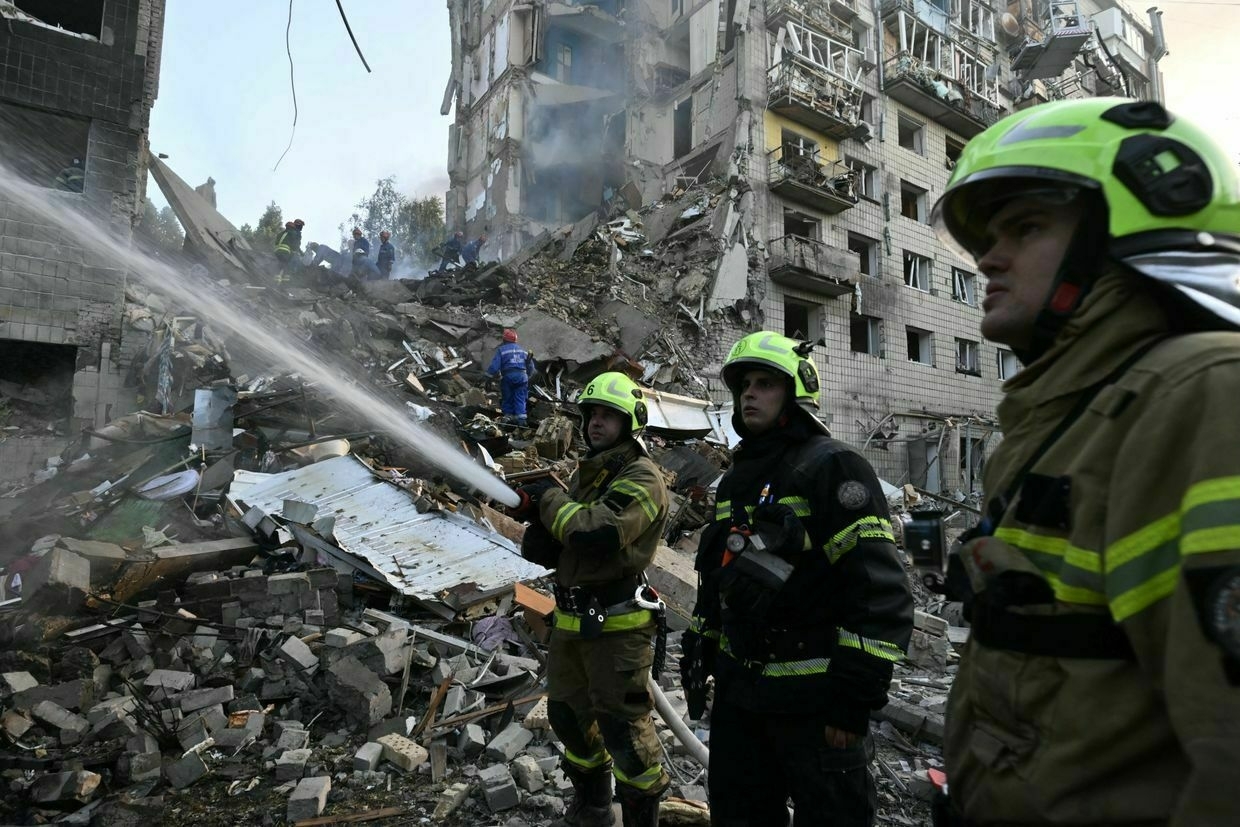
-
Trump to depart G7 summit ahead of June 17 meeting with Zelensky
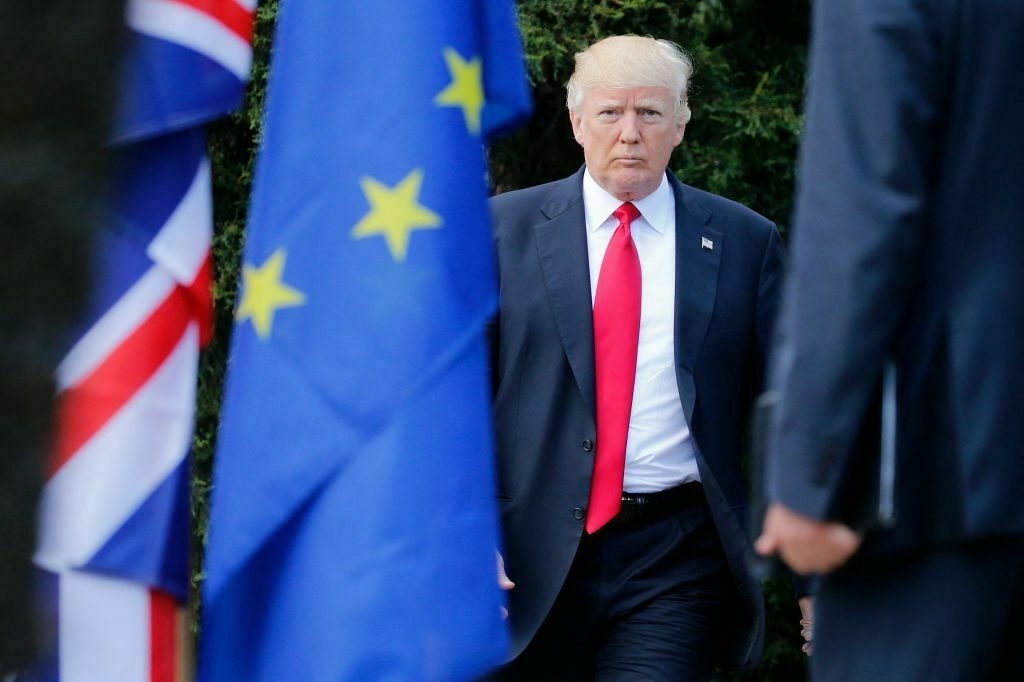
Editor’s note: This is a breaking story and is being updated.
U.S. President Donald Trump is set to depart the G7 Leaders' Summit late on June 16, ahead of an anticipated high-stakes meeting with President Volodymyr Zelensky on June 17.
White House Press Secretary Karoline Leavitt said that the depature comes as Trump is set to attend to “important matters."
It was not immediately clear as to whether Trump will return for the final day of the summit on June 17.
Zelensky was expected to meet with Trump on the sidelines of the G7 summit on June 17, marking their third in-person meeting since the American president took office in January. The proposed meeting may serve as an inflection point for Zelensky as pressure mounts on Trump from Western allies.
“Both teams are working to ensure we meet,” Zelensky said on June 14 during a closed-door briefing attended by the Kyiv Independent.
High stakes, low resolve: What Ukraine can expect from the upcoming G7 summitAs world leaders prepare to gather in the remote community of Kananaskis in Alberta, Canada for the Group of Seven (G7) Leaders’ Summit on June 15-17, Russia’s war in Ukraine once again holds center stage — but views on how to address the three-year conflict diverge sharply. In the five monthsThe Kyiv IndependentDmytro Basmat
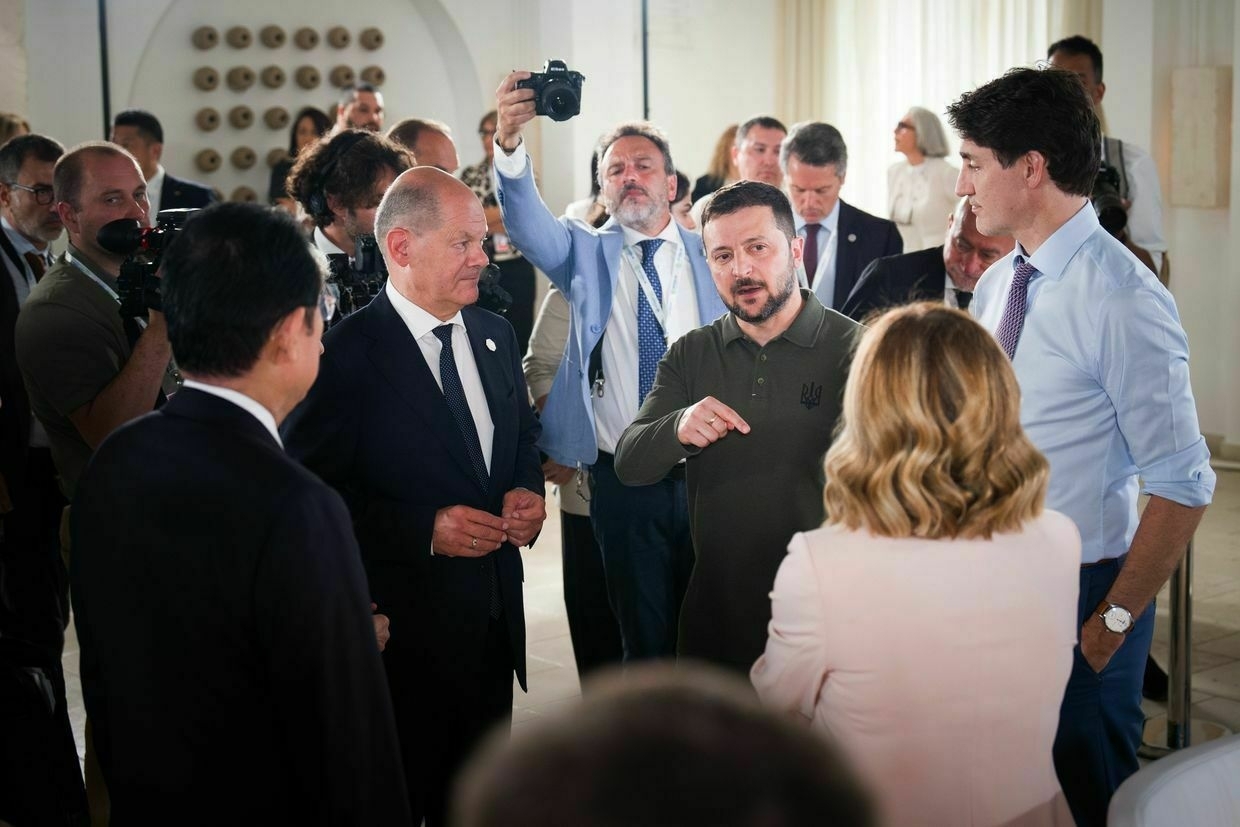
-
Ukraine moves forward on lithium mining under US minerals deal, NYT reports
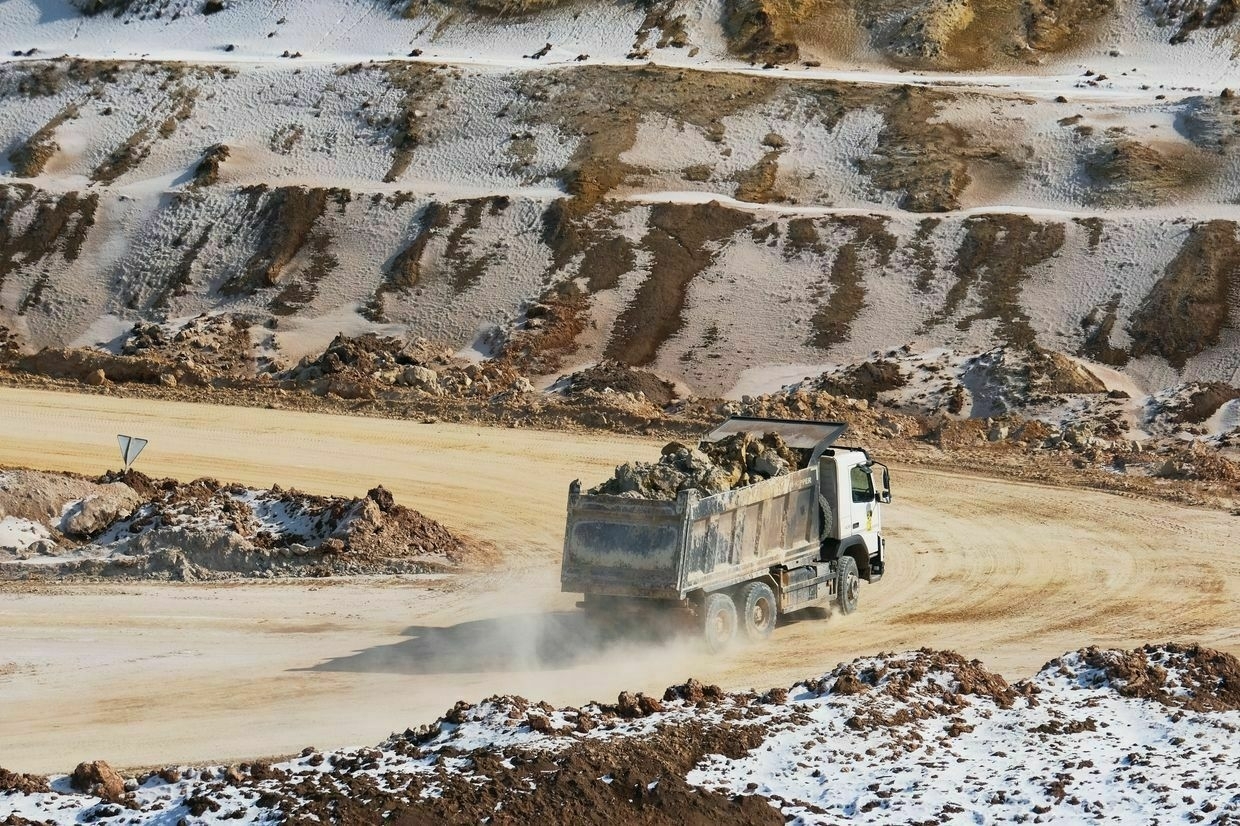
More than a month after Ukraine signed a landmark agreement granting the United States a stake in its mineral reserves, Kyiv has approved initial steps to open one of its largest lithium deposits to private investors, the New York Times (NYT) reported, citing two government officials.
On June 16, the Ukrainian government agreed to begin drafting recommendations for a bidding process to develop the Dobra lithium field in central Ukraine. According to the officials, who spoke to NYT on condition of anonymity, this would be the first project advanced under the U.S.-Ukraine minerals deal.
The Dobra lithium ore site is located in the Novoukrainskyi district of Kirovohrad Oblast, rougly 300 kilometers southeast of Kyiv.
The deal, signed by President Volodymyr Zelensky on May 12, is aimed at deepening economic ties, boosting Ukraine’s reconstruction, and positioning the country as a supplier of strategic resources to the U.S.
Among the likely bidders for the Dobra field is a consortium including TechMet, an energy investment firm partly owned by the U.S. government, and billionaire Ronald S. Lauder, a close associate of the U.S. President Donald Trump. The group has long expressed interest in the Dobra site and encouraged Zelensky to open it to bids last year.
Under the broader agreement, half of the revenues from mineral extraction would go to a joint U.S.-Ukraine investment fund. While the Ukrainian government would reinvest its share into the domestic economy, the United States would claim a portion of the profits — a structure Mr. Trump has framed as partial repayment for U.S. assistance to Ukraine.
TechMet CEO Brian Menell said investors were pushing for production-sharing agreements, which offer long-term stability and tax incentives. Monday’s step toward opening the Dobra field is based on such an arrangement, according to the outlet.
Ukraine war latest: Russia ramps up its summer offensive in several directions, seeks to encircle KostiantynivkaKey developments on June 16: * Russia ramps up its summer offensive in several directions, Ukraine’s military says * Ukraine receives 1,245 bodies of fallen soldiers and citizens, concluding Istanbul repatriation deal * ‘Russians lie about everything’ — Ukraine hits out at Kremlin claims after yet another drone strike on Kyiv * Russia toThe Kyiv IndependentThe Kyiv Independent news desk
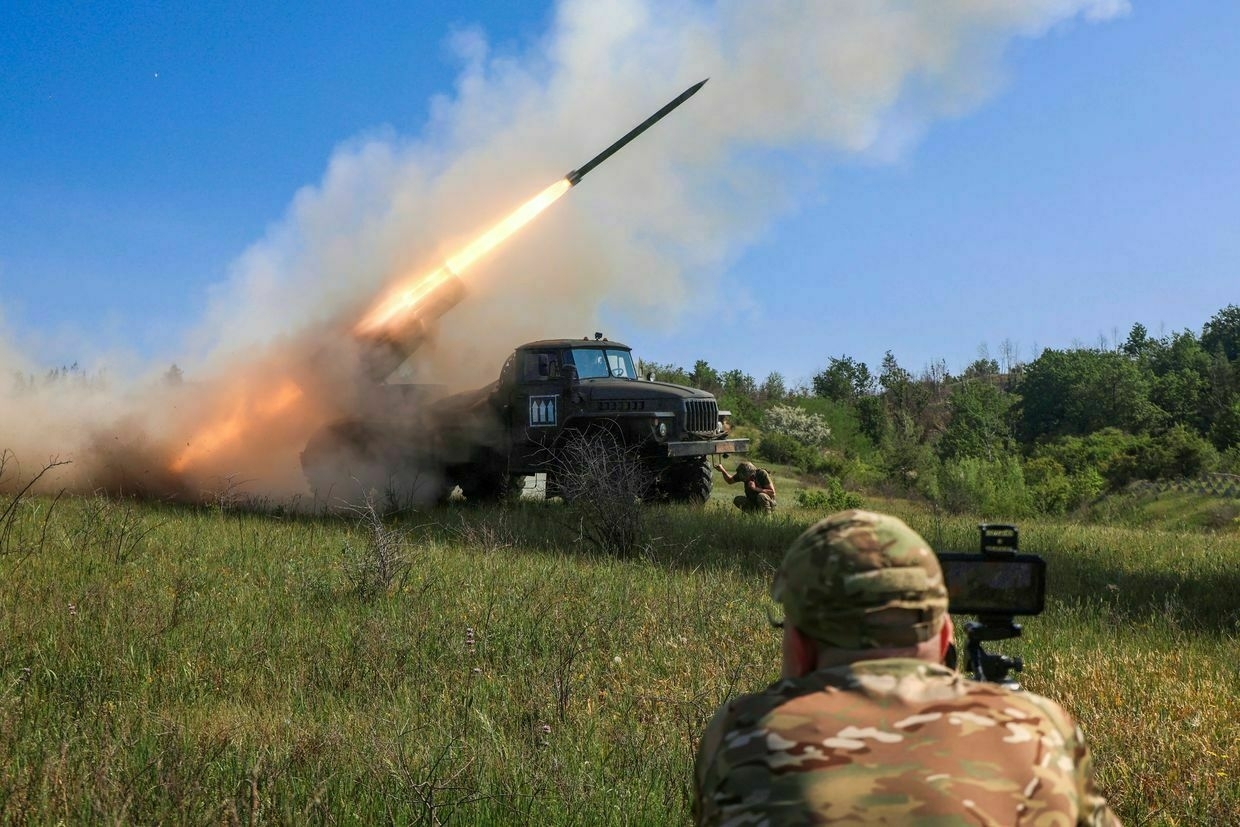
-
US cancels talks with Russia on restoring diplomatic relations, Moscow claims
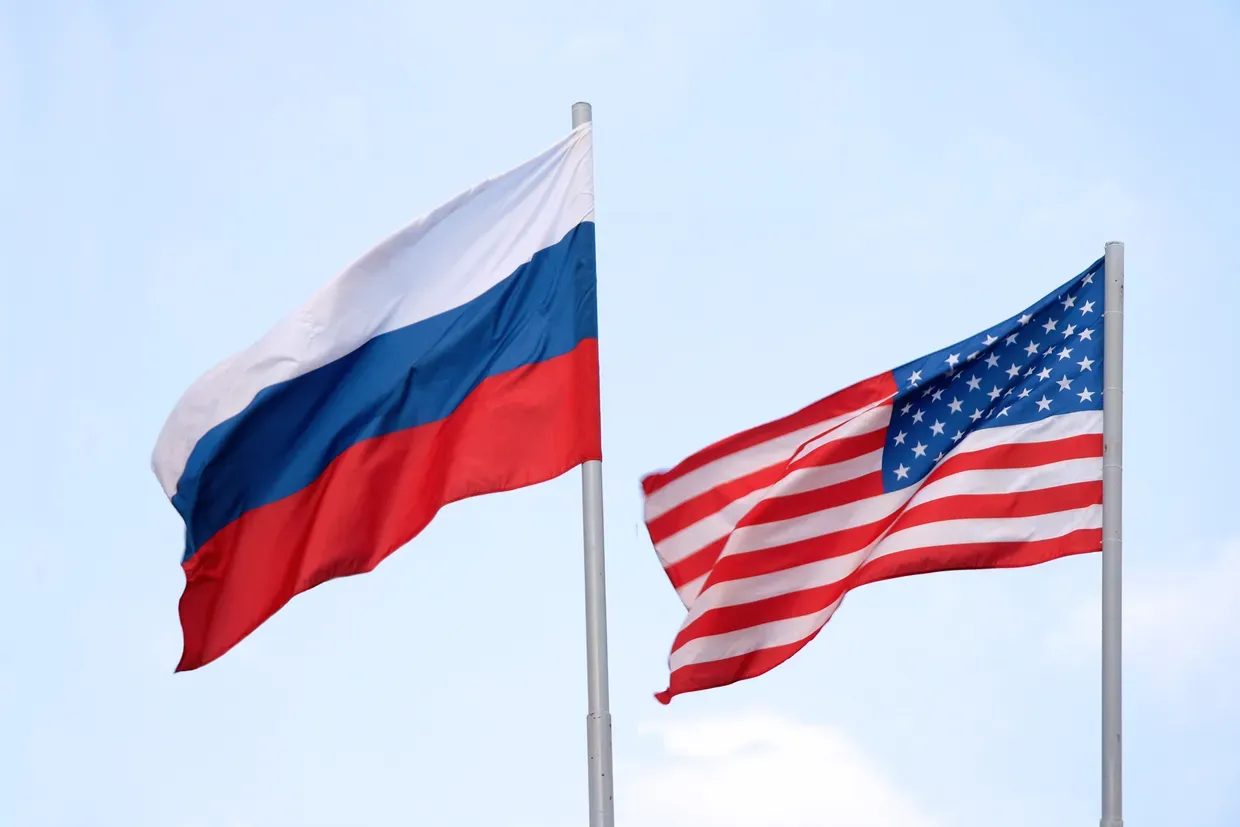
The U.S. has canceled the next round of talks with Russia on restoring diplomatic relations, Russian Foreign Ministry spokesperson Maria Zakharova claimed on June 16.
Zakharova’s statement came days after Russian Ambassador to the U.S. Alexander Darchiev announced that delegations from both countries were expected to meet in Moscow in the near future.
The planned talks were supposed to be part of discussions between the U.S. and Russia that focused on peace efforts in Ukraine and the resumption of bilateral ties.
According to Zakharova, the upcoming round was intended to “eliminate irritants” and help normalize the operations of both nations' diplomatic missions.
“We hope that the pause taken by them (the U.S.) will not become too long,” the Russian spokesperson said.
Washington is yet to comment on Zakharova’s claims.
The first talks since the start of Russia’s full-scale war against Ukraine took place on Feb. 18 in Riyadh, where the two sides discussed bilateral relations, a potential presidential meeting, and ways on ending Russia’s war against Ukraine.
Darchiev said that during the recent round of talks on April 10 in Istanbul, the two sides agreed to move future consultations to their respective capitals.
The U.S. State Department described the April 10 talks in Istanbul as having a “constructive approach.” The closed-door consultations lasted about six hours and focused on ensuring stable banking services for diplomatic missions. Both delegations exchanged notes on the issue and agreed to continue discussions.
The diplomatic push continues amid efforts by U.S. President Donald Trump to broker a ceasefire and peace agreement in Ukraine. Trump suggested on June 5 that it may be better to let the conflict continue for now, likening the war to a fight between children that should not be interrupted too quickly.
Kyiv and its allies remain skeptical of Trump’s approach toward peace efforts.
President Volodymyr Zelensky has repeatedly called for stronger U.S. action and warned that “America’s silence, and the silence of others around the world, only encourages (Russian President Vladimir) Putin."
Russia to demand Ukraine destroy Western weapons to end war, senior Kremlin official saysThe remarks reflect Moscow’s growing list of maximalist demands presented in its so-called “peace memorandum.”The Kyiv IndependentTim Zadorozhnyy
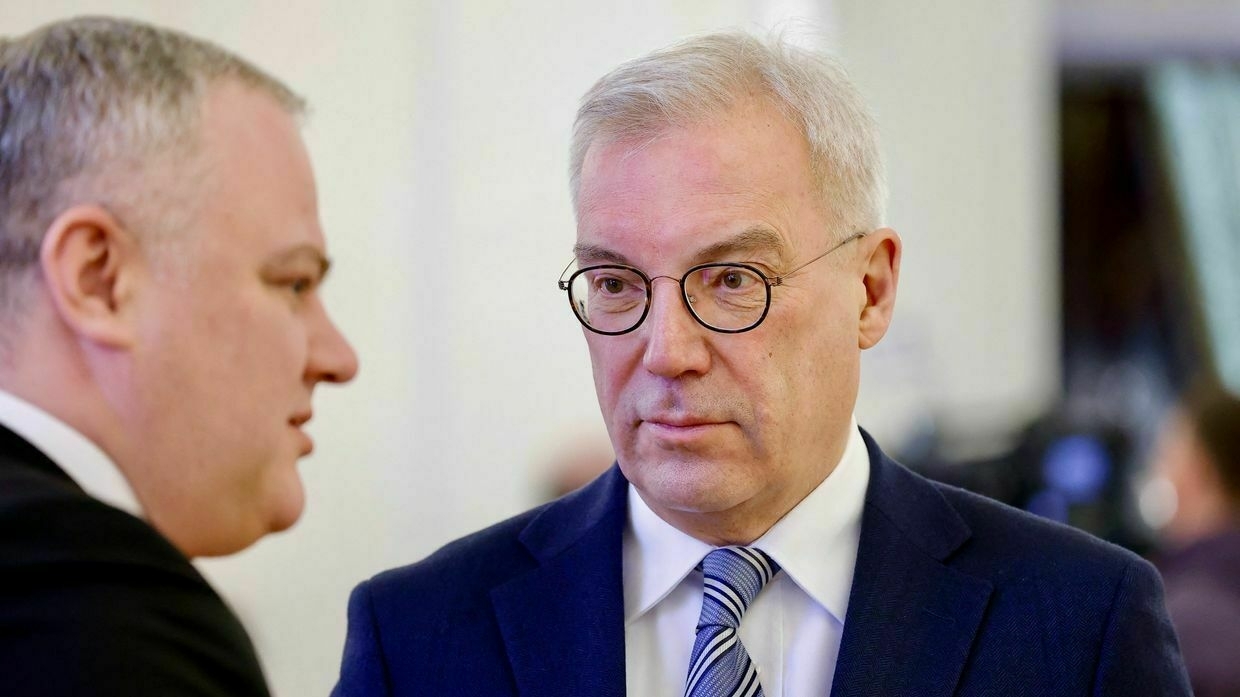
-
Iran claims new ballistic missile tactic allowed breach of Israeli air defenses
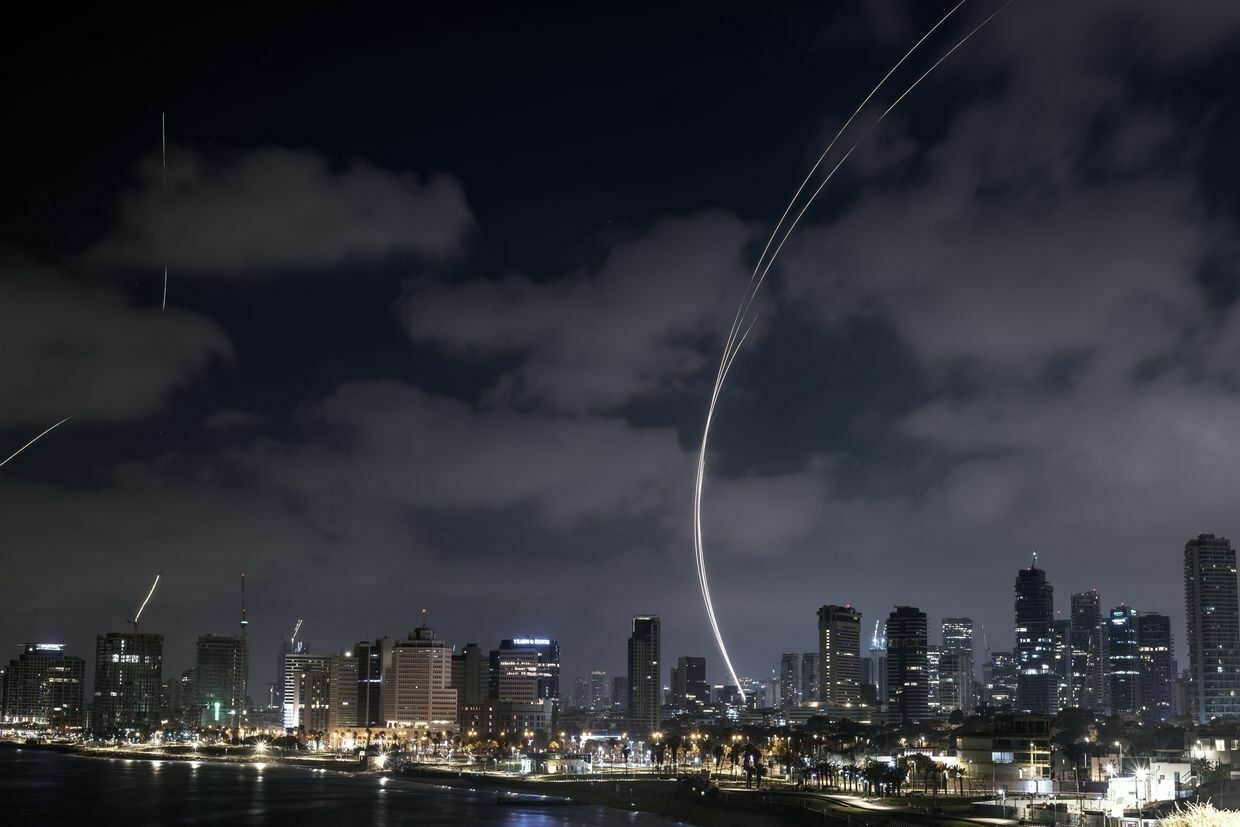
Iran’s Islamic Revolutionary Guard Corps (IRGC) said it used a new method to breach Israel’s air defenses during a missile attack early on June 16, that killed at least eight people, Reuters reports.
According to the IRGC, Iranian missiles were guided in a way that caused Israeli interceptor missiles to target each other, confusing Israel’s integrated defense system, which includes Iron Dome, David’s Sling, and Arrow platforms.
It did not provide any further details.
Ballistic missiles are rocket-powered and are launched high into the atmosphere before arcing back down onto their target.
They’re only guided during the initial stages of launch, so they can be less accurate than cruise missiles, but have the advantage of reaching incredibly high speeds – sometimes more than 3,200 kilometers per hour – as they approach their targets.
Israel’s Defense Forces (IDF) reported for the first time that its systems had an 80-90% success rate intercepting Iran’s ballistic missiles, while roughly 5-10% penetrated the shield and struck populated areas, according to the Jerusalem Post.
The strike came three days after Israel launched a sweeping aerial campaign against Iranian nuclear and military facilities, killing several high-ranking officials, including IRGC aerospace commander Amir Ali Hajizadeh.
Kyiv has expressed support for Israel, describing Iran as a “source of instability in the region and beyond,” citing Tehran’s extensive military cooperation with Russia.
Since 2022, Iran has supplied Moscow with thousands of Shahed kamikaze drones and short-range ballistic missiles for use against Ukraine. Russia, for its part, has condemned the Israeli air strikes on Iran as “unprovoked aggression” and backed calls for restraint.
Israel is home to one of the largest Russian-speaking populations outside the former Soviet Union, with approximately 1 million people — or 15% of the total population — identifying as Russian-speaking. Israel has historically maintained relatively friendly ties with Russia.
U.S. President Donald Trump said on June 15 that he is considering Russian President Vladimir Putin as a possible mediator between Israel and Iran.
As of June 16, Iran’s Health Ministry claims 224 people have been killed since the Israeli air campaign began on June 13 — 90% of them civilians, according to Tehran. Israel has not confirmed the civilian casualty figure, and independent verification remains difficult.
Russia to demand Ukraine destroy Western weapons to end war, senior Kremlin official saysThe remarks reflect Moscow’s growing list of maximalist demands presented in its so-called “peace memorandum.”The Kyiv IndependentTim Zadorozhnyy
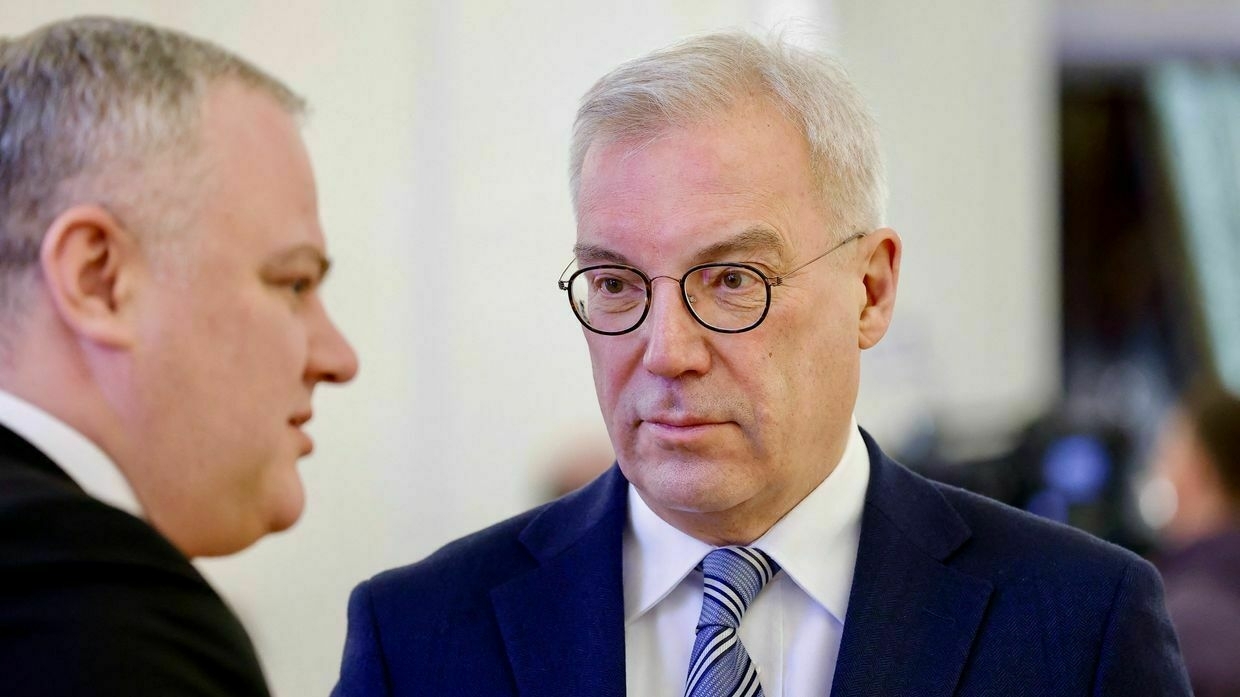
-
EU leaders call for tougher sanctions on Russia at G7 summit

The Group of Seven (G7) nations need to impose harsher sanctions on Moscow in order to secure a ceasefire in the war against Ukraine, European Commission President Ursula von der Leyen and European Council President Antonio Costa said at the start of the G7 summit in Canada.
The G7 Leaders Summit kicked off on June 15 in Kananaskis, Canada, with official talks held June 16-17. While Ukraine hopes to win economic support and unified pressure against Russia, the rapidly escalating conflict between Israel and Iran may dominate this year’s conference.
“To achieve peaceful strength we must put more pressure on Russia to secure a real ceasefire, to bring Russia to the negotiating table, and to end this war. Sanctions are critical to that end,” von der Leyen said at a press briefing on June 15 attended by a Kyiv Independent journalist.
Economic sanctions have been an effective intervention since the start of Russia’s full-scale invasion, von der Leyen said. She noted that combined G7 and European Union sanctions have decreased Russian oil and gas revenues by nearly 80% since February 2022.
"(T)he sanctions are working, and we will do more," she said.
Von der Leyen urged the G7 to adapt the economic restrictions proposed in the EU’s 18th sanctions package, announced on June 10. The new measures target Russia’s energy and banking sectors and propose a further reduction in the oil price cap, bringing the cap down from $60 to $45 per barrel.
“I will invite all G7 partners to join us in this endeavor,” she said.
With no new US aid packages on the horizon, can Ukraine continue to fight Russia?The U.S. has not announced any military aid packages for Ukraine in almost five months, pushing Kyiv to seek new alternatives. But time is running out quickly as Russian troops slowly advance on the eastern front line and gear up for a new summer offensive. “While Ukraine’s dependence onThe Kyiv IndependentKateryna Hodunova
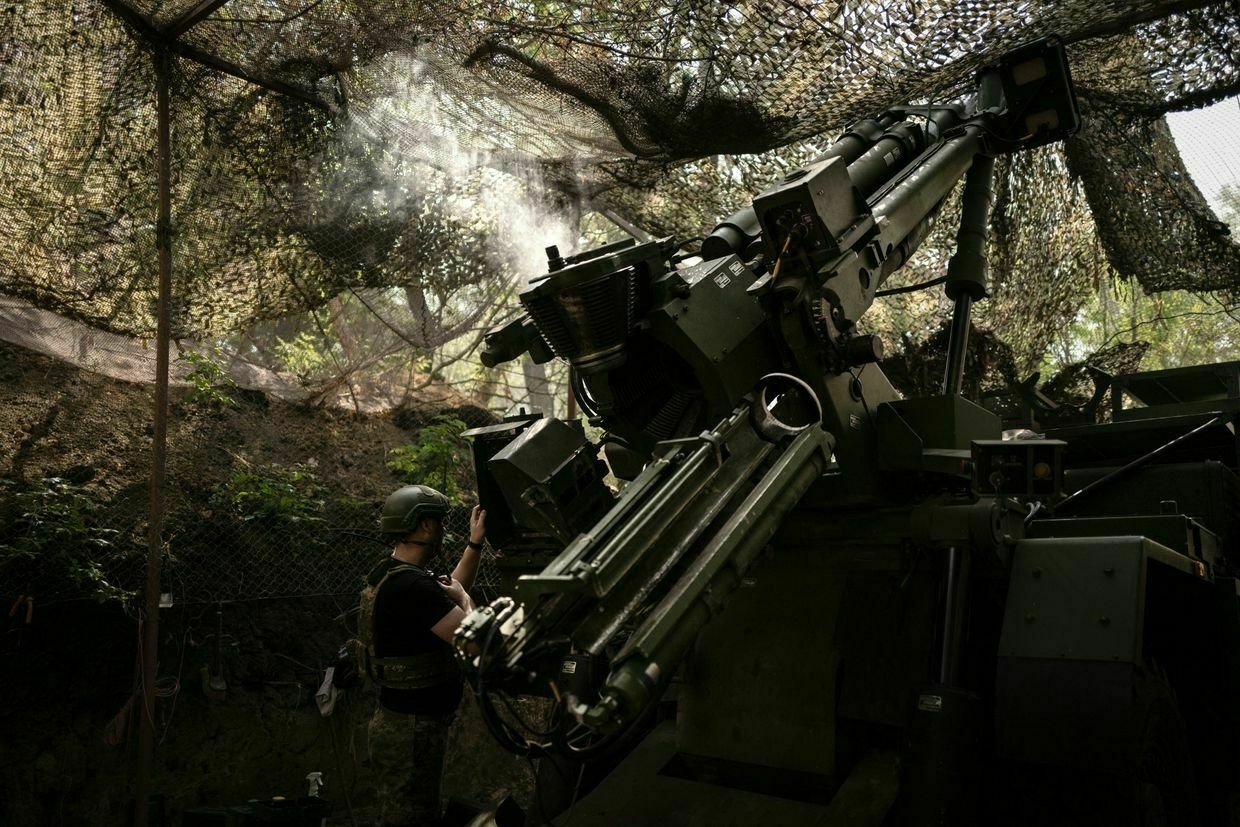
Costa echoed the call for sanctions and the necessity of economic pressure in order to achieve a ceasefire. Europe is committed to “increasing additional sanctions to cripple (Russia’s) ability to wage war and pressing for an unconditional ceasefire,” he said.
Europe’s call for unity may meet with resistance from the United States, which has assumed a dramatically different posture towards Ukraine and Russia since President Donald Trump took office in January. Trump has not imposed any new sanctions against Russia, even Moscow blatantly obstructs peace efforts and escalates mass strikes against Ukrainian cities.
The U.S. also reportedly opposes lowering the G7 oil price cap — a measure first introduced in December 2022 that prohibits Western companies from shipping, insuring, or otherwise servicing Russian oil sold above $60 per barrel.
The price cap debate has become more urgent as oil prices, which had fallen below the $60 cap in recent months, surged following Israel’s recent strikes against Iran.
Despite U.S. resistance, the EU and the United Kingdom — backed by other European G7 countries and Canada — have said they are prepared to move forward with the proposal, even without Washington’s endorsement.
President Volodymyr Zelensky, on the other hand, has said the EU sanctions and proposed price cap drop don’t go far enough. Zelensky on June 11 said the EU’s 18th round of sanctions “could be stronger” and proposed further slashing the oil price cap to $30 per barrel.
“A ceiling of $45 per barrel of oil is better than $60, that’s clear, that’s true. But real peace will come with a ceiling of $30,” he said. “That’s the level that will really change the mindset in Moscow."
Zelensky and Trump are expected to meet on the sidelines of the G7 summit on June 17. The meeting will mark their third in-person encounter since Trump took office.
High stakes, low resolve: What Ukraine can expect from the upcoming G7 summitAs world leaders prepare to gather in the remote community of Kananaskis in Alberta, Canada for the Group of Seven (G7) Leaders’ Summit on June 15-17, Russia’s war in Ukraine once again holds center stage — but views on how to address the three-year conflict diverge sharply. In the five monthsThe Kyiv IndependentDmytro Basmat
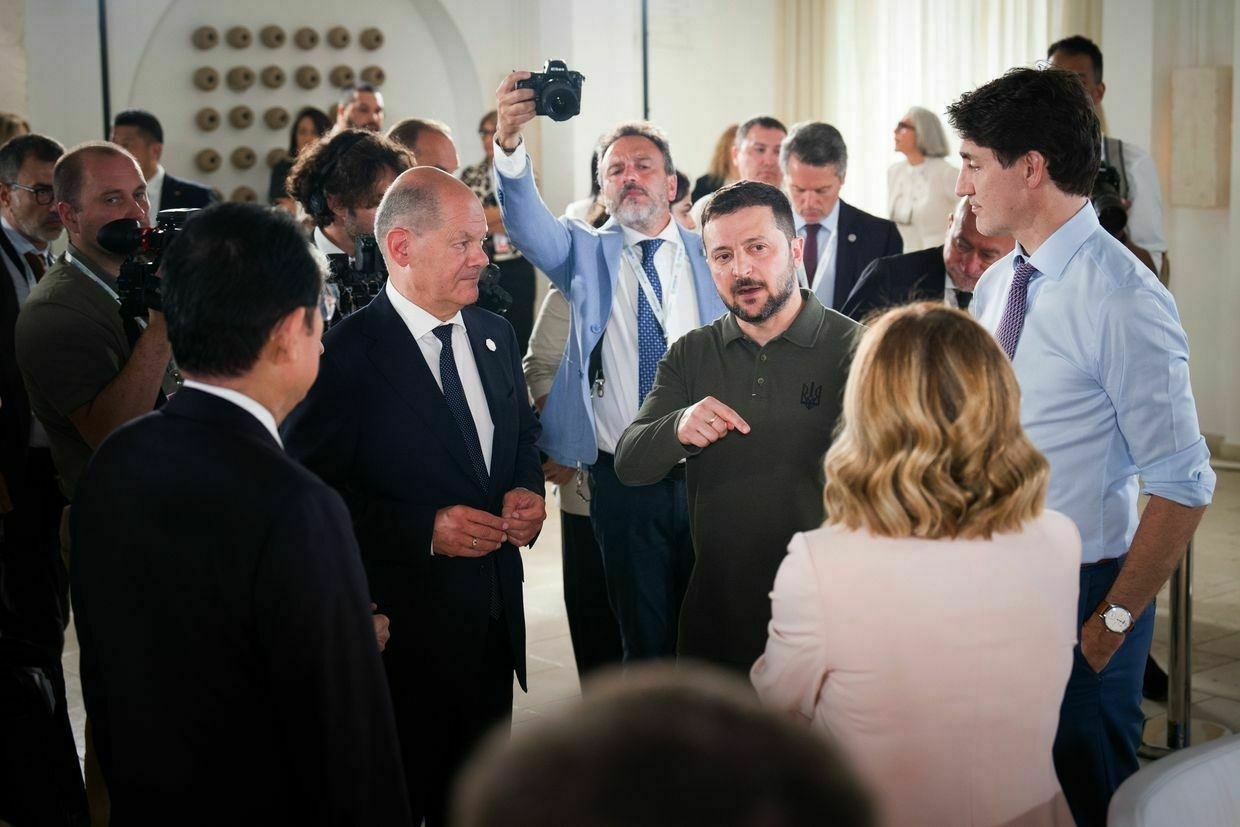
-
Trump arrives at G7 summit ahead of high-stakes meeting with Zelensky

U.S. President Donald Trump arrived in Canada for the Group of Seven (G7) Leaders' Summit late on June 15, according to a Kyiv Independent journalist on the ground.
Trump’s arrival comes ahead of his expected high-stakes meeting with President Volodymyr Zelensky on June 17 in Kananaskis, Alberta.
Canada, which holds the G7 presidency in 2025, invited Zelensky to participate in the 3-day summit, which will mark Zelensky’s fourth G7 Leaders' Summit since the outbreak of the full-scale invasion in 2022.
After a disastrous first in-person meeting between the two leaders in the Oval Office in February — during which Trump and Vice President JD Vance lambasted Zelensky over what they described as “a lack of gratitude for U.S. support” — a second meeting in the Vatican led to Trump reiterating calls for a Russian ceasefire and even threatening to impose sanctions on Russia.
In the month since their last in-person meeting, tensions between Trump and Zelensky have risen again. Despite issuing several threats, Trump has not followed through on implementing additional economic pressure on Moscow.
Zelensky said in a closed-door meeting attended by the Kyiv Independent on June 13 that his priority is to speak with Trump about sanctions against Russia, peace talks, weapons purchases, and U.S.-Ukraine economic cooperation.
The anticipated third meeting could signal the future of Trump and Zelensky’s relationship, as well as offer insight into the United States' commitment to supporting Ukraine.
Amid increased anxiety around Trump’s commitment to ending the war, U.S. Defense Secretary Pete Hegseth recently announced that the Pentagon will reduce funding allocated for military assistance to Ukraine in its 2026 defense budget.
On June 12, Zelensky decried Washington’s lack of urgency around sanctions, suggesting that Russia is “lying to Trump.” He said that Russian President Vladimir Putin’s strategy is to maintain the illusion of dialogue without ever committing to a ceasefire.
“There are steps forward we can take — but we need the political will of the U.S. president, if he wants,” Zelensky said on June 13.
High stakes, low resolve: What Ukraine can expect from the upcoming G7 summitAs world leaders prepare to gather in the remote community of Kananaskis in Alberta, Canada for the Group of Seven (G7) Leaders’ Summit on June 15-17, Russia’s war in Ukraine once again holds center stage — but views on how to address the three-year conflict diverge sharply. In the five monthsThe Kyiv IndependentDmytro Basmat
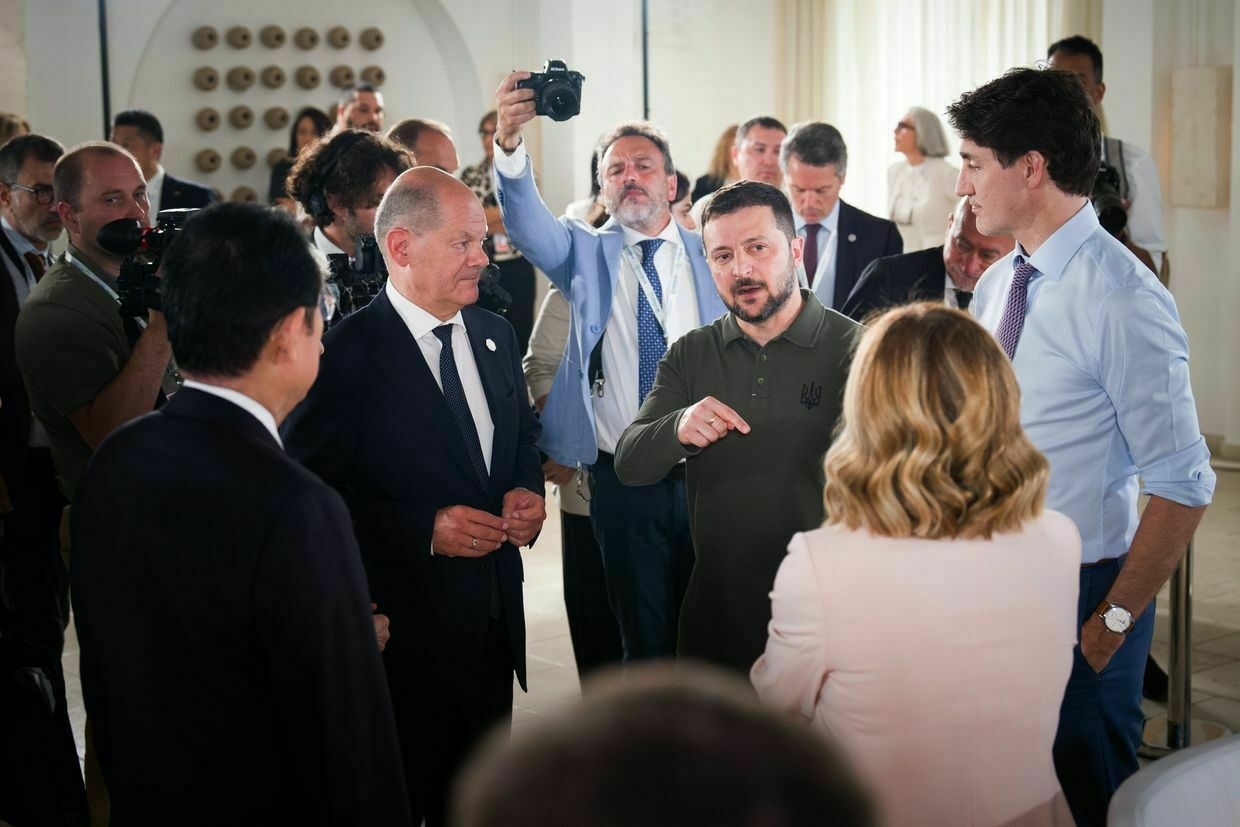
-
'Spit in face' — Zelensky condemns Russia's mass attack, dismisses Putin as peacemaker

President Volodymyr Zelensky on June 15 condemned Russia’s latest mass attack against Ukraine, calling the strikes on energy infrastructure “a spit in the face of everything the international community is trying to do to stop this war."
Earlier in the day, Russia targeted the city of Kremenchuk in Poltava Oblast with a combined missile and drone attack, damaging energy and agricultural facilities. The strike involved nearly 200 drones and missiles, including both cruise and ballistic missiles. The attack came shortly after a phone call between U.S. President Donald Trump and Russian President Vladimir Putin.
In his nightly address, Zelensky said the attack on Kremenchuk was “deliberately and treacherously planned to target our civilian infrastructure” and that Russia intended to damage energy facilities.
“This is Russia’s spit in the face of everything the international community is trying to do to stop this war,” Zelensky said in his nightly address.
“It happened right after Putin’s conversation with Trump. After the Americans asked us not to strike Russian energy facilities. At the same time as Putin tries to portray himself as a mediator for the Middle East … The level of cynicism is staggering."
Following his call with Putin, Trump claimed he would be “open” to the Russian president acting as a mediator in the rapidly escalating conflict between Israel and Iran. Zelensky rejected the idea of Putin — who has waged war against Ukraine for over 10 years and has taken no steps towards a lasting ceasefire — playing the role of peacemaker.
Putin “is war itself,” Zelensky said, urging the international community not to fall for “Russian manipulation and lies.”
Zelensky also warned that Russia may be planning additional attacks on Ukraine’s energy sector, including nuclear power infrastructure. According to the president, Ukrainian intelligence agencies have obtained evidence of Russia’s threat and shared the information with the International Atomic Energy Agency (IAEA) and the Trump administration.
“Russia is planning further attacks on our energy sector — attacks that may be less visible to the world right now because all eyes are on the situation in the Middle East,” he said.
Throughout the full-scale war, Russia has attempted to disrupt Ukraine’s power grid through targeted attacks on energy infrastructure. After rejecting a U.S. proposal for a 30-day unconditional ceasefire in March, Moscow instead agreed to a month-long ceasefire on energy attacks.
Russia subsequently violated the partial ceasefire, which ended in in April. The Kremlin continues to refuse calls for an unconditional truce.
With no new US aid packages on the horizon, can Ukraine continue to fight Russia?The U.S. has not announced any military aid packages for Ukraine in almost five months, pushing Kyiv to seek new alternatives. But time is running out quickly as Russian troops slowly advance on the eastern front line and gear up for a new summer offensive. “While Ukraine’s dependence onThe Kyiv IndependentKateryna Hodunova
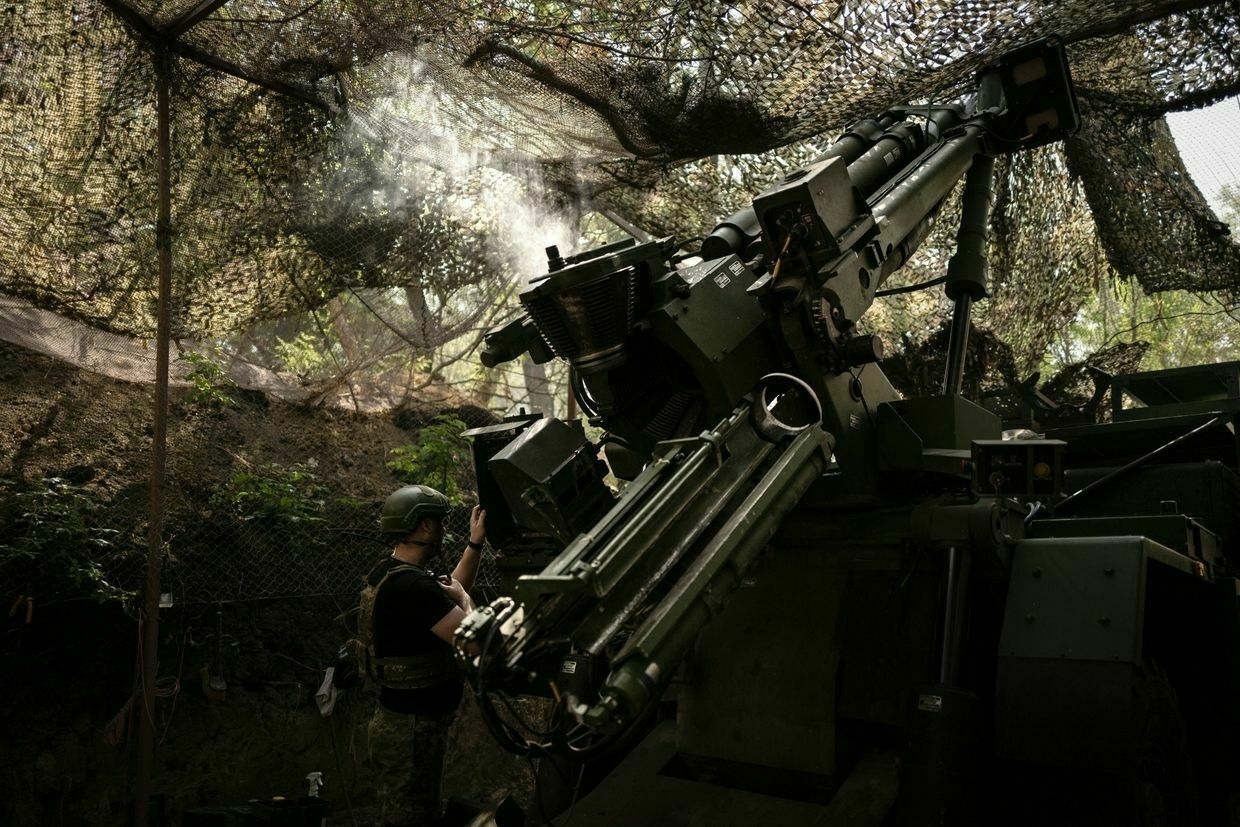
-
5 Ukrainians dead in Israel after Iranian missile strike
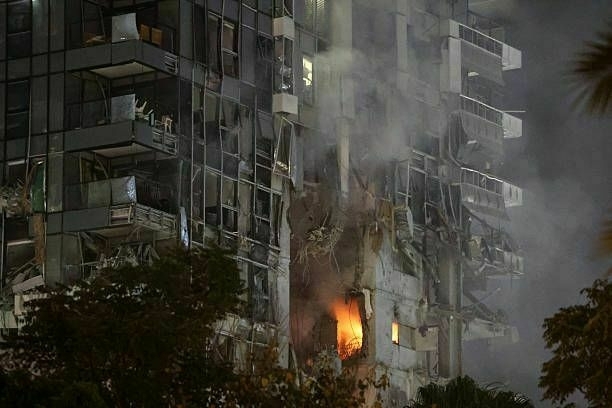
Five Ukrainian citizens were killed in an Iranian missile attack on Israel on June 14.
Ukraine’s Foreign Ministry told the Kyiv Independent that the five Ukrainian citizens, including three children, came under fire in an attack on a residential building in Bat Yam, south of Tel Aviv.
The Ukrainian Embassy in Israel is, the ministry said, still gathering details and identifying the deceased. An estimated 23,000 Ukrainian citizens currently live in Israel, including 11,000 who fled since Russia’s invasion in 2022, the Jerusalem Post reports.
Israel launched mass attacks on Iran on June 13, primarily targeting nuclear infrastructure as well as specialists in Iranian nuclear power. The Ukrainian government has come out in support of Israel against Iran, which is a major supplier of weapons to Russia. Russia, in turn, has criticized the Israeli attack as “unprovoked aggression.”
Roughly a million Israelis or approximately 15% of the total population is Russian-speaking, including sizeable communities from across the former Soviet Union. Israel has historically maintained relatively friendly ties with Russia.
U.S. President Donald Trump earlier on June 15 commented on the possibility that Russian President Vladimir Putin could take on a mediating role between Israel and Iran.
“Yeah, I would be open to it,” Trump said.
“He is ready. He called me about it. We had a long talk about it. We talked about this more than his situation. This is something I believe is going to get resolved."
Israel strike reportedly hits Iran’s gas sector, halting production at world’s largest fieldIran has partially suspended production at the South Pars gas field — the world’s largest — after an Israeli airstrike triggered a fire at the site, the semi-official Tasnim news agency reported on June 14.The Kyiv IndependentOlena Goncharova
